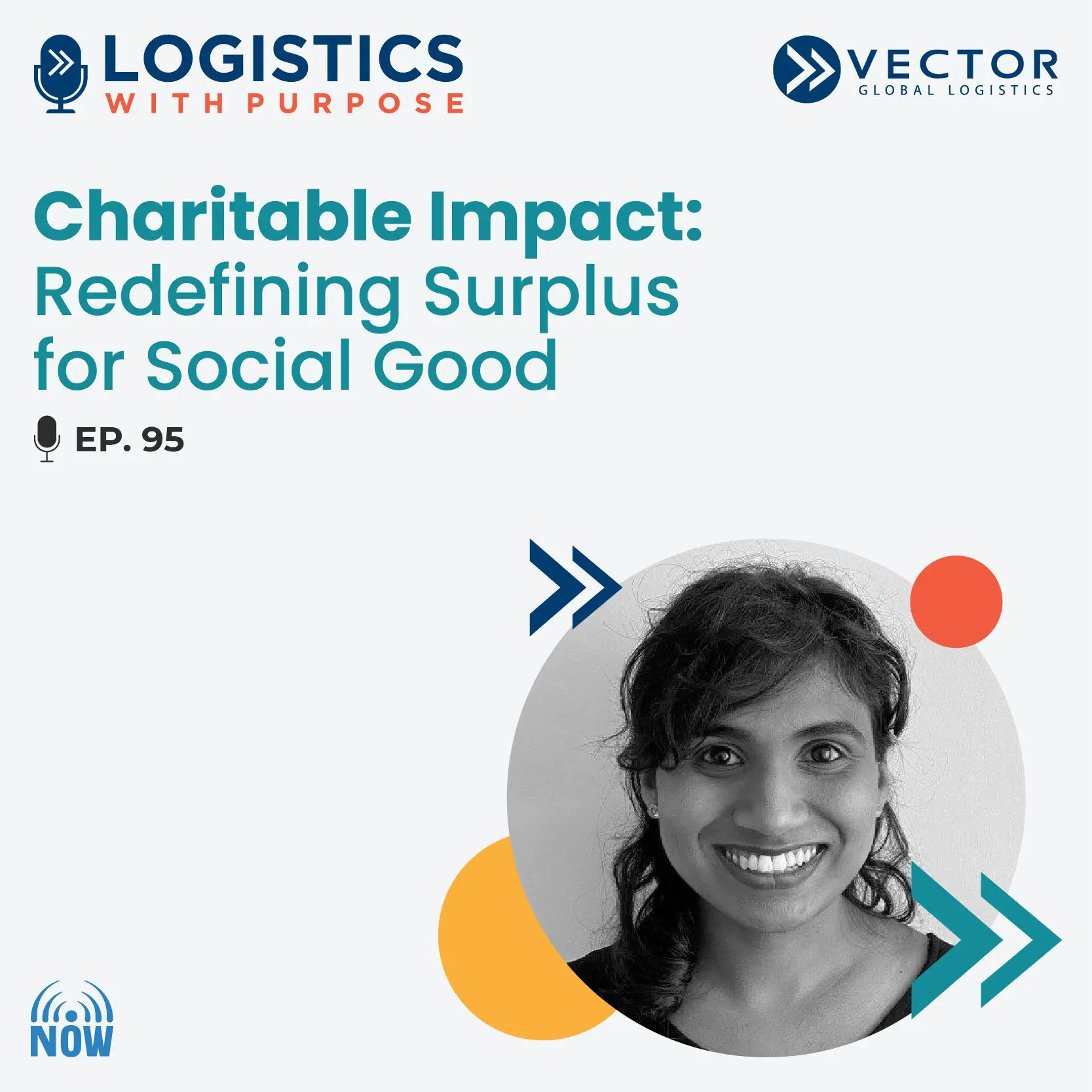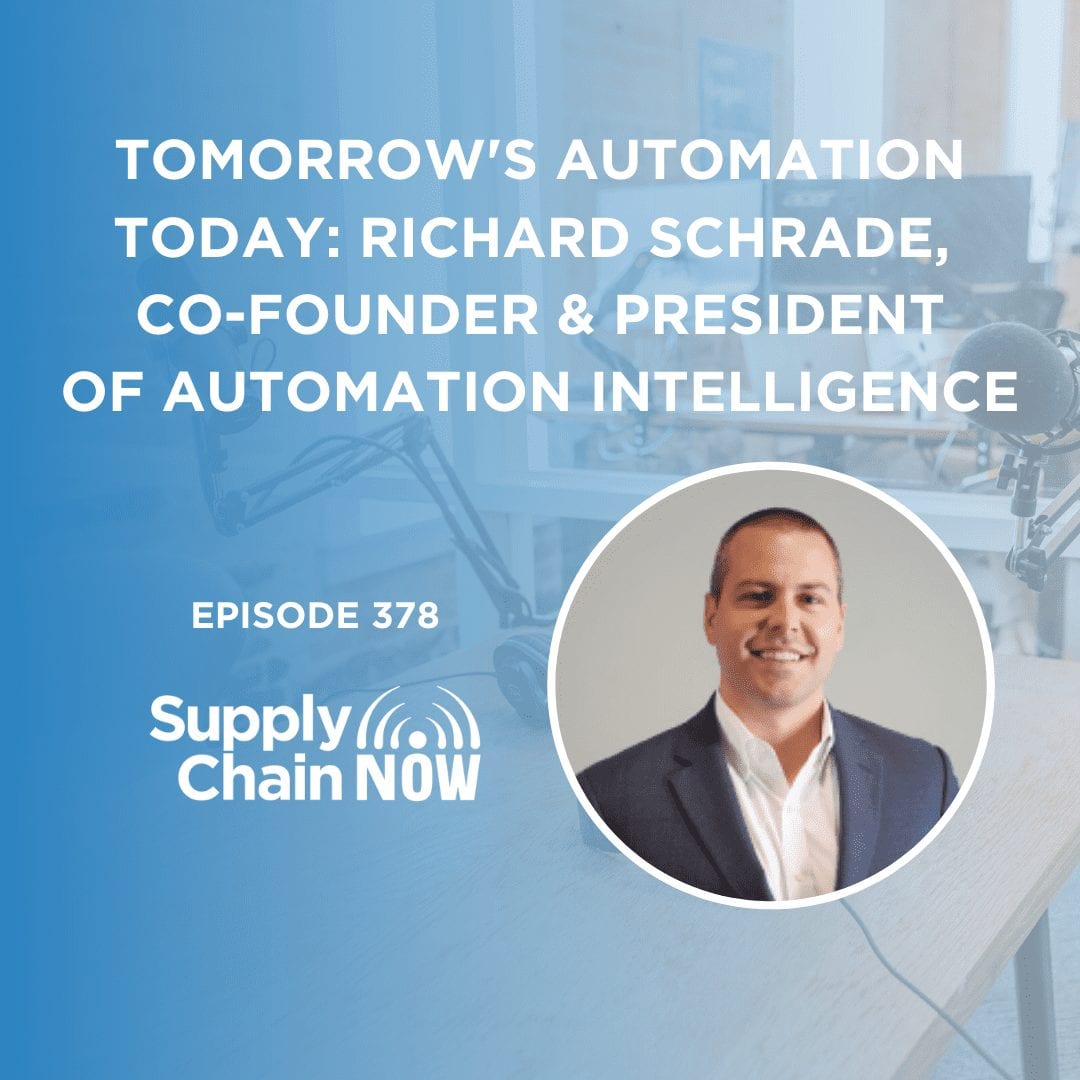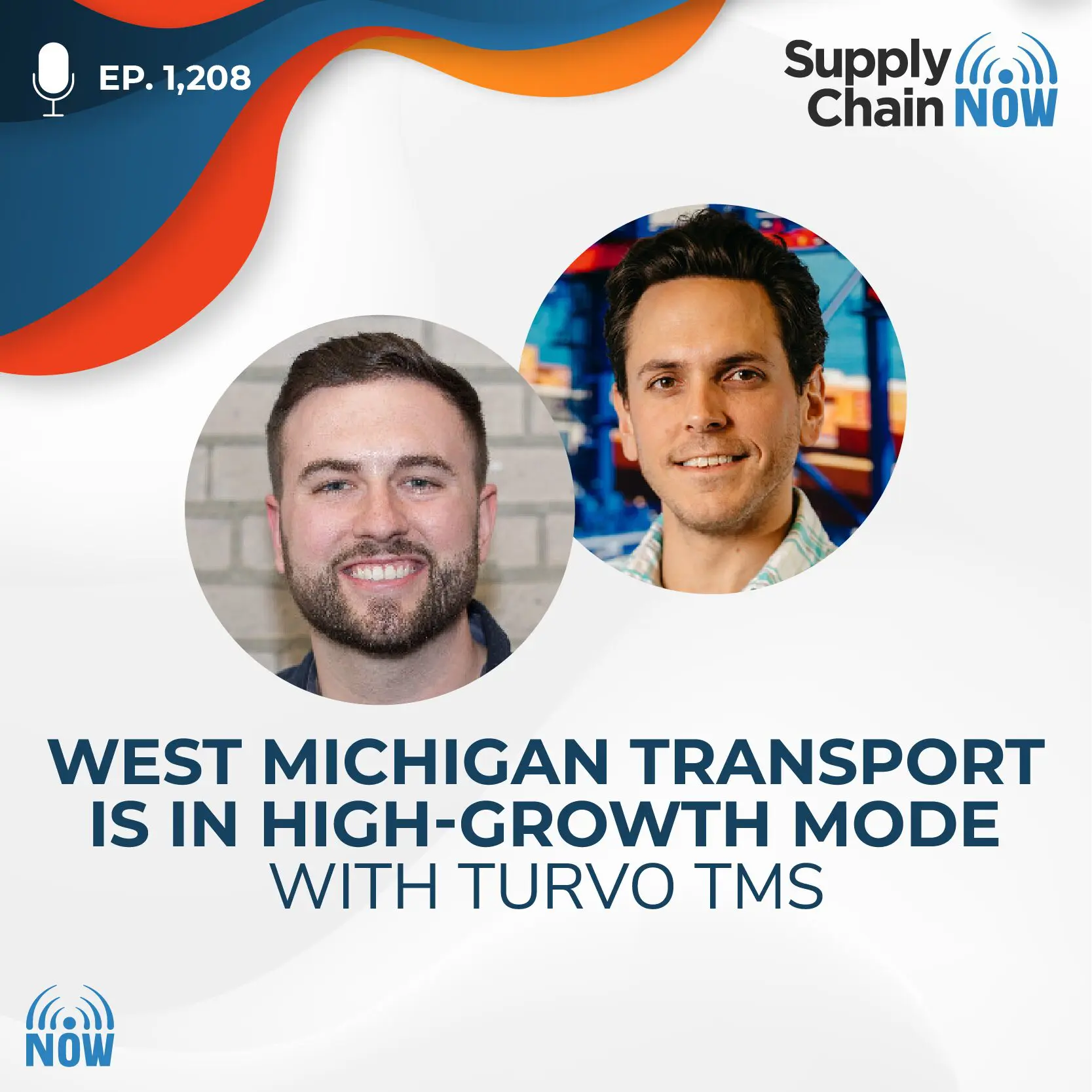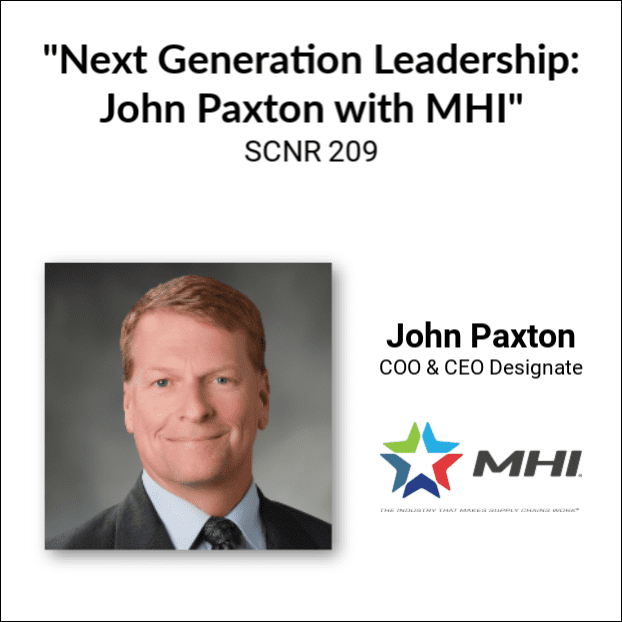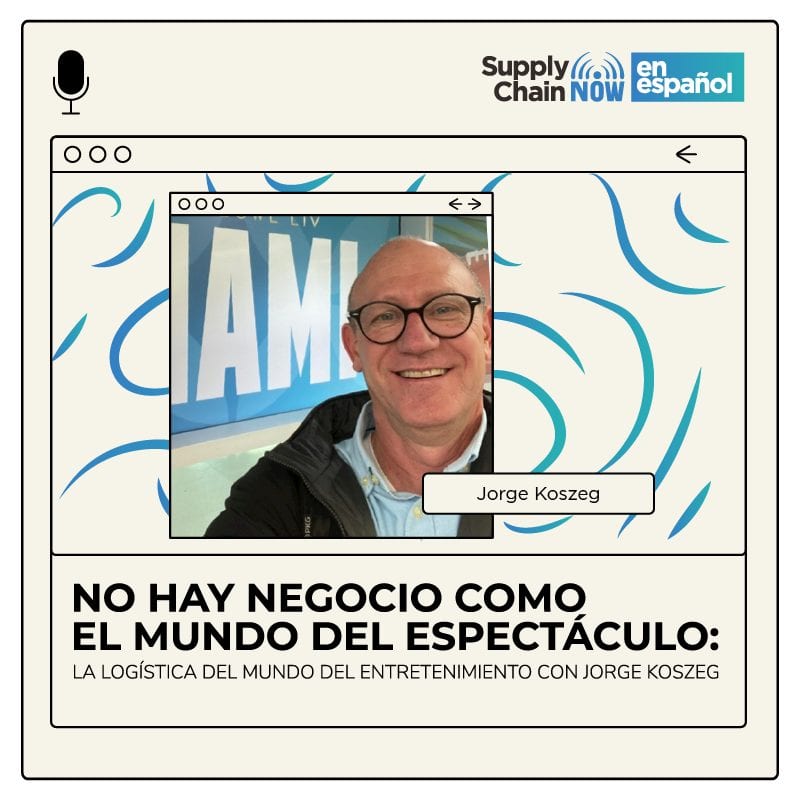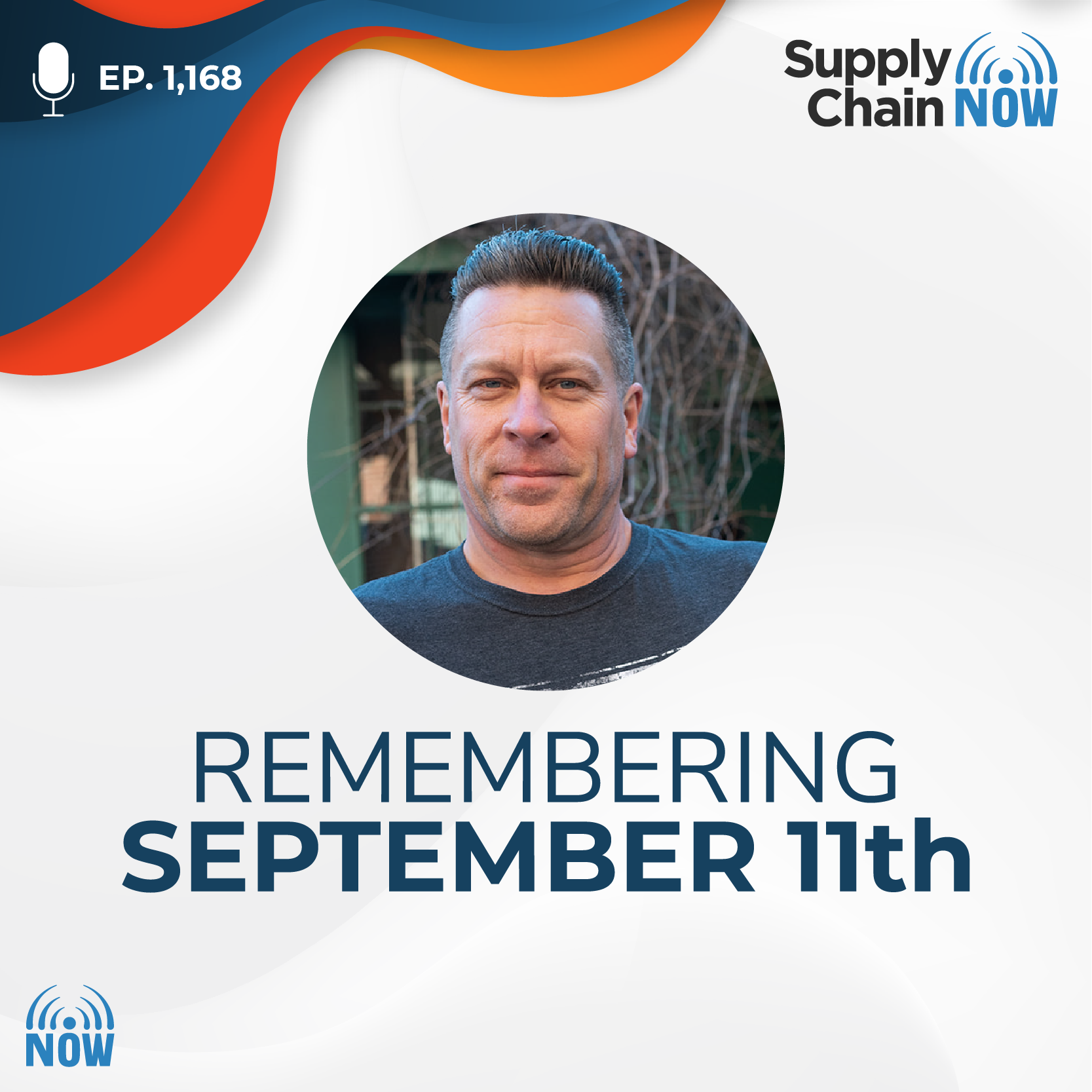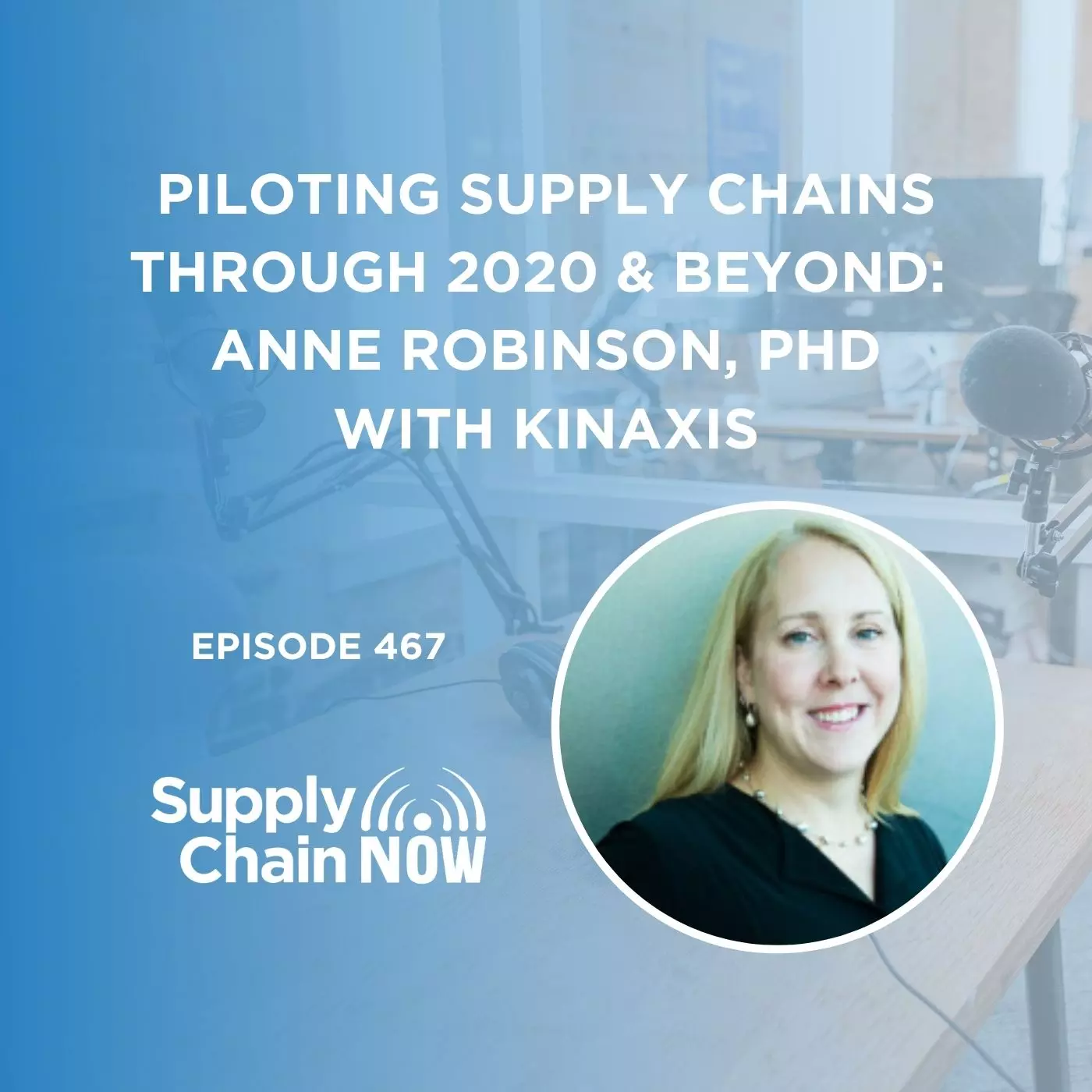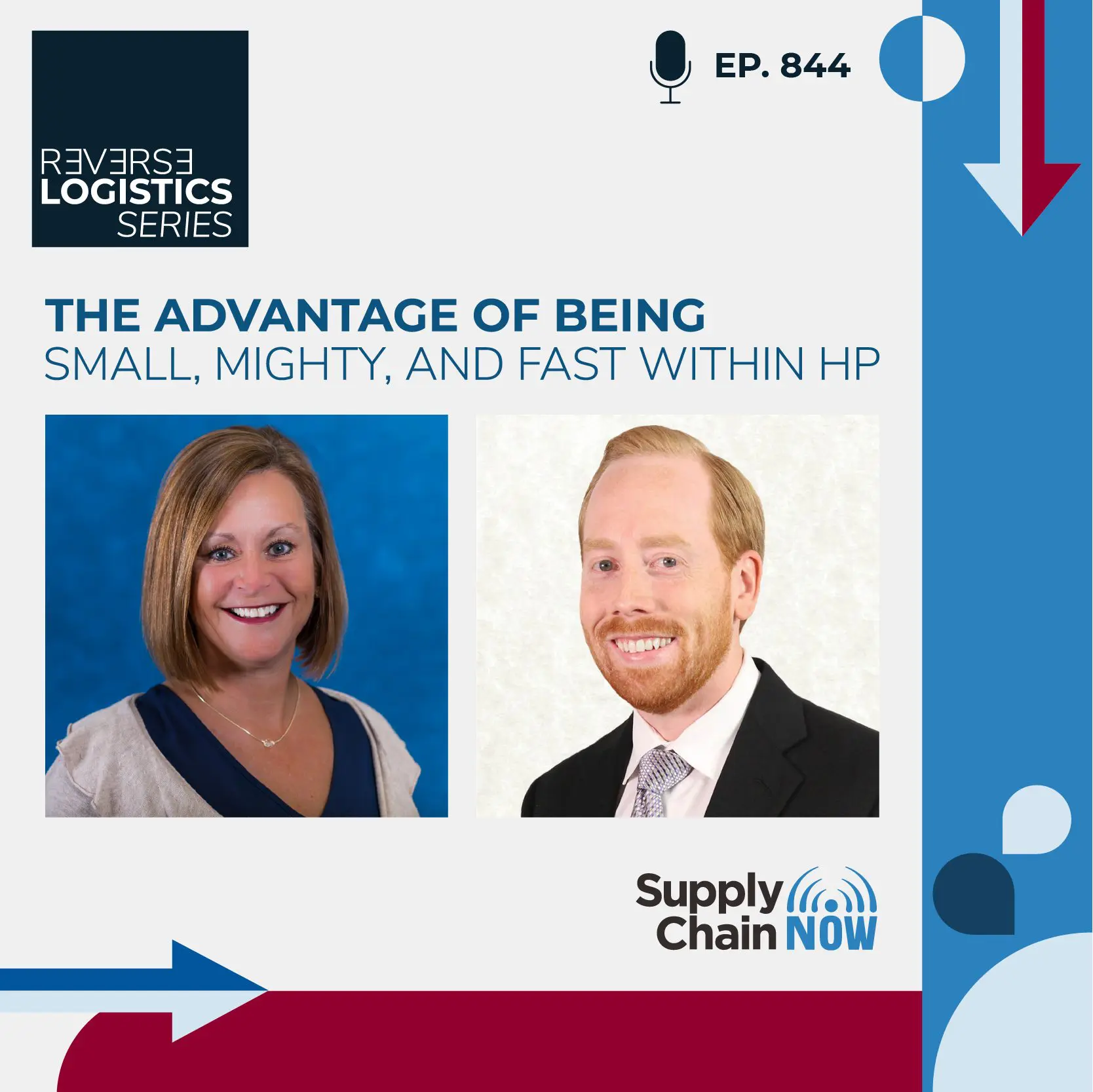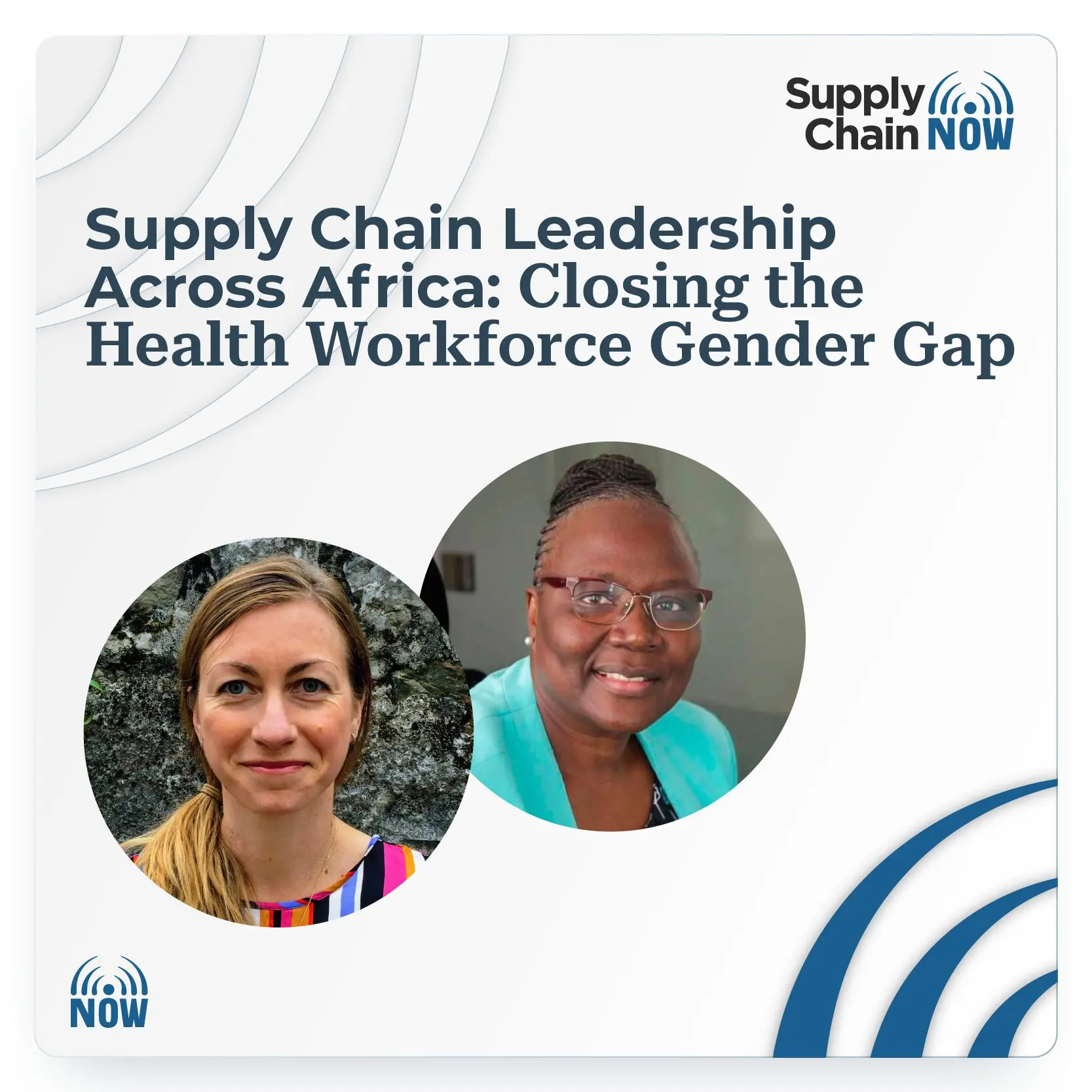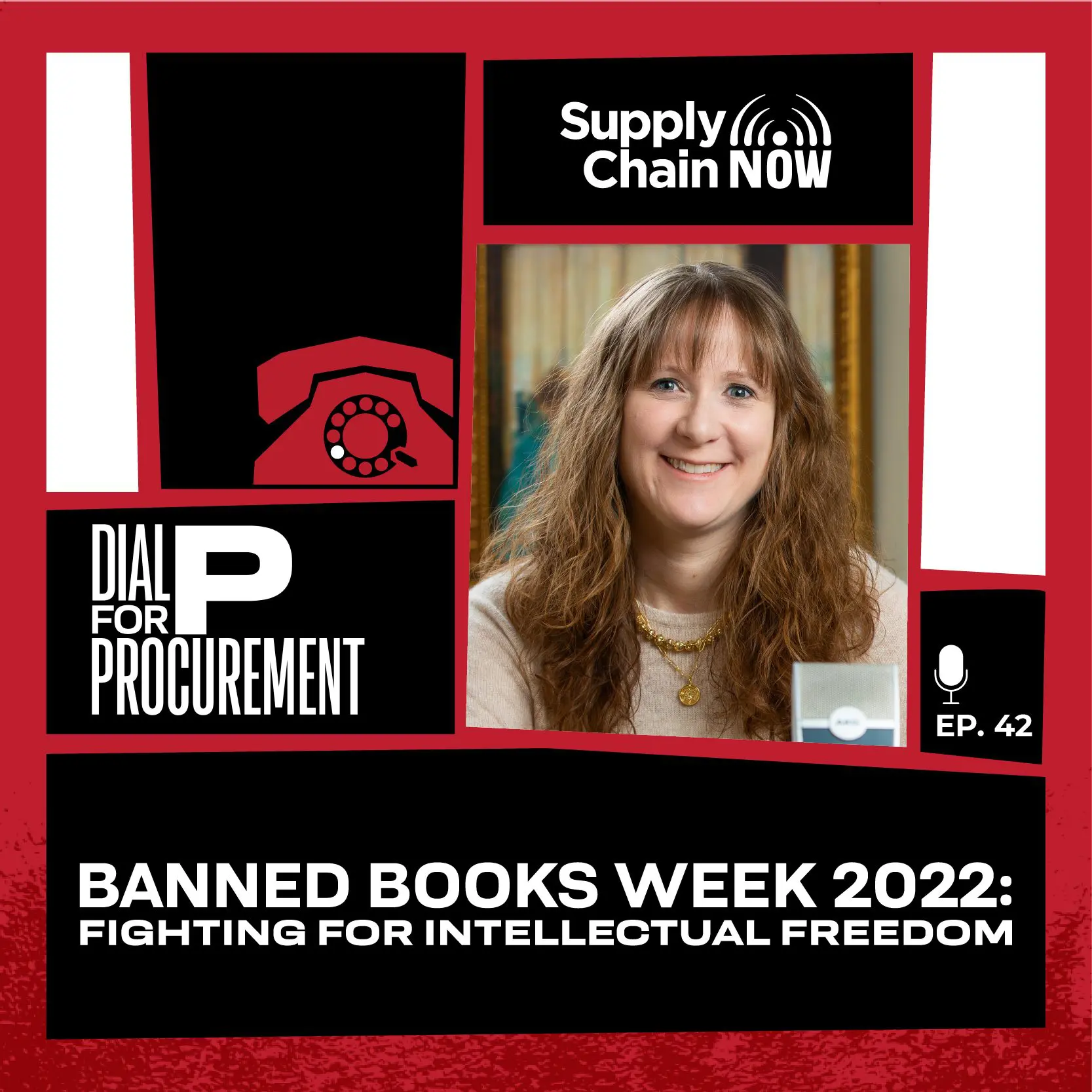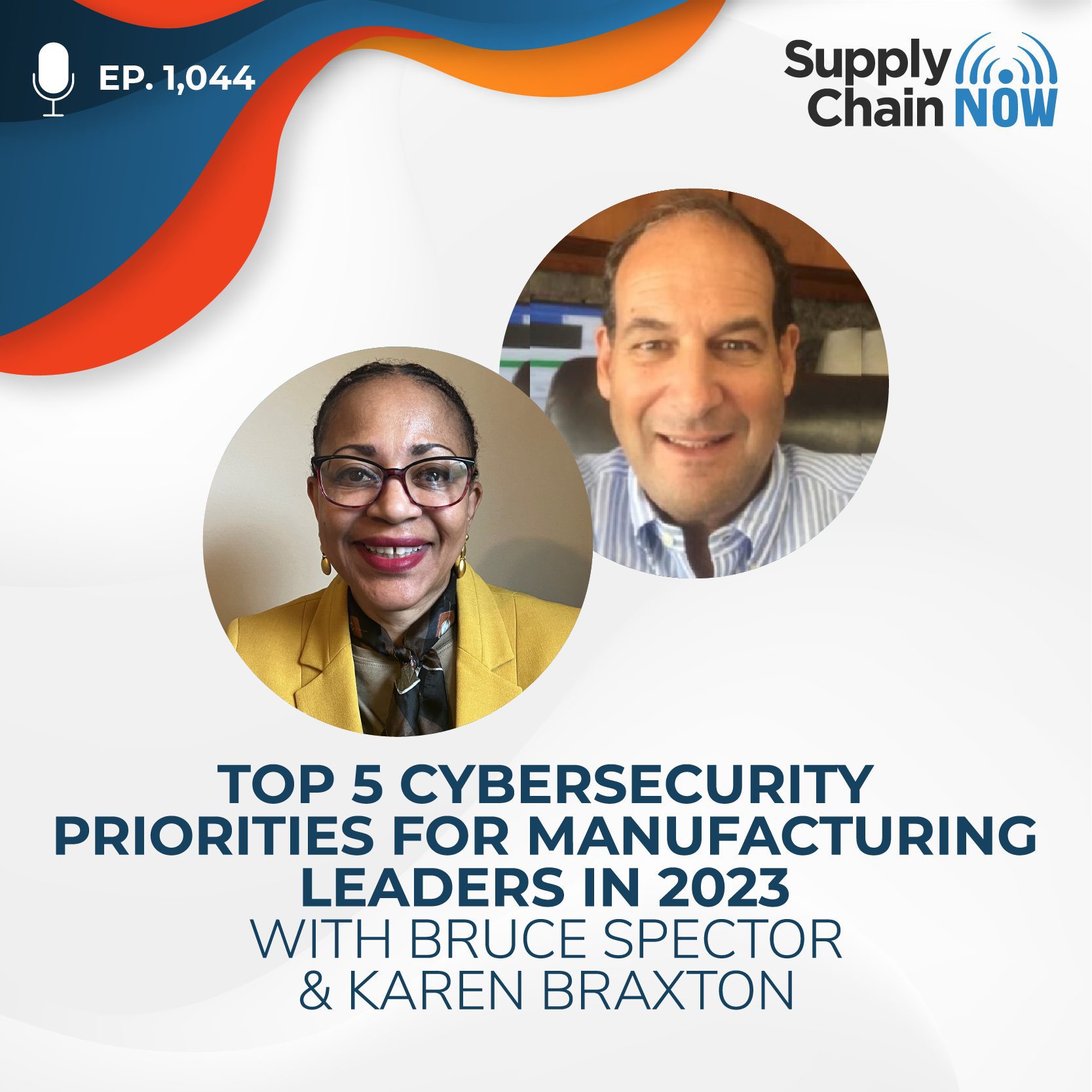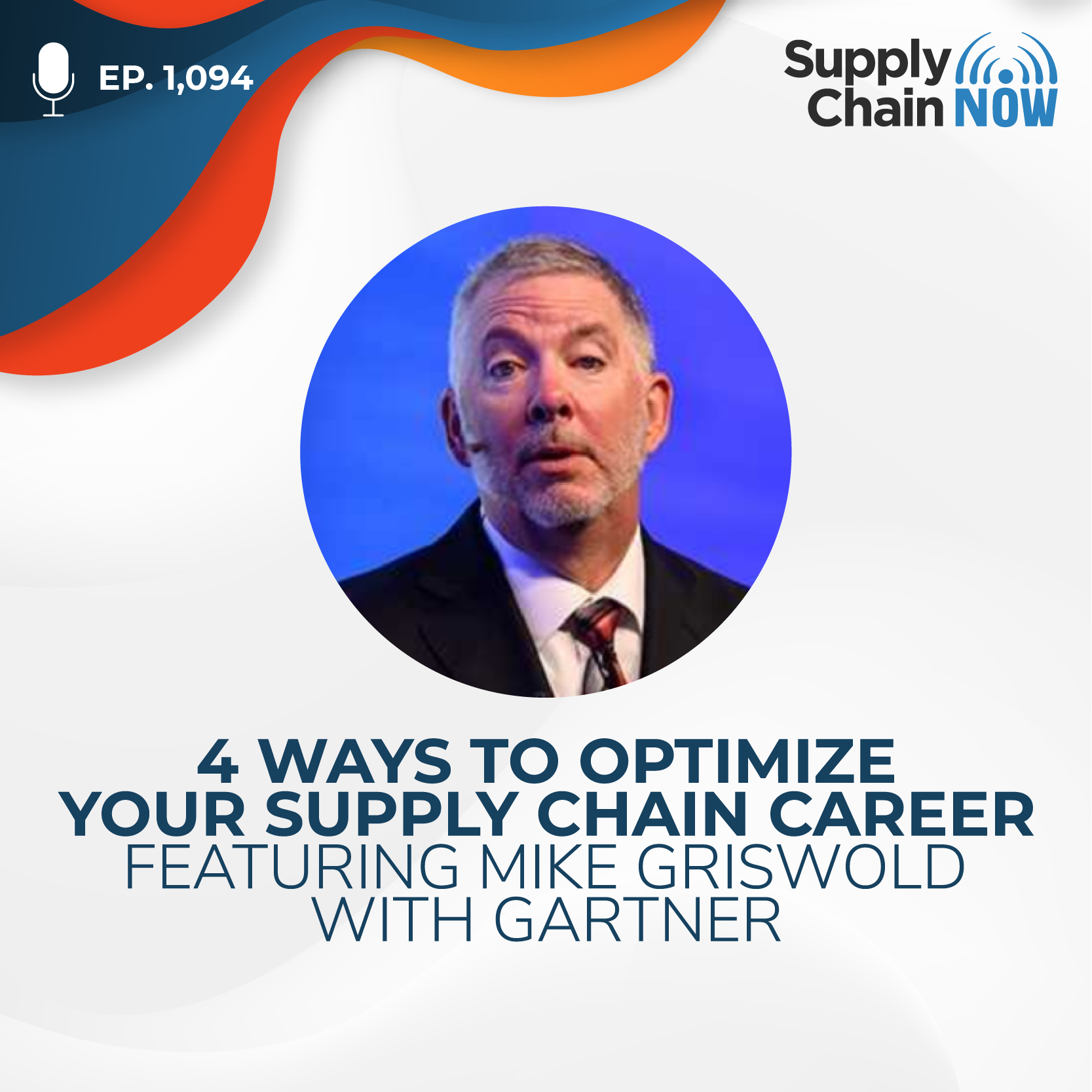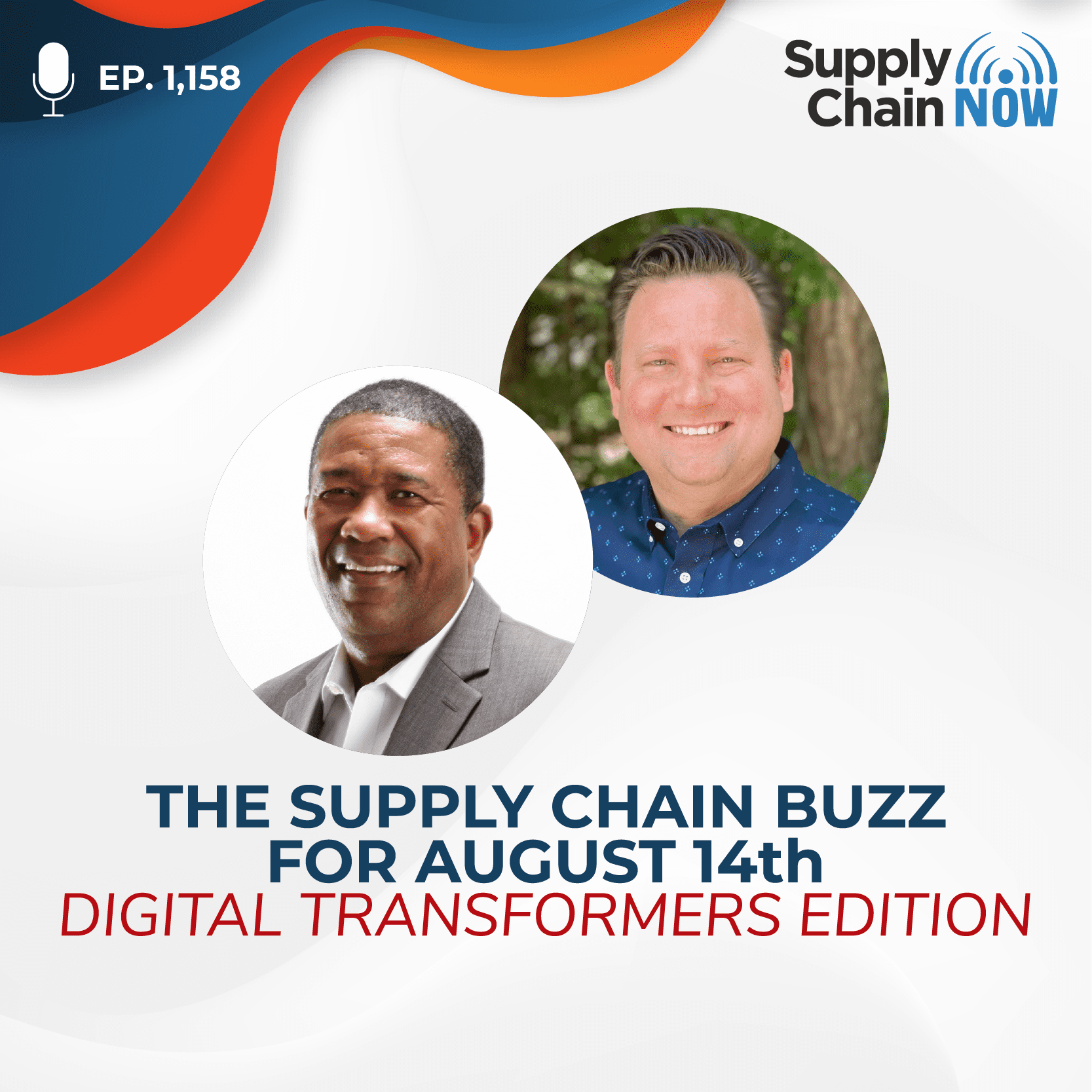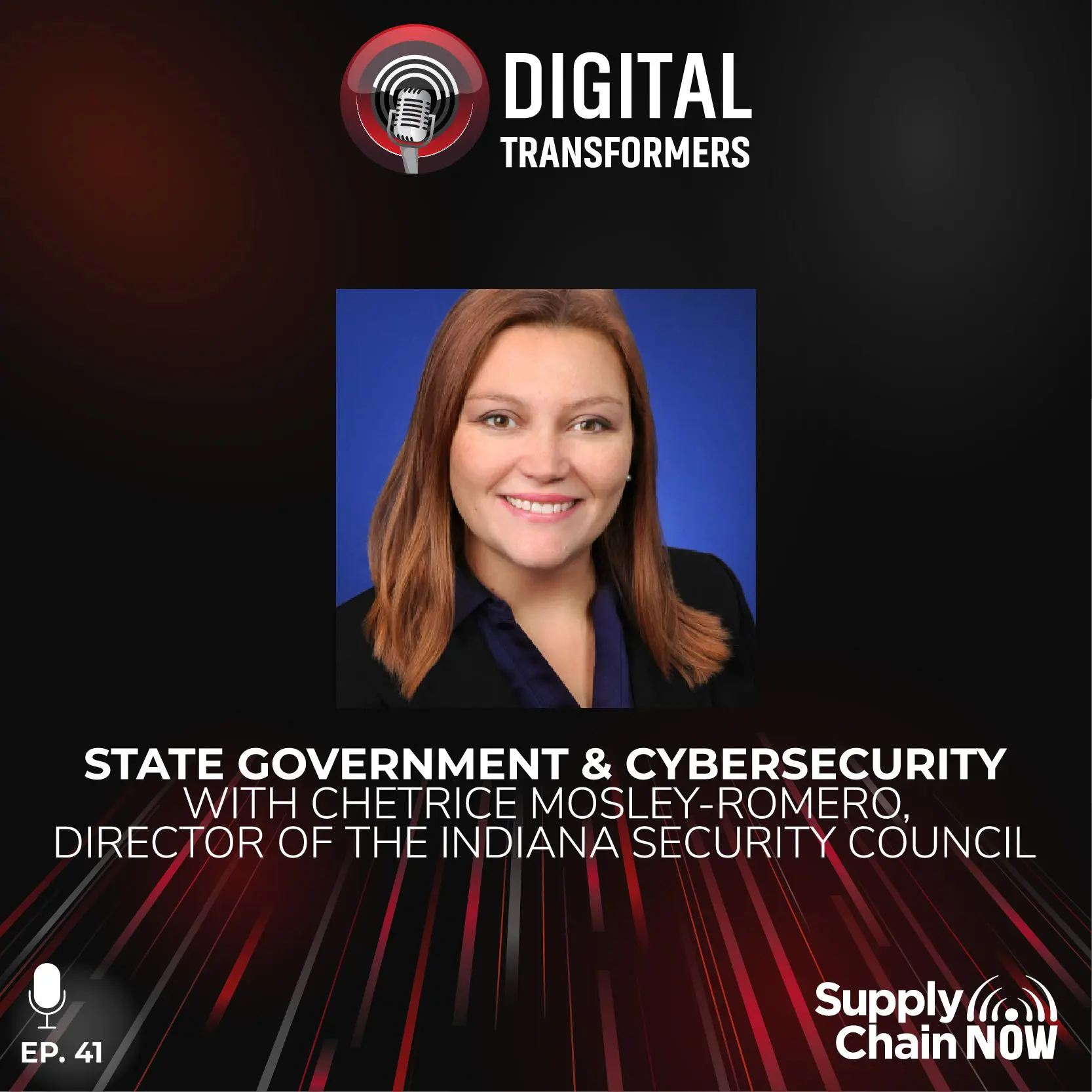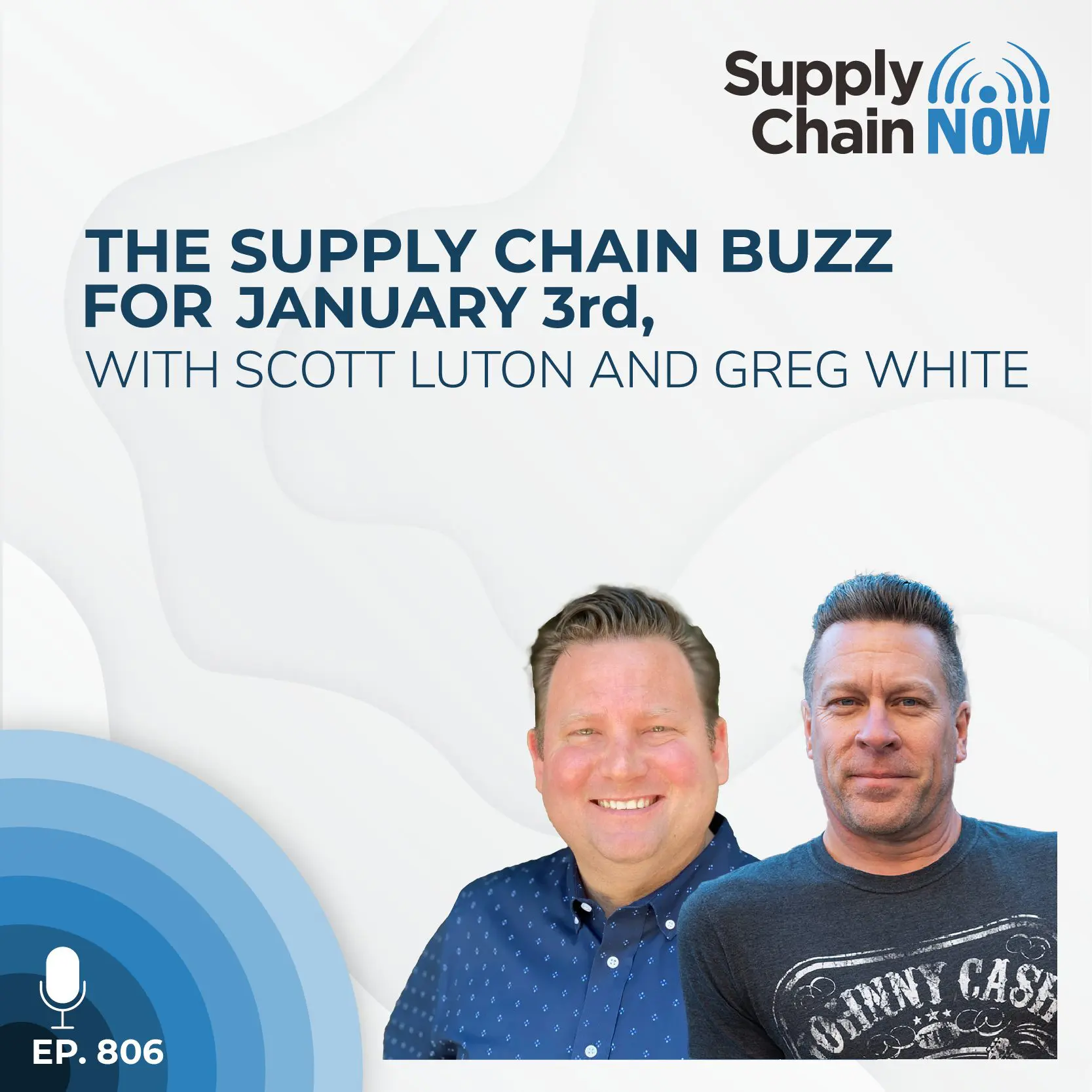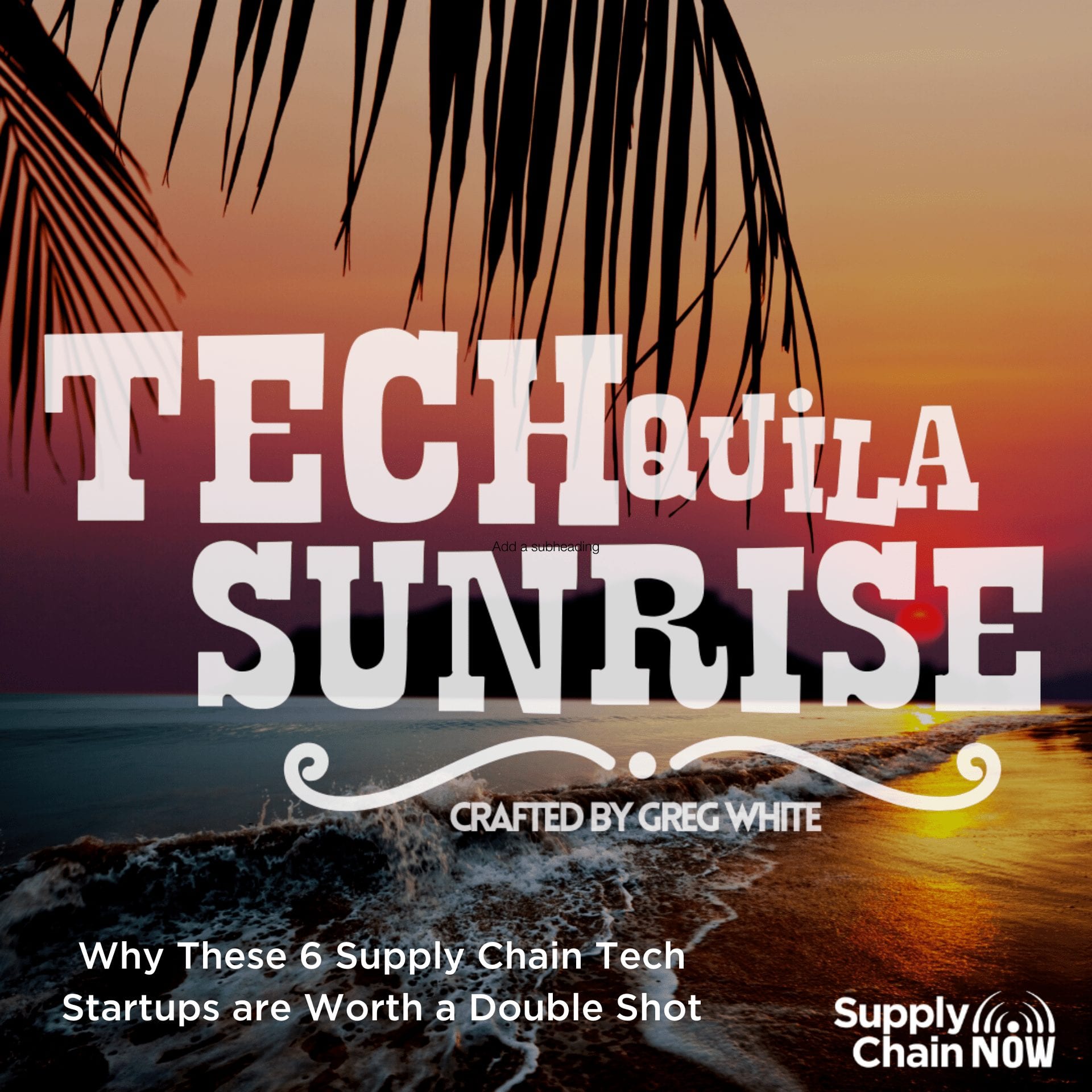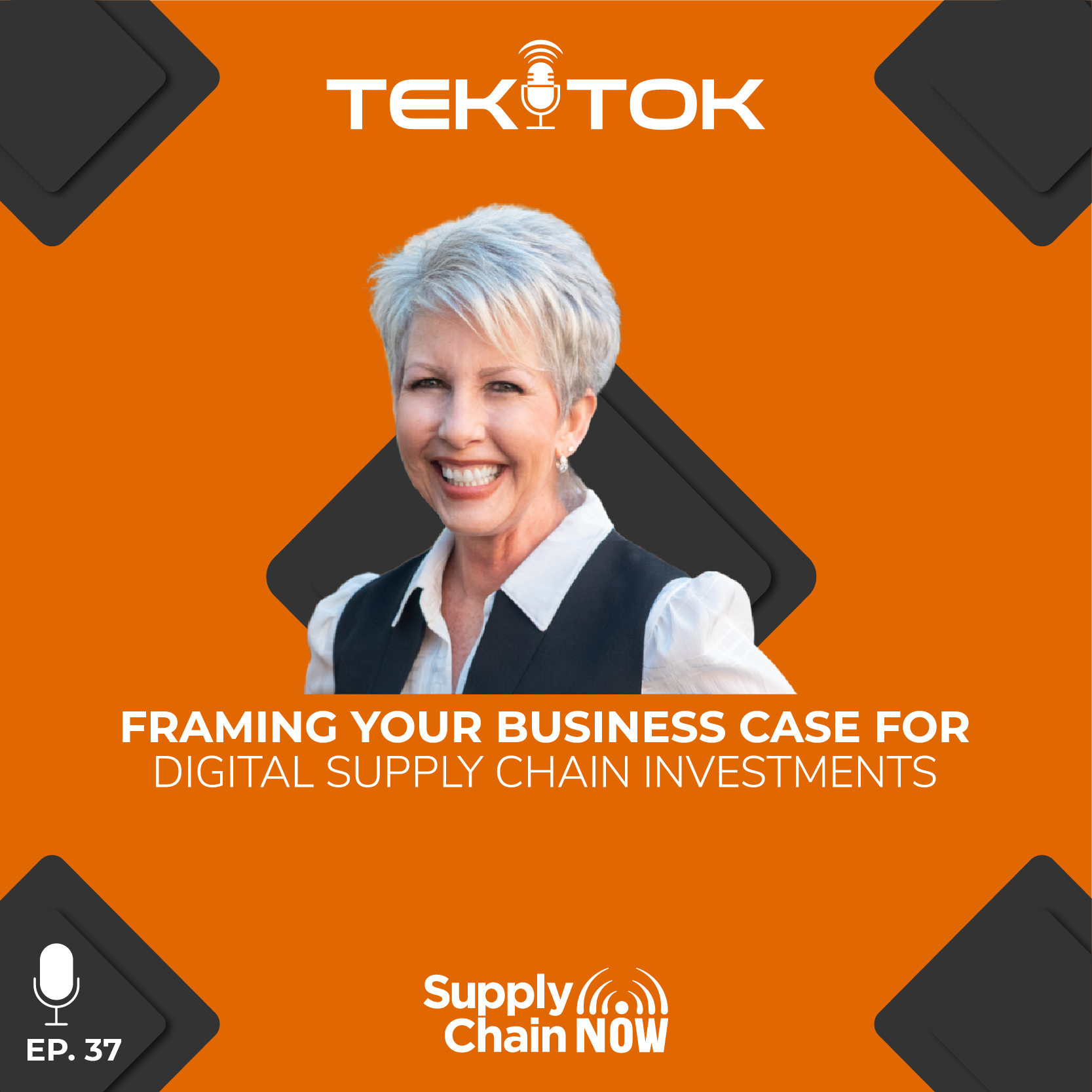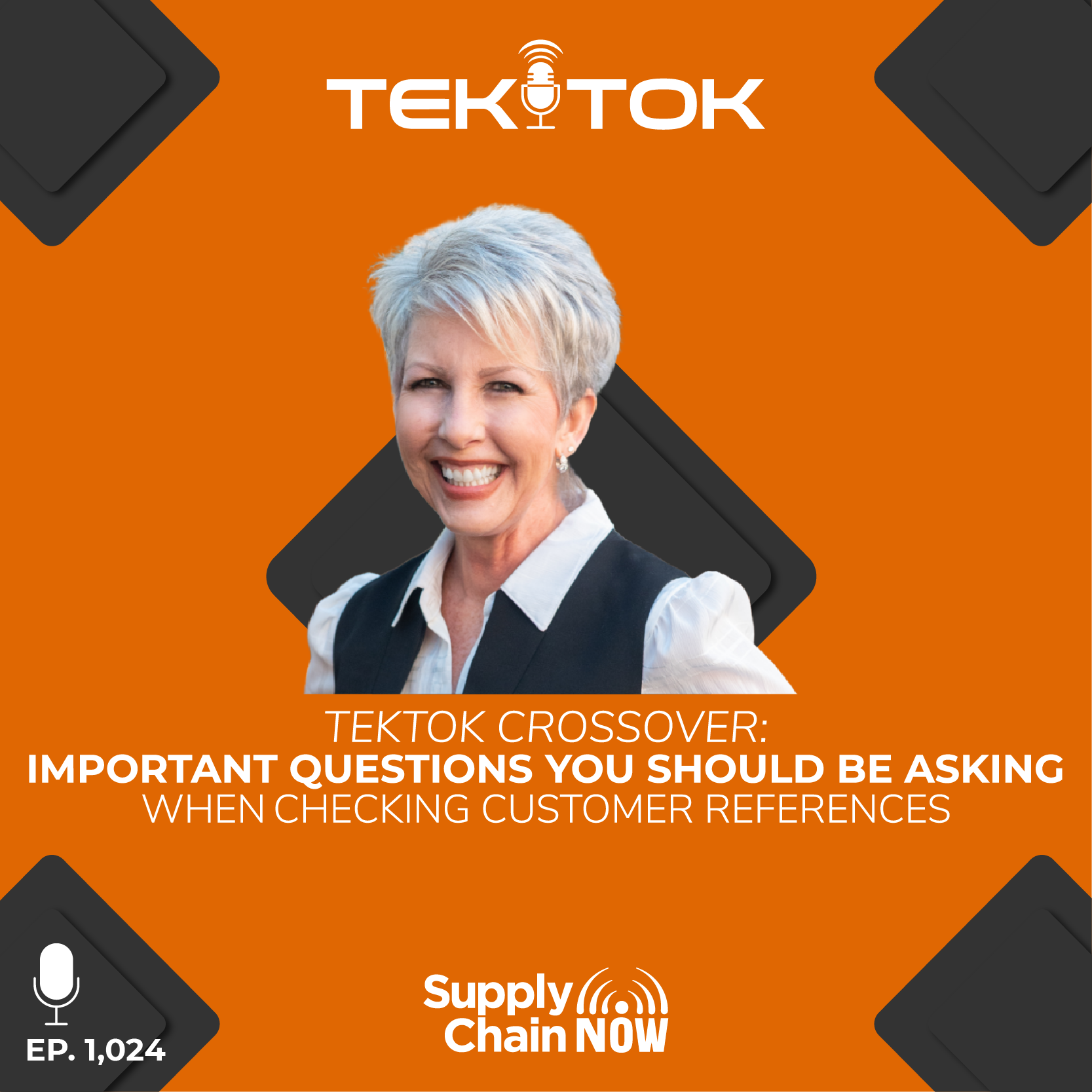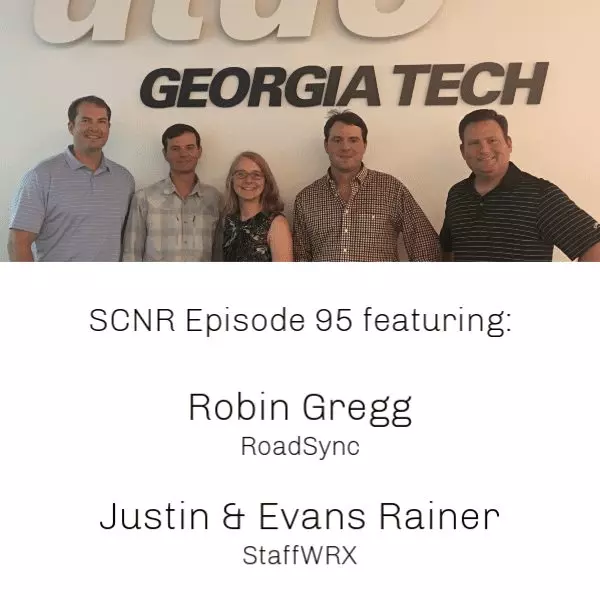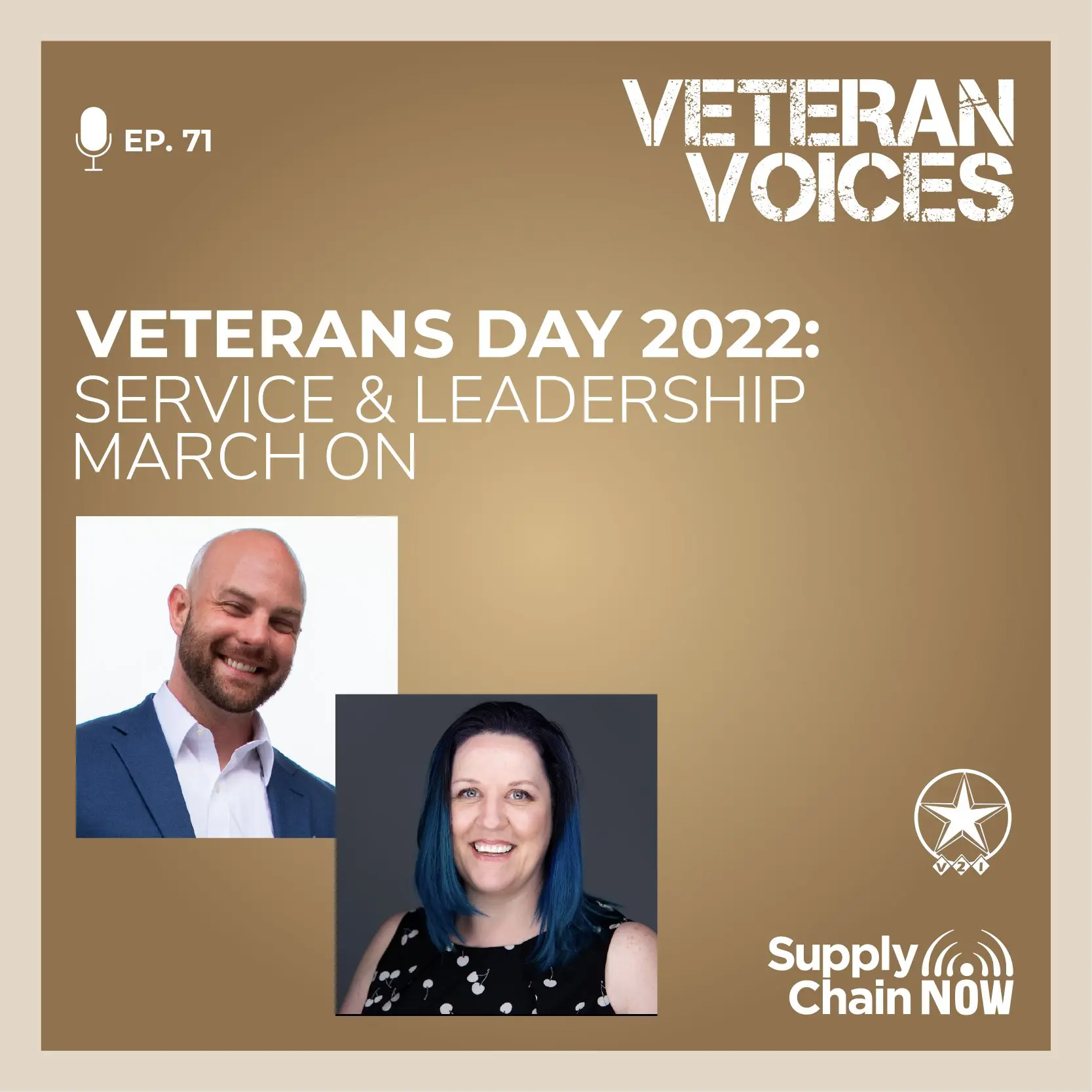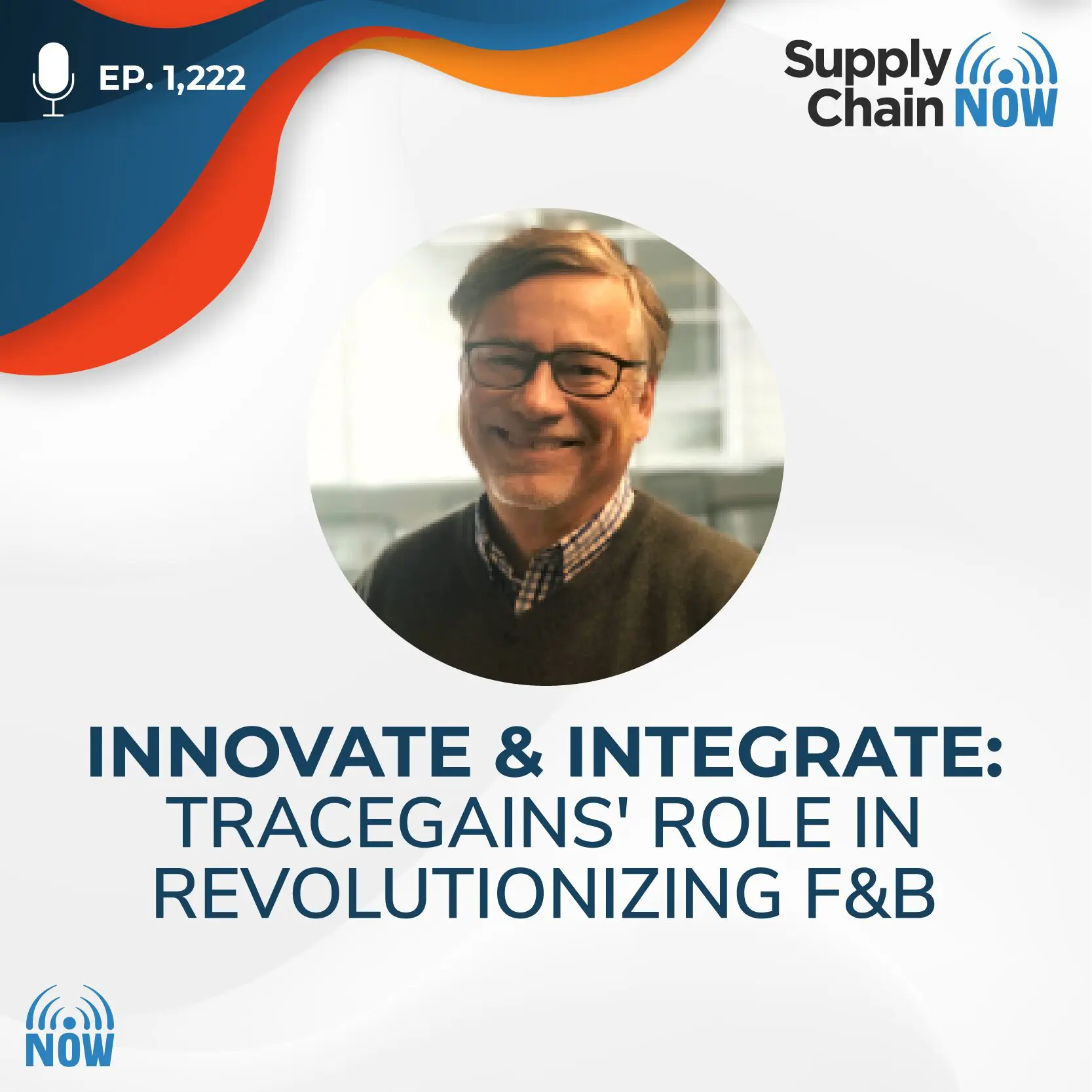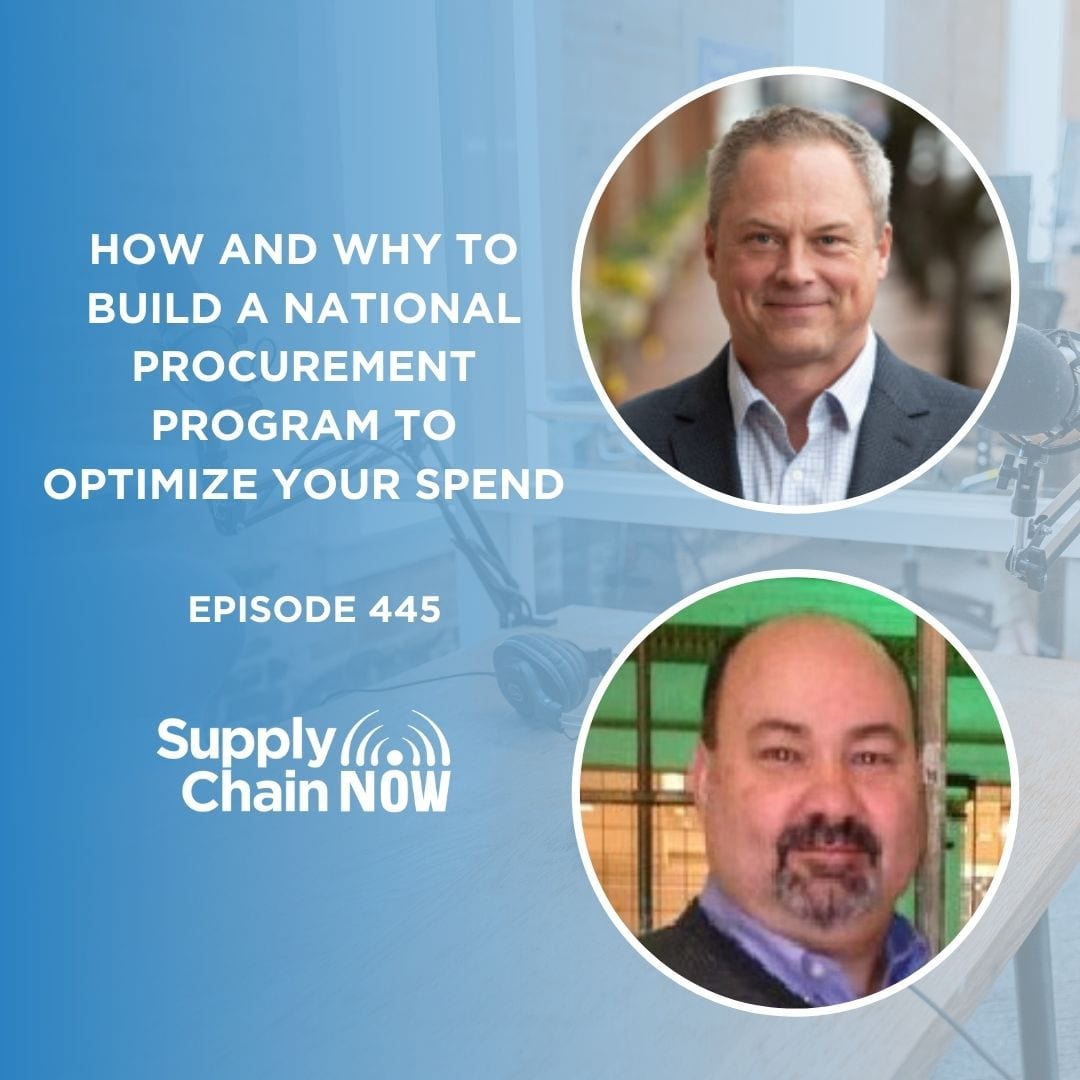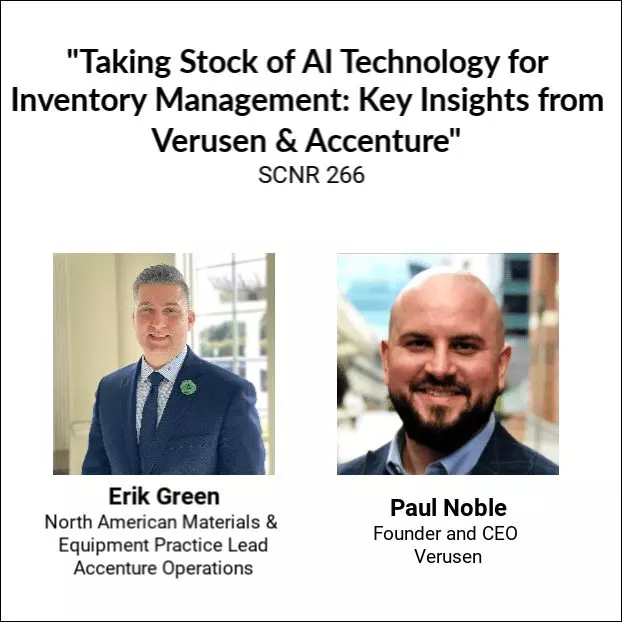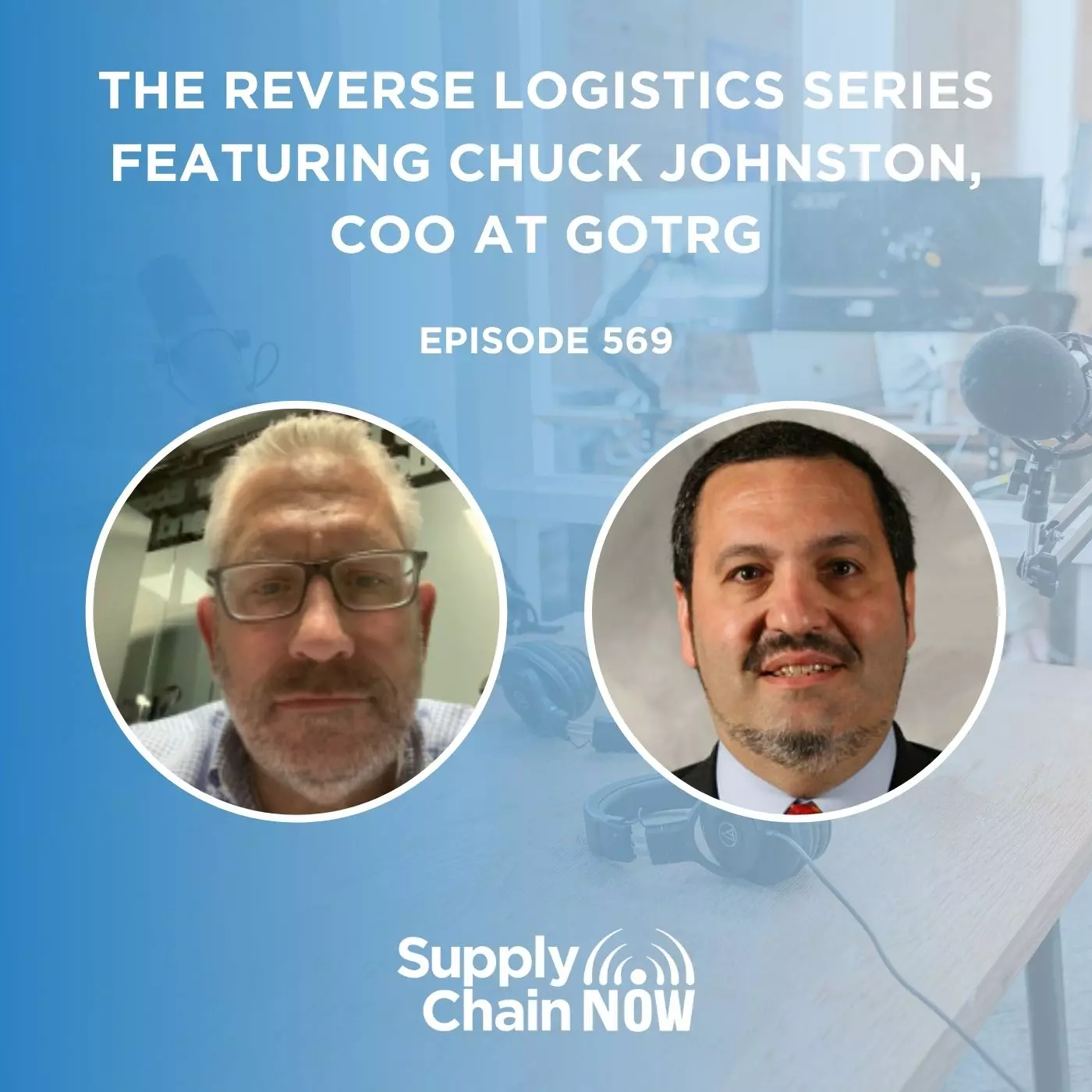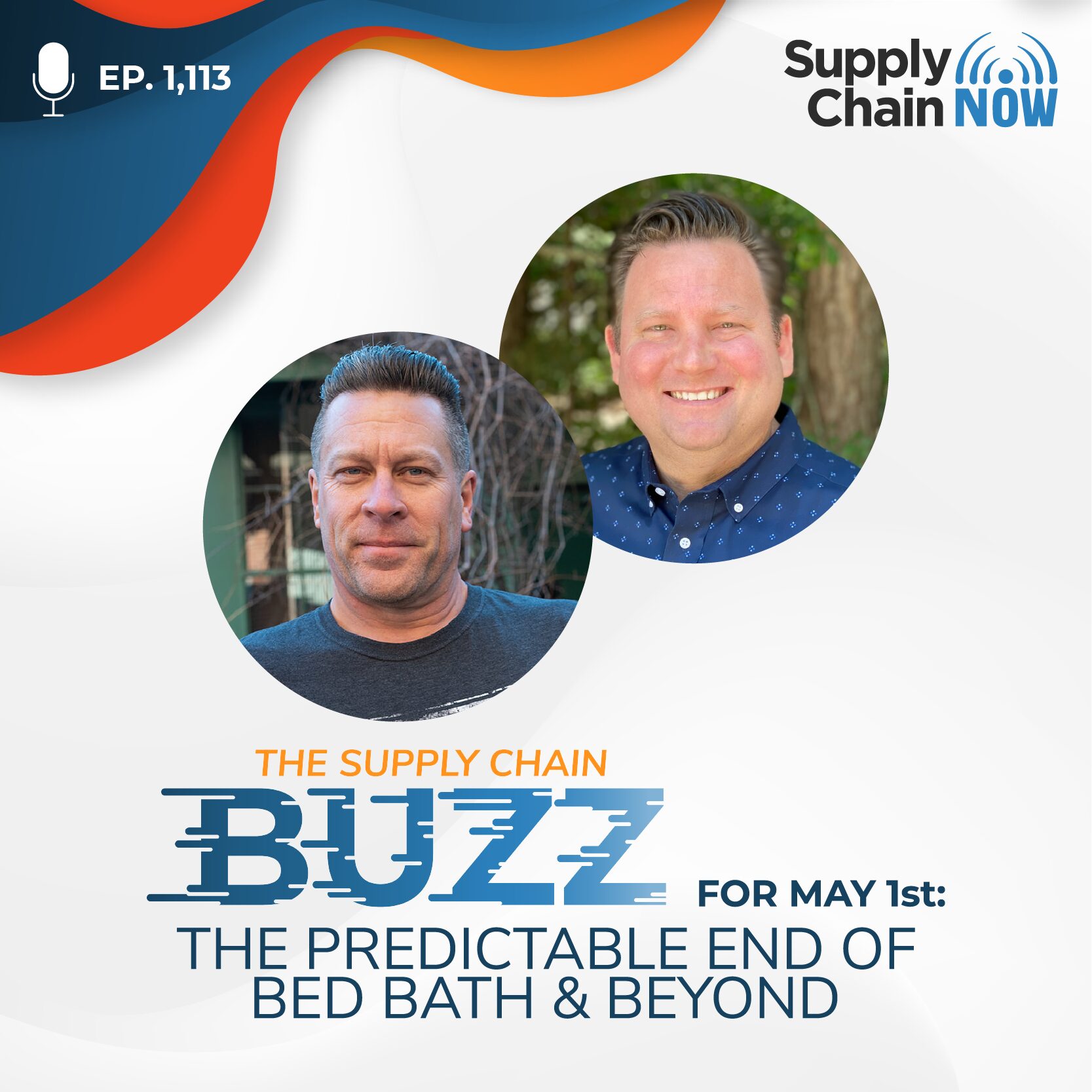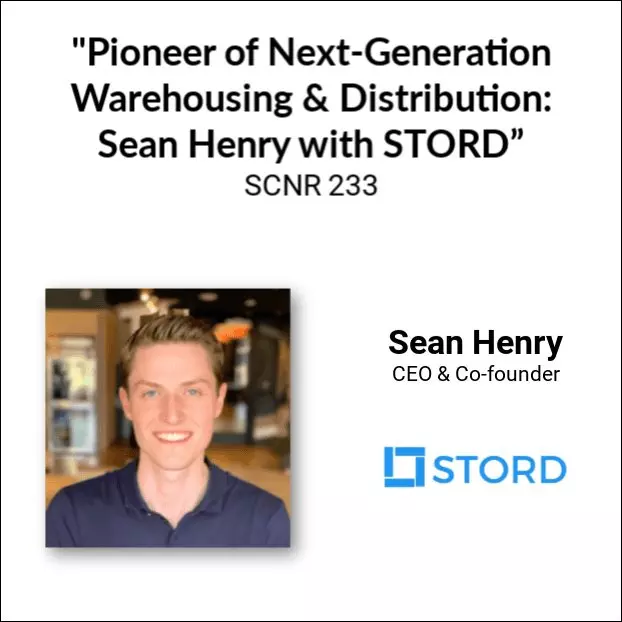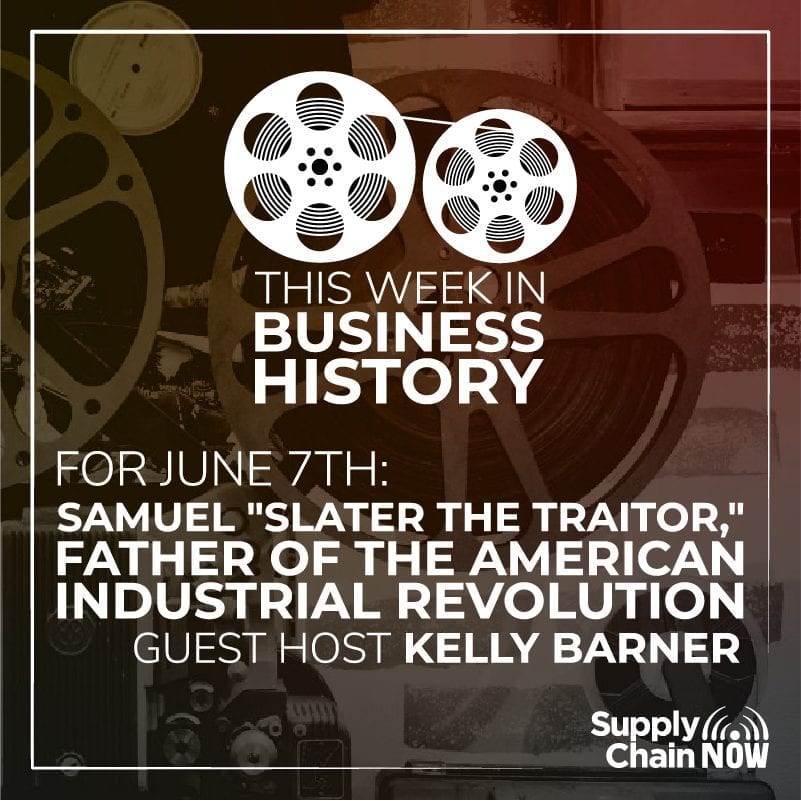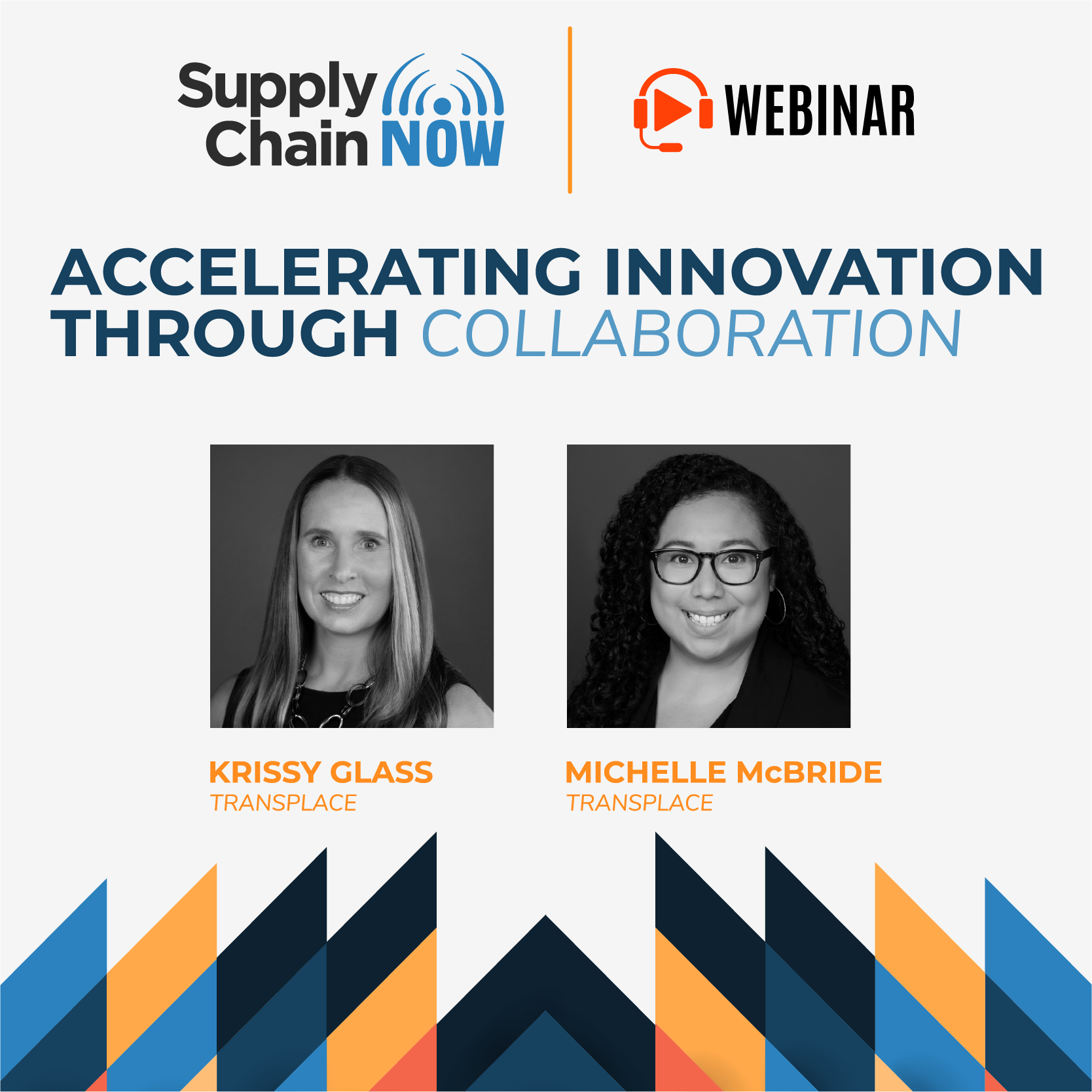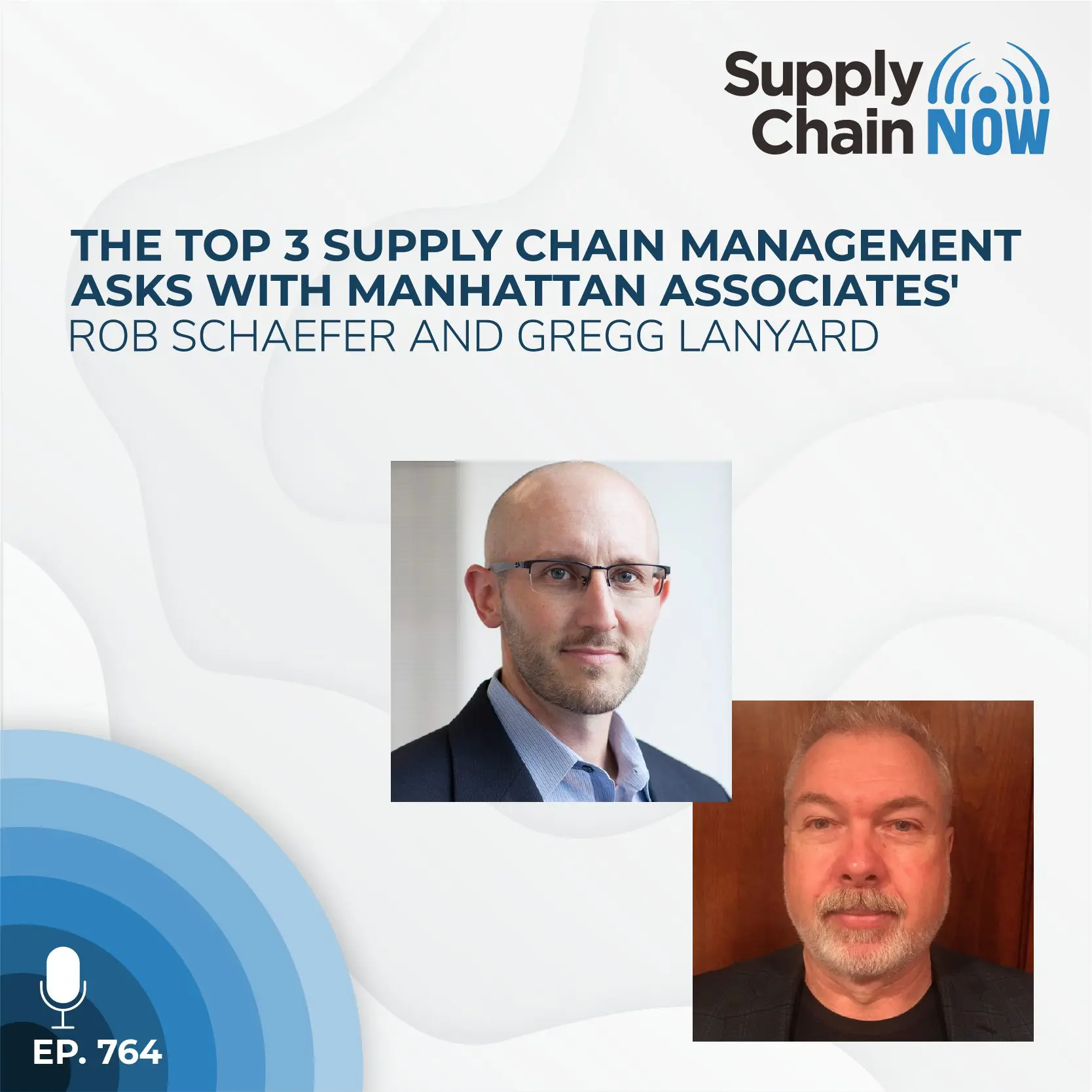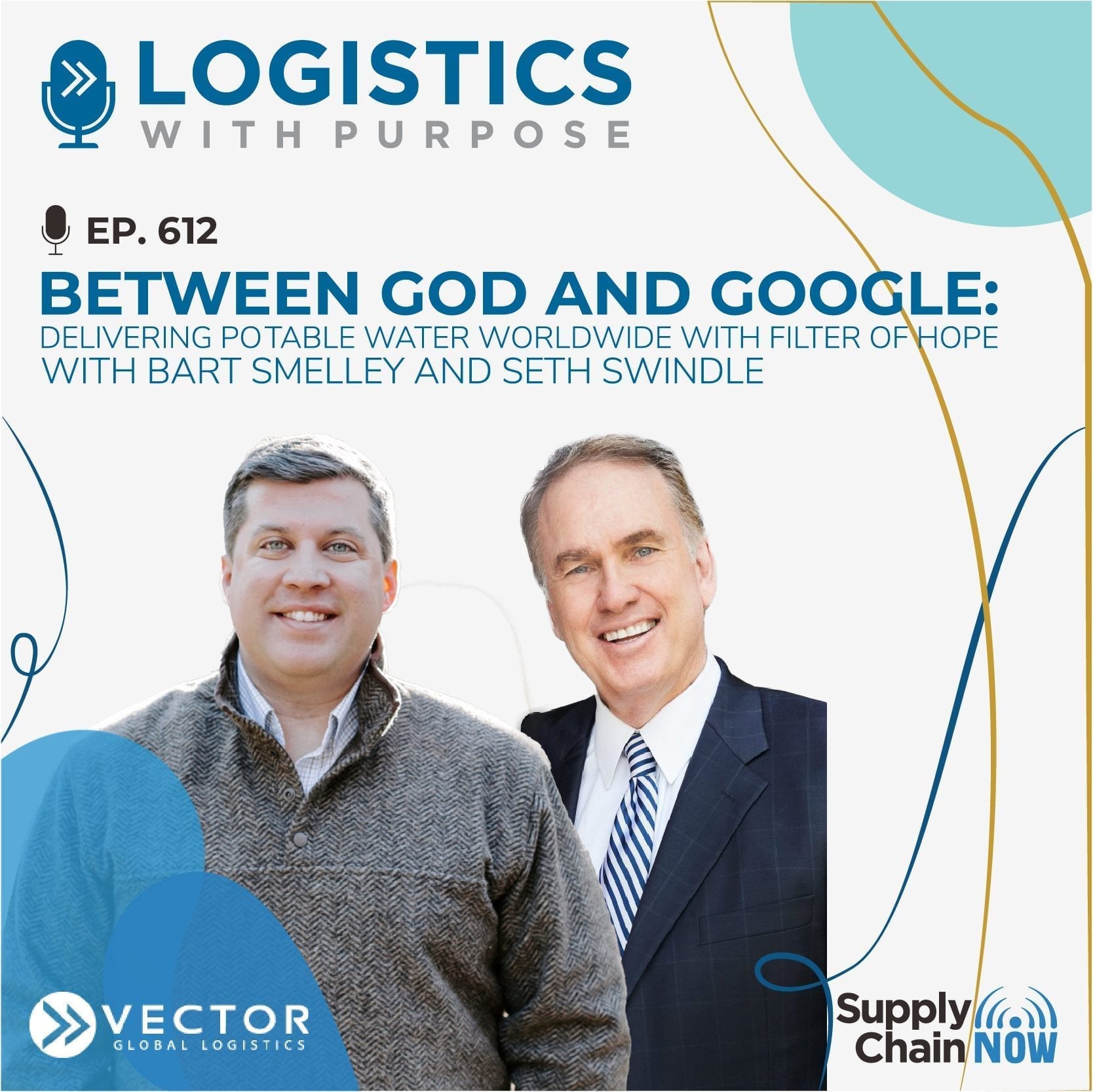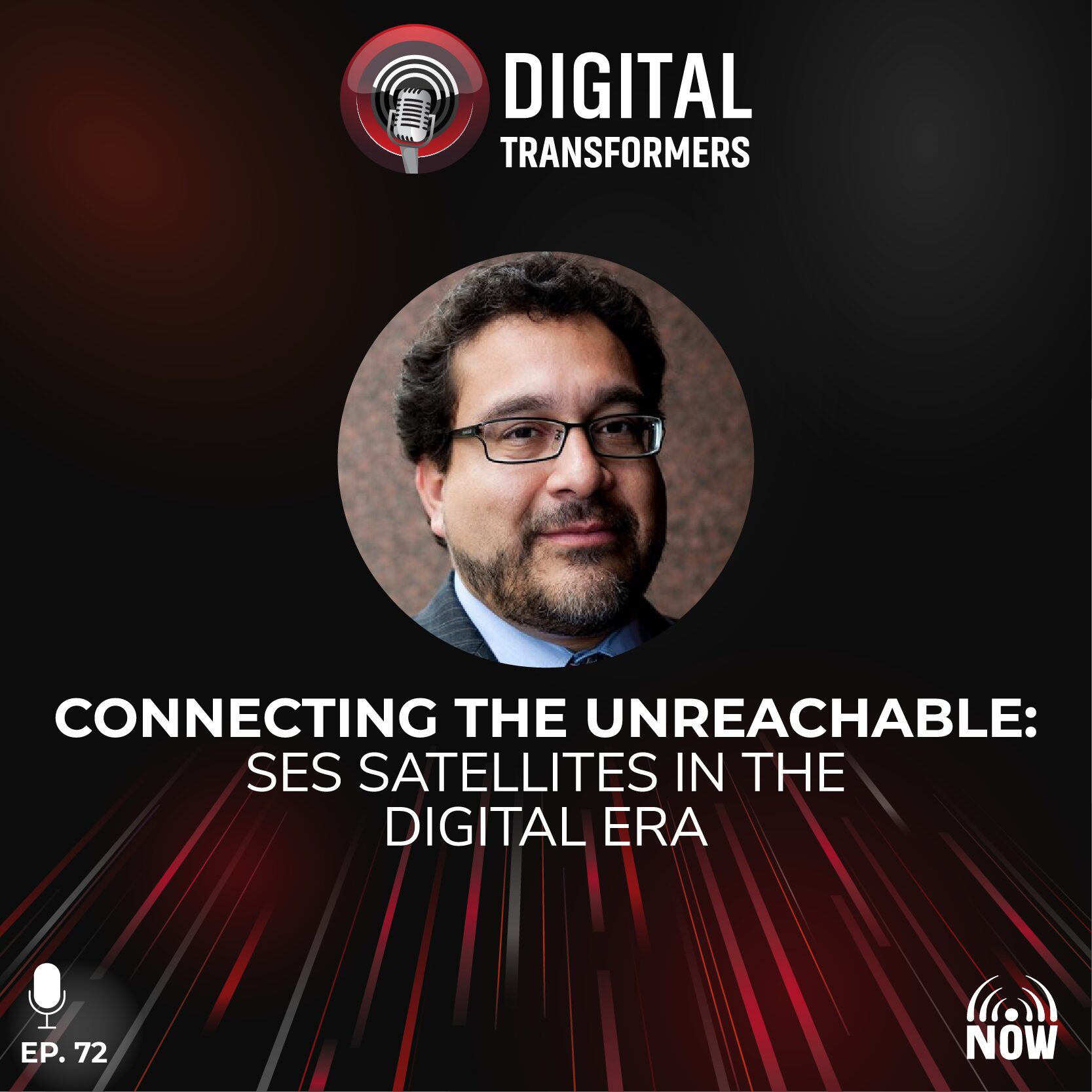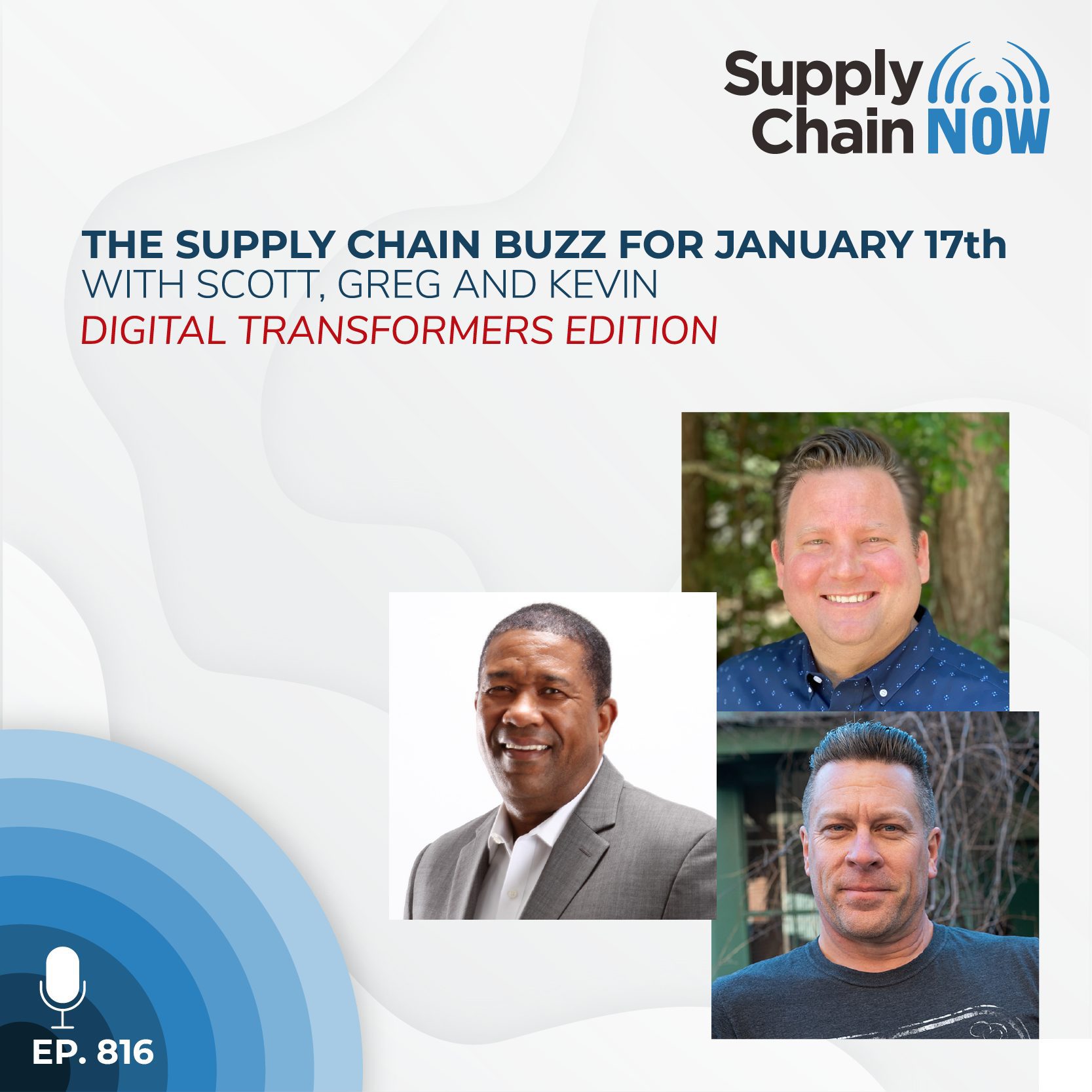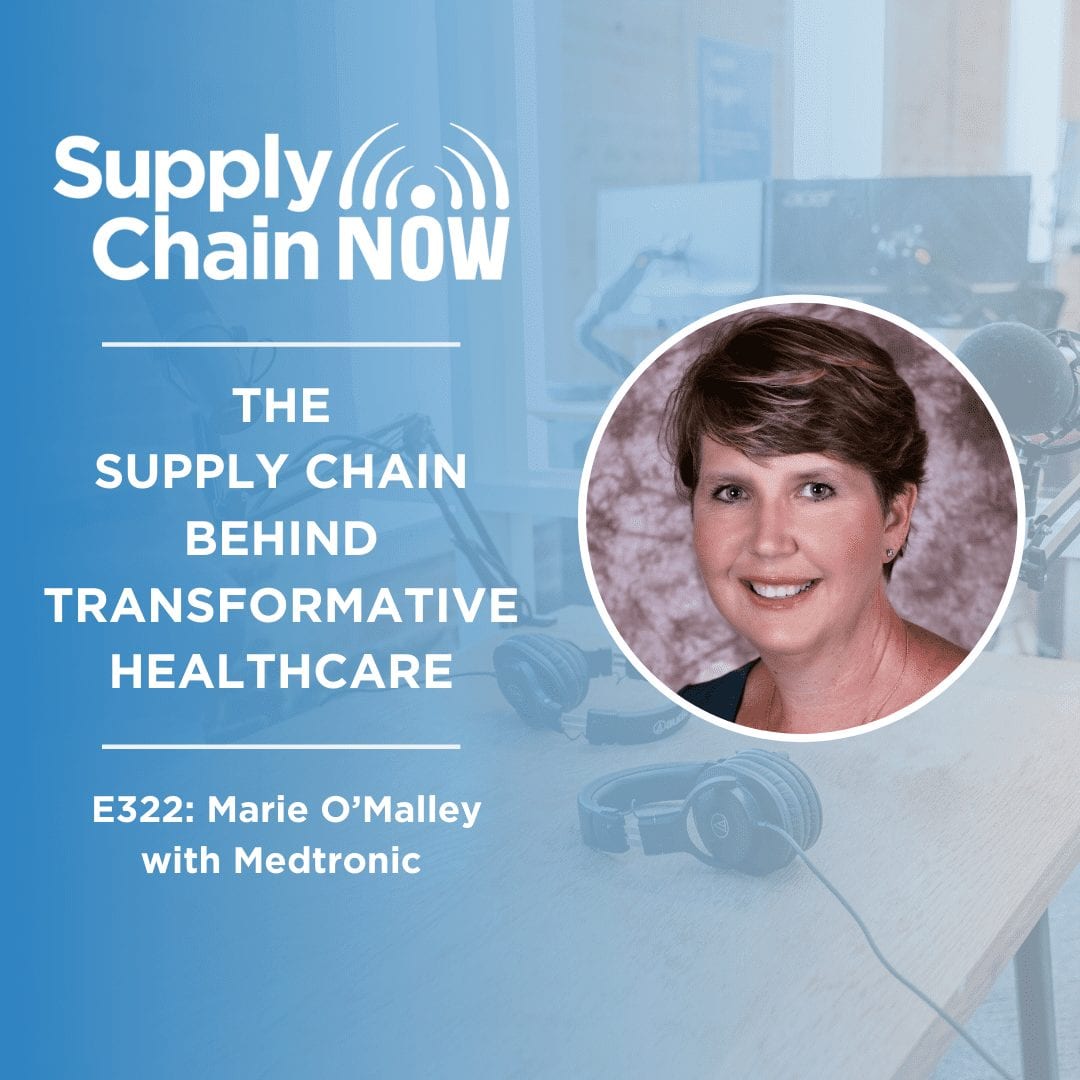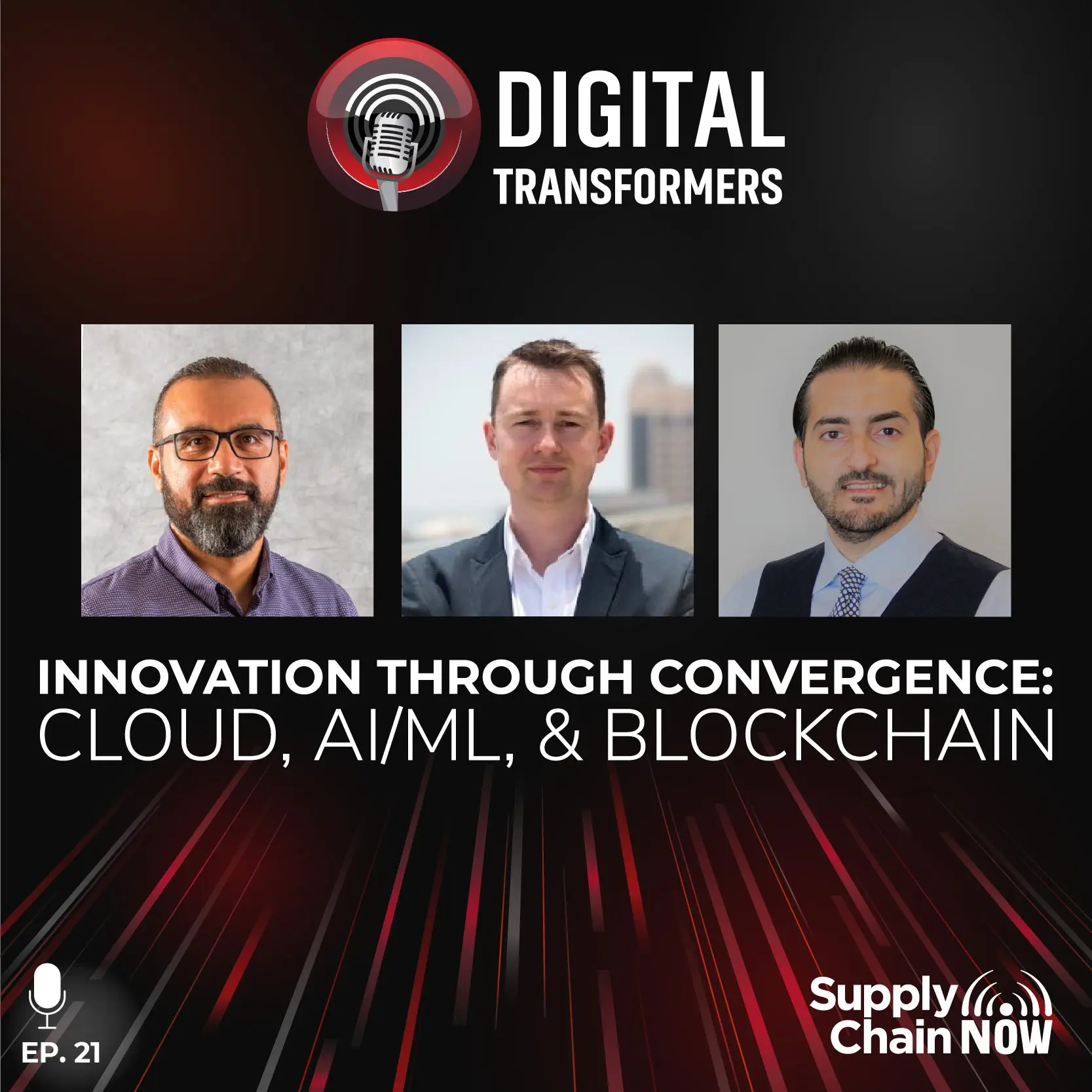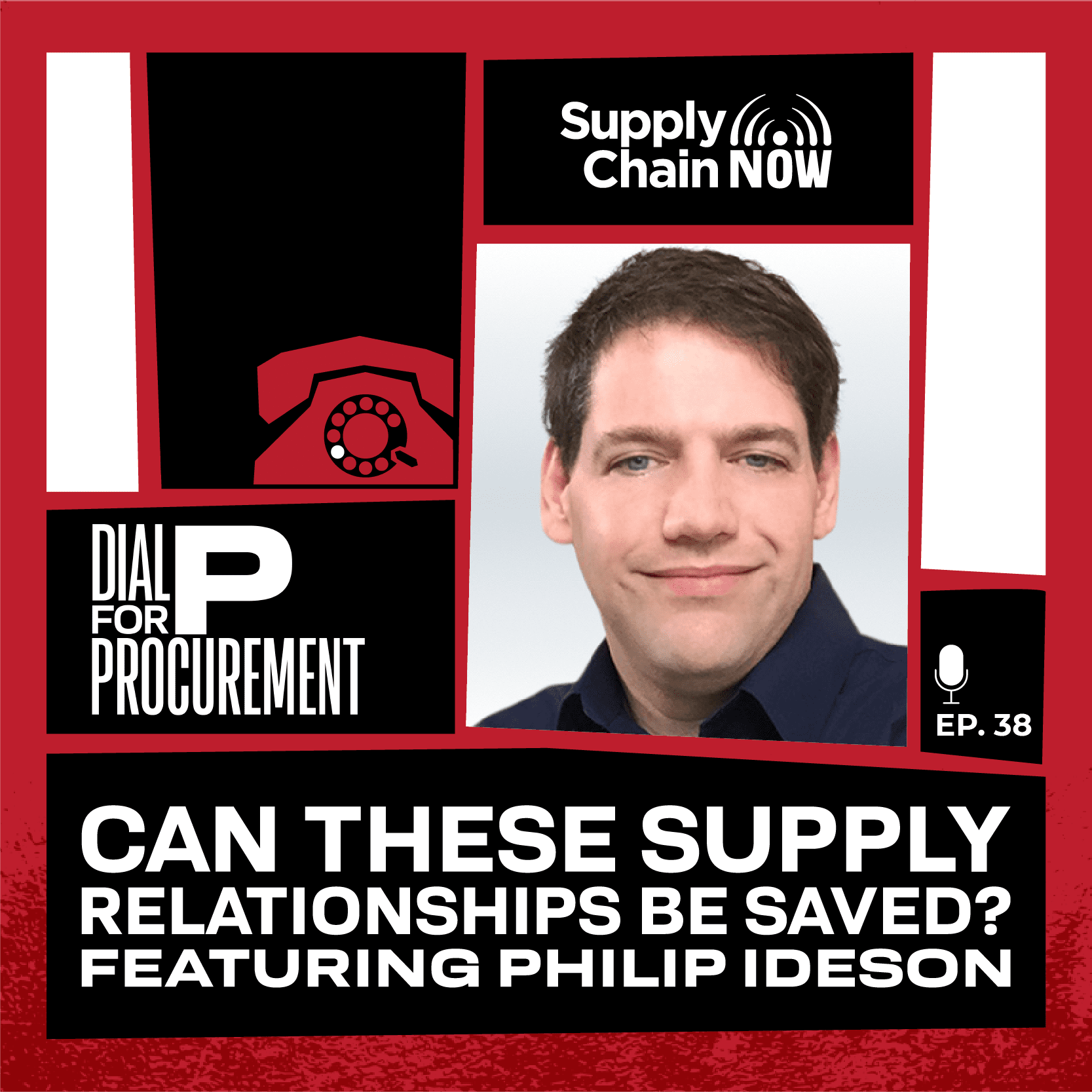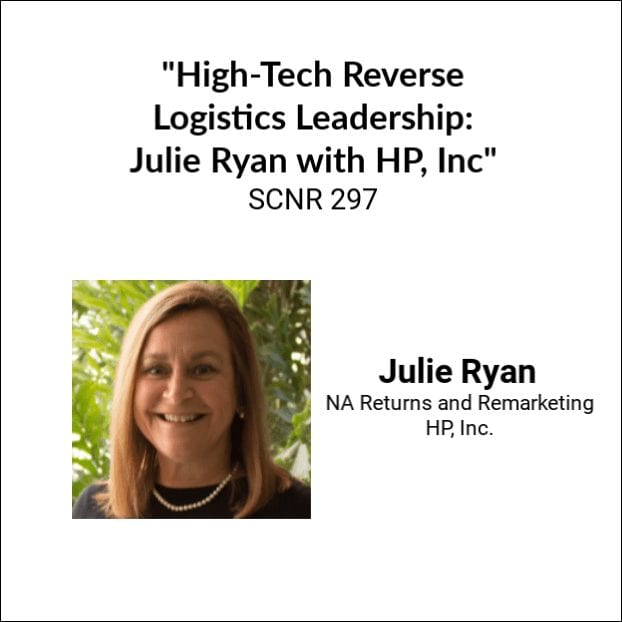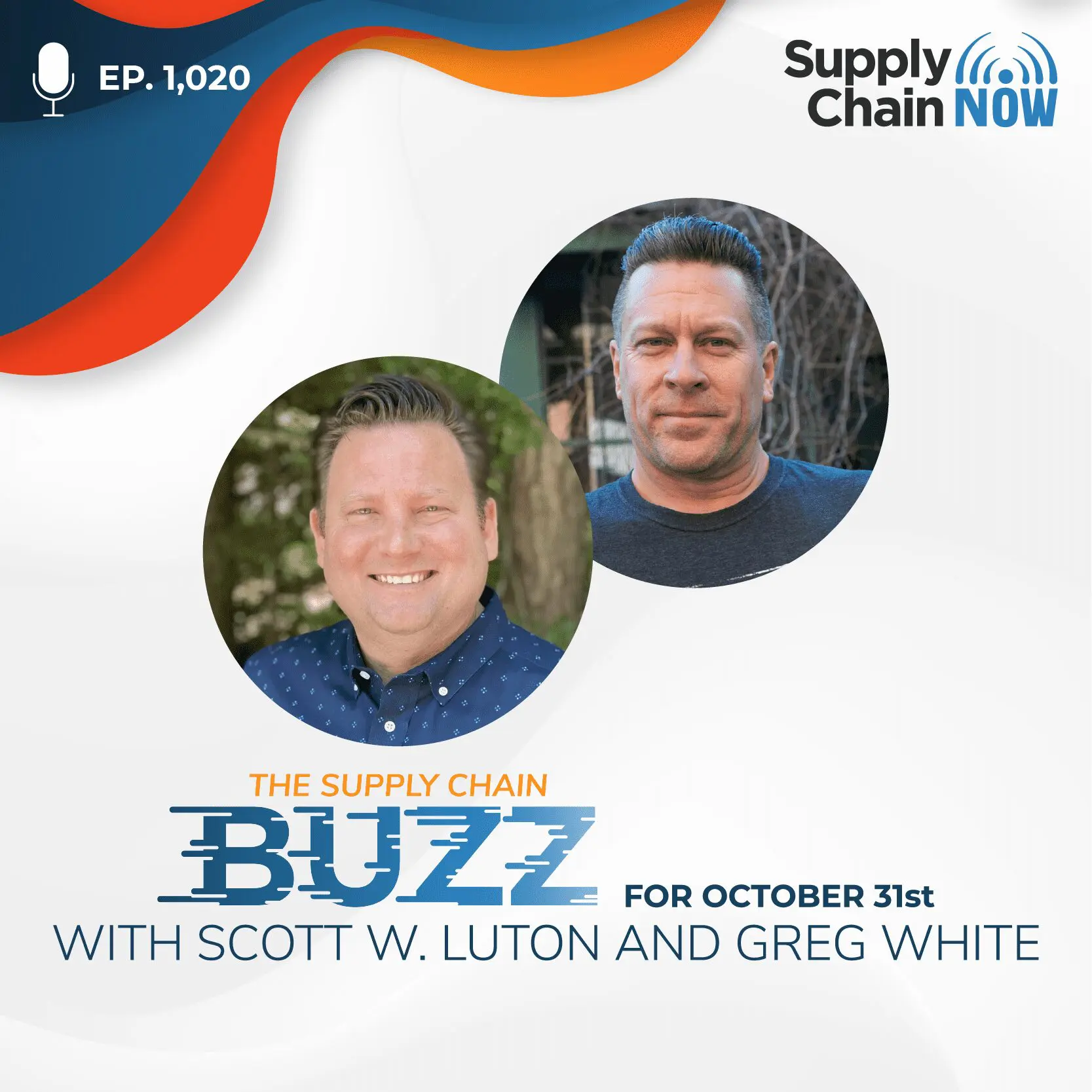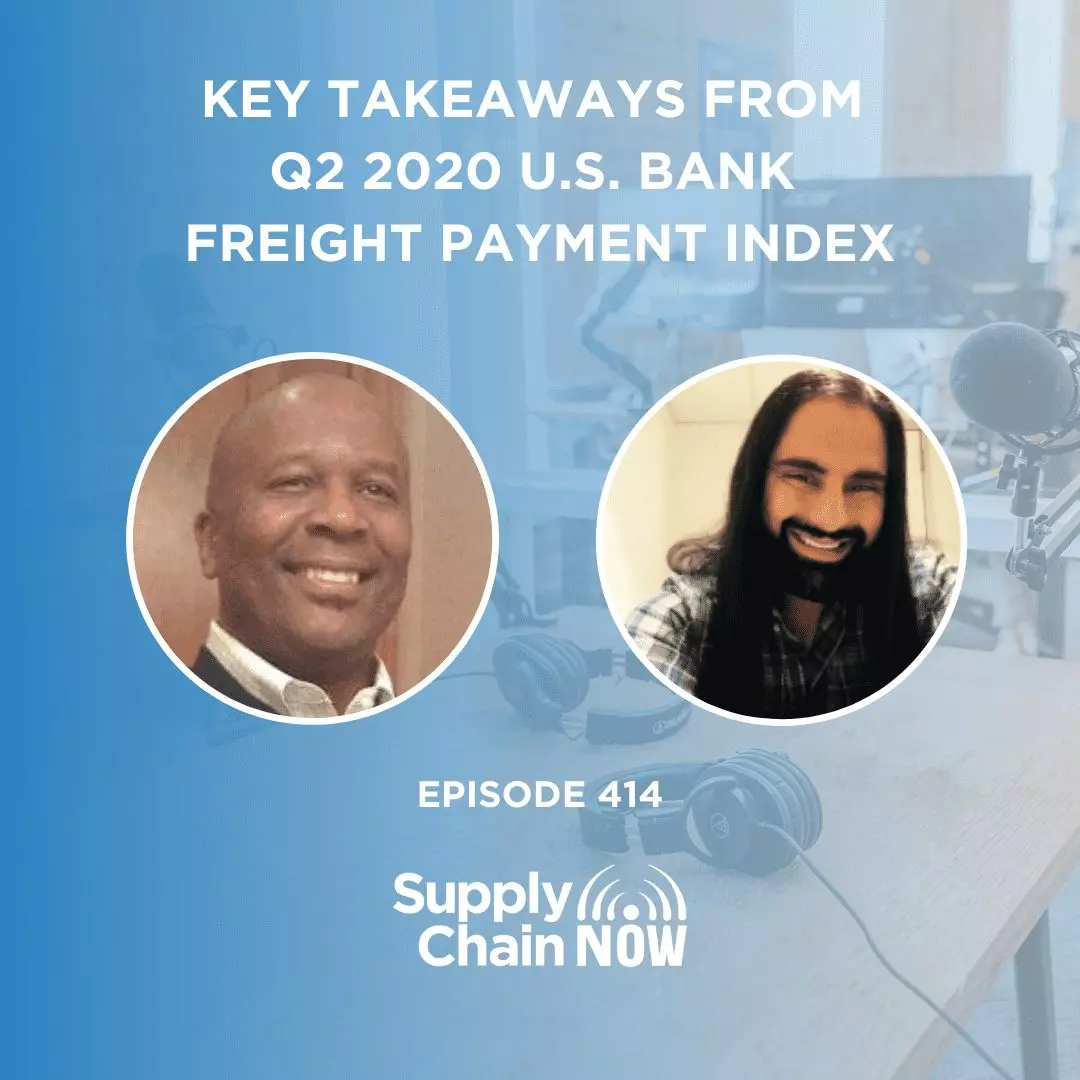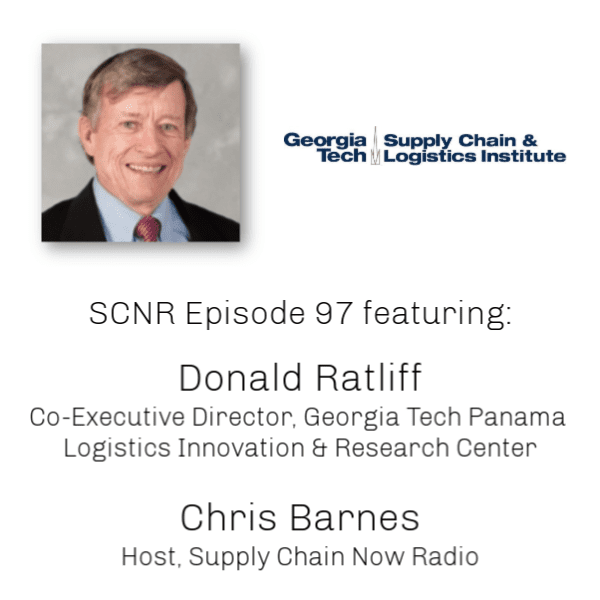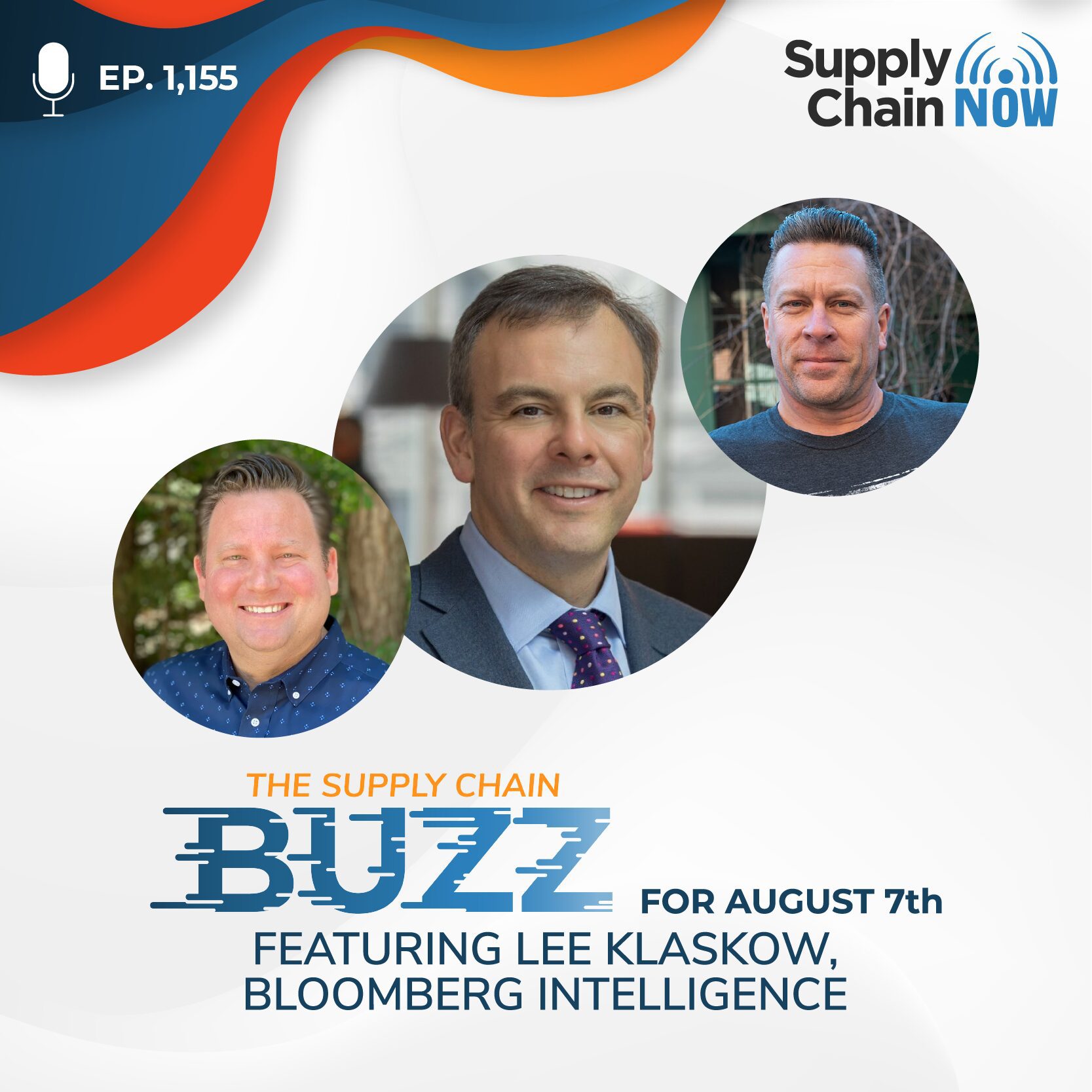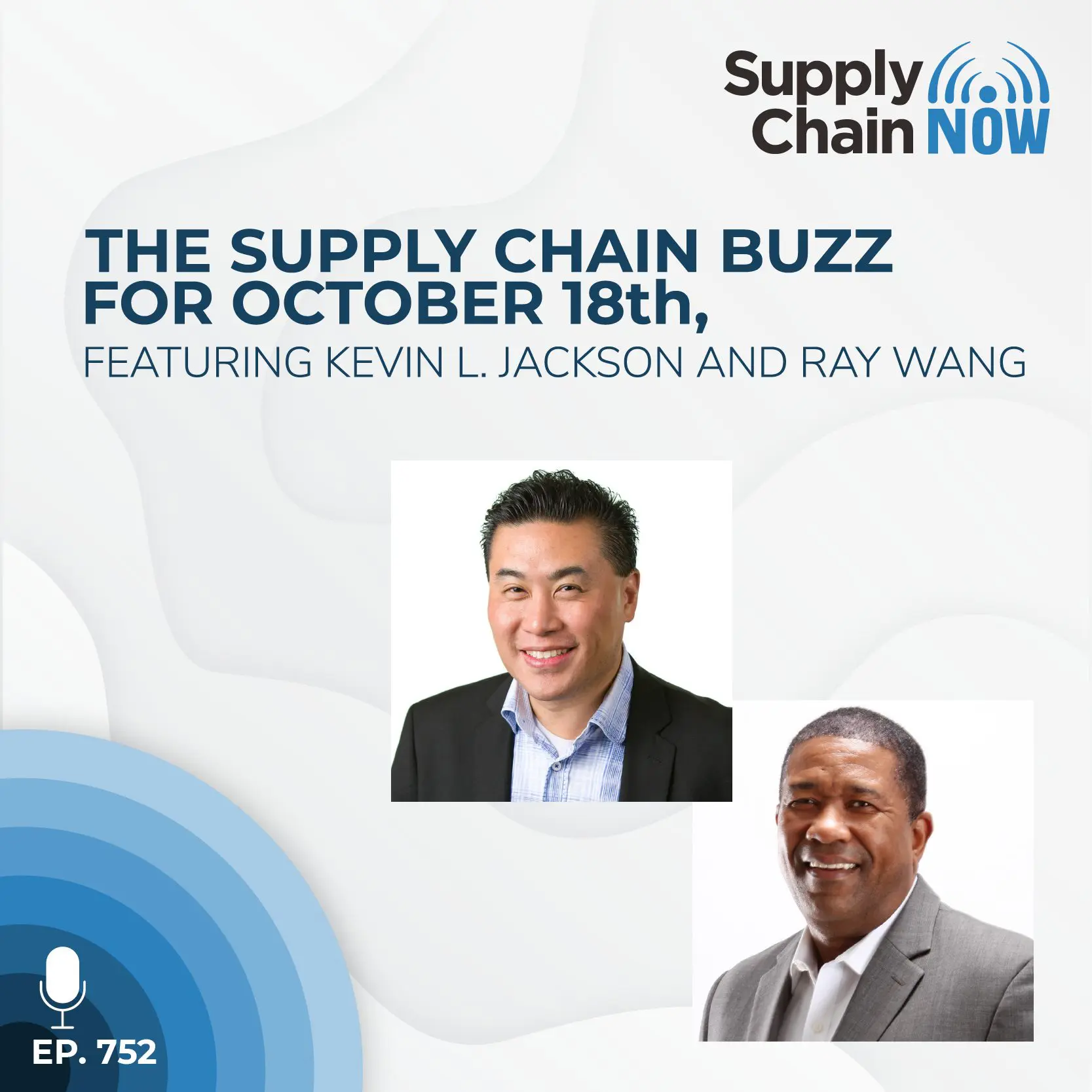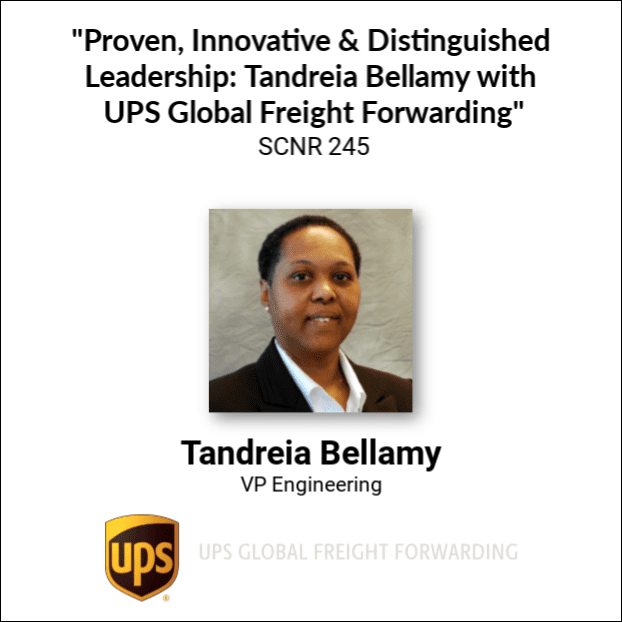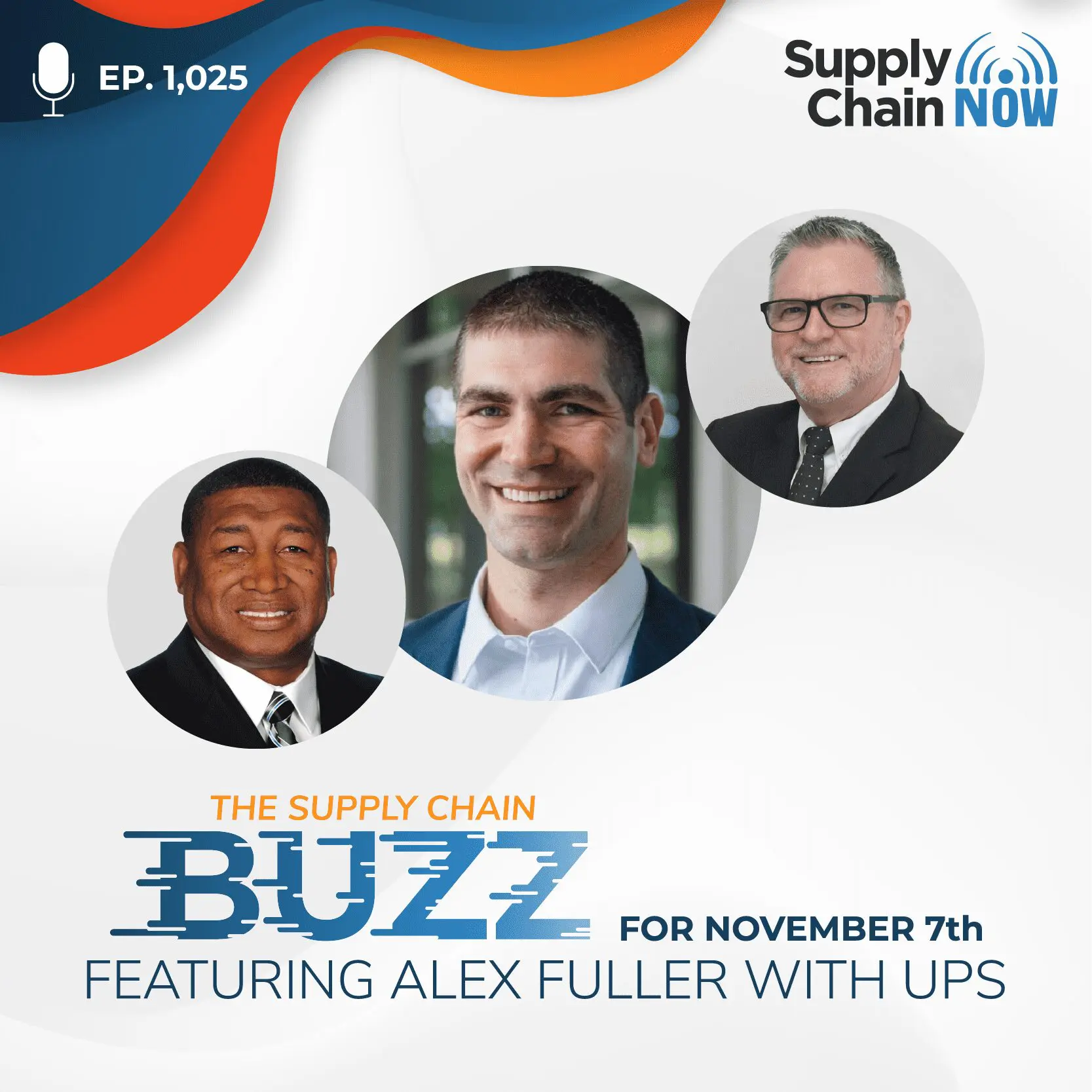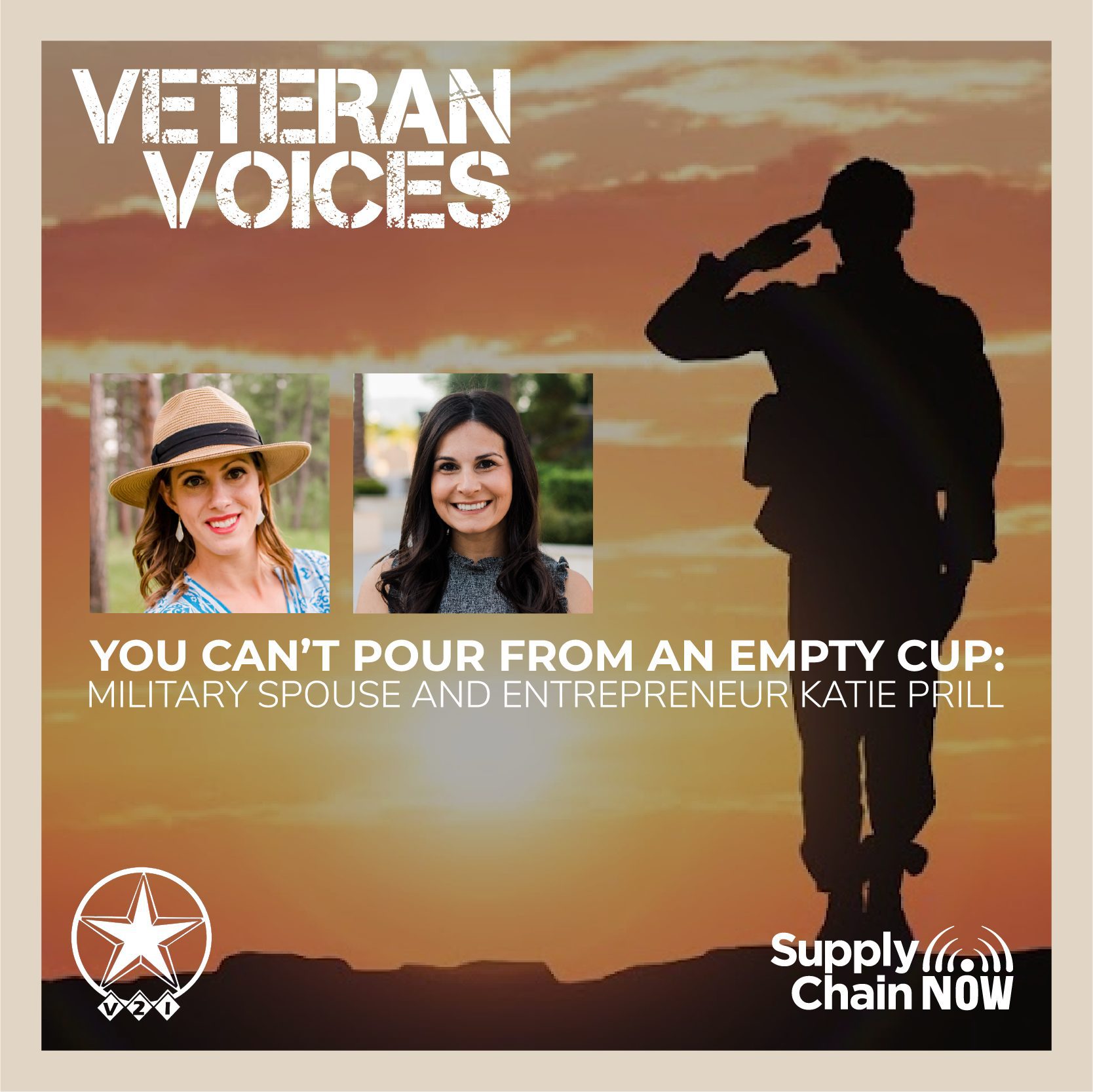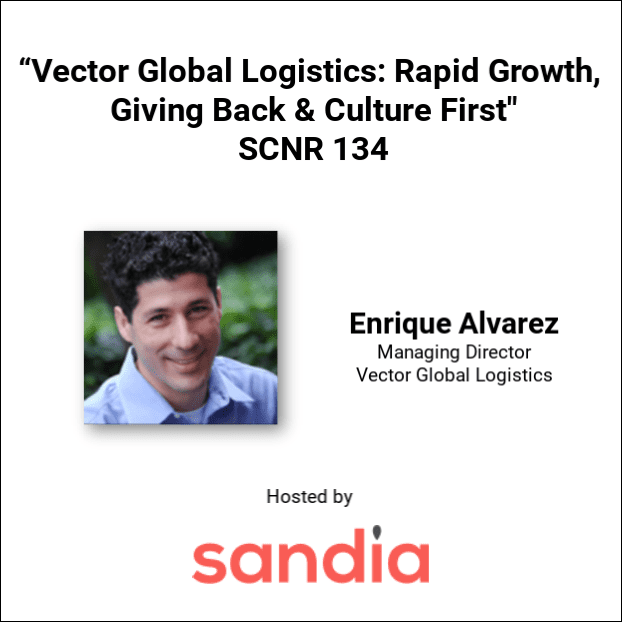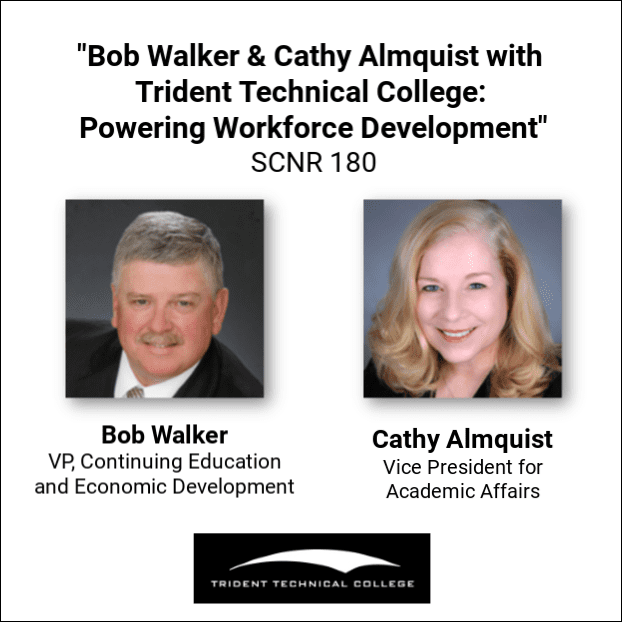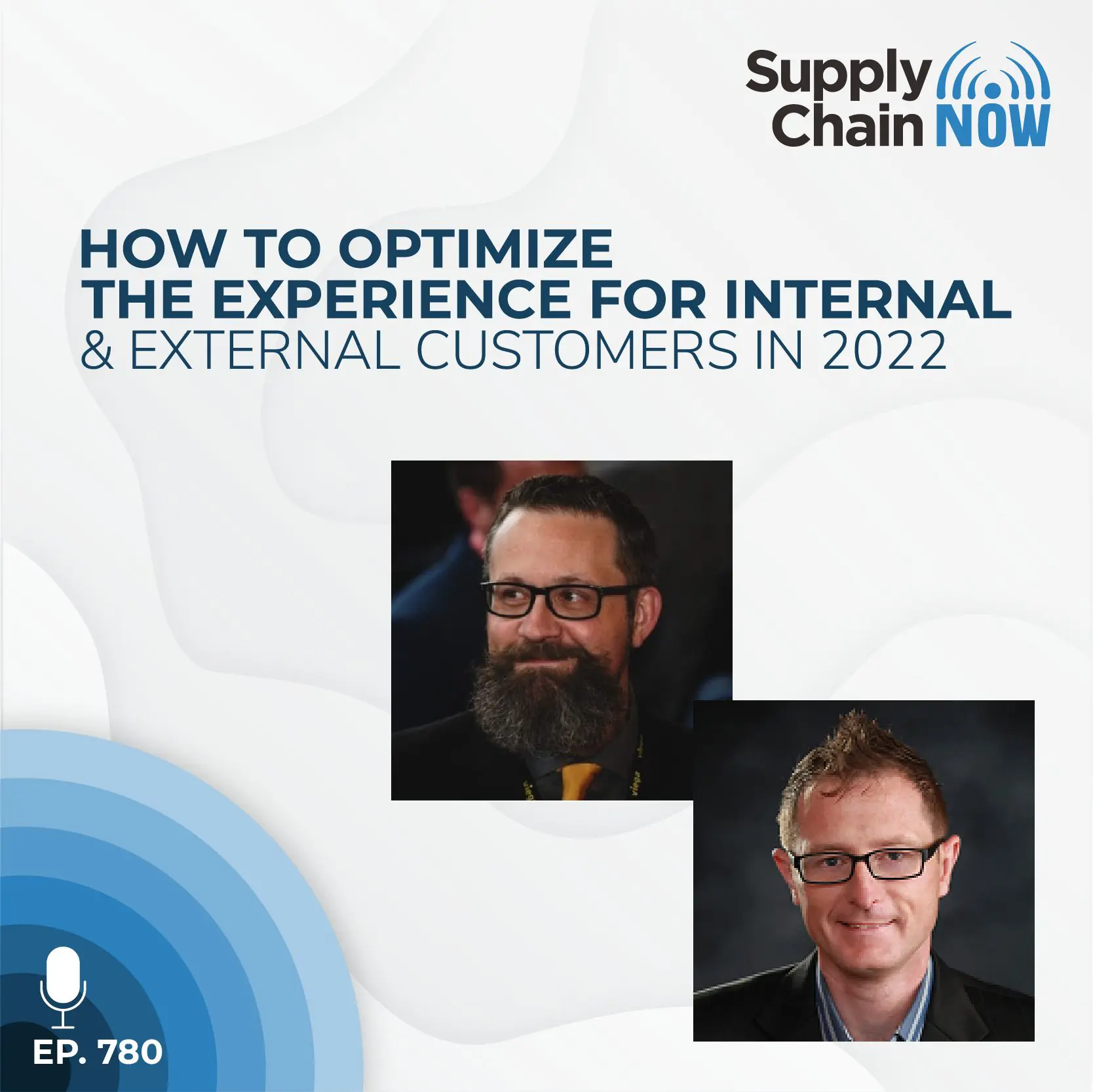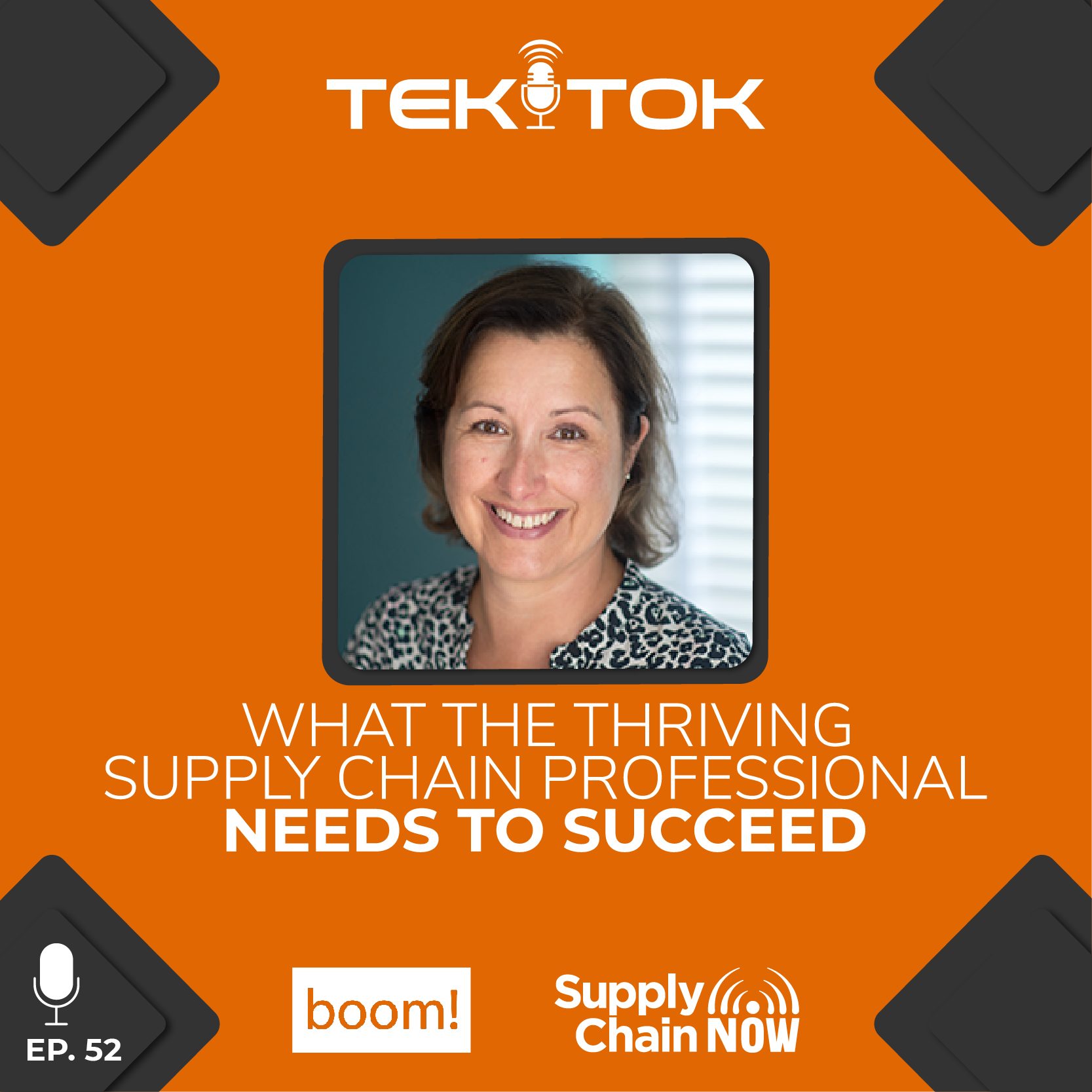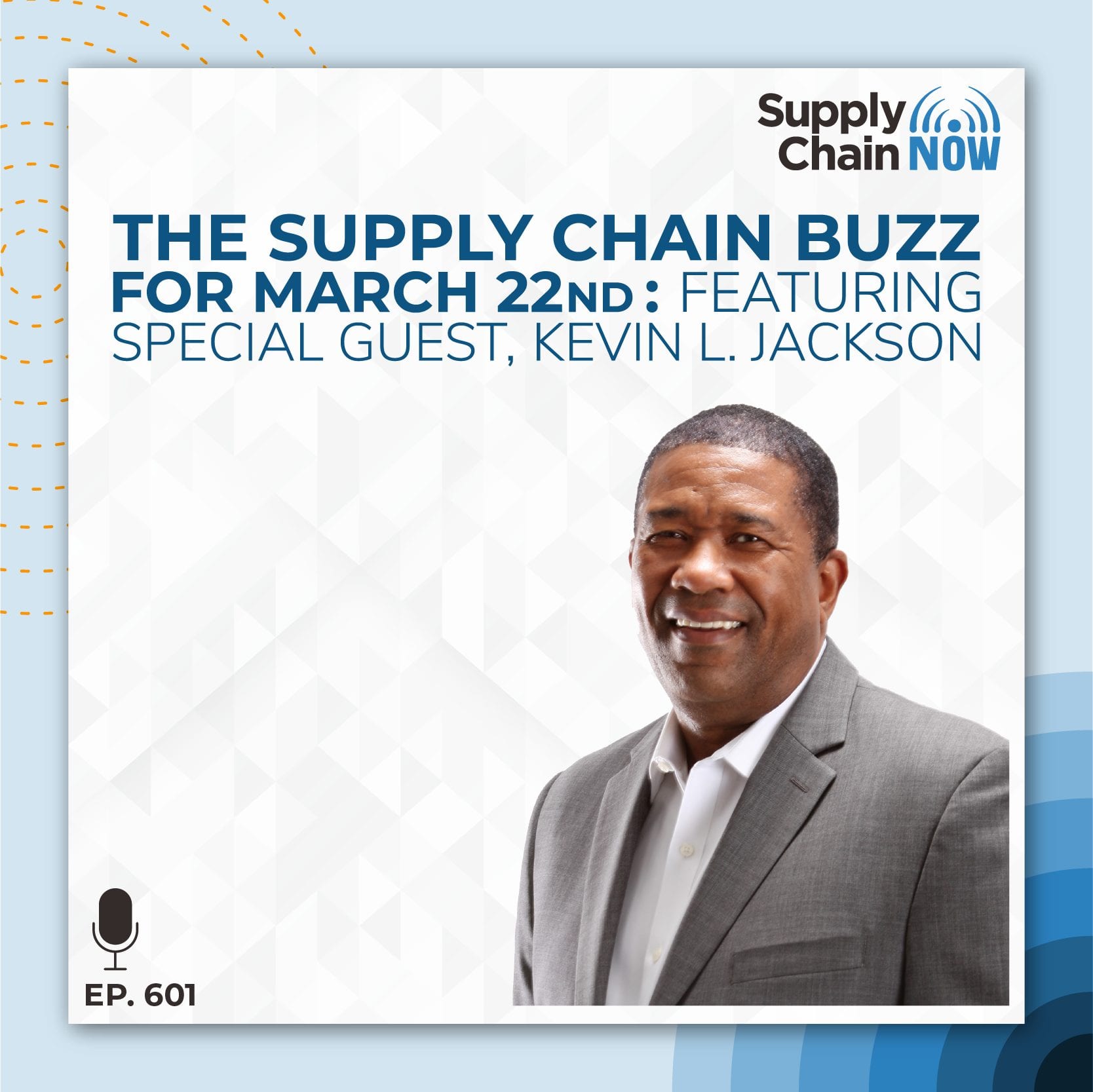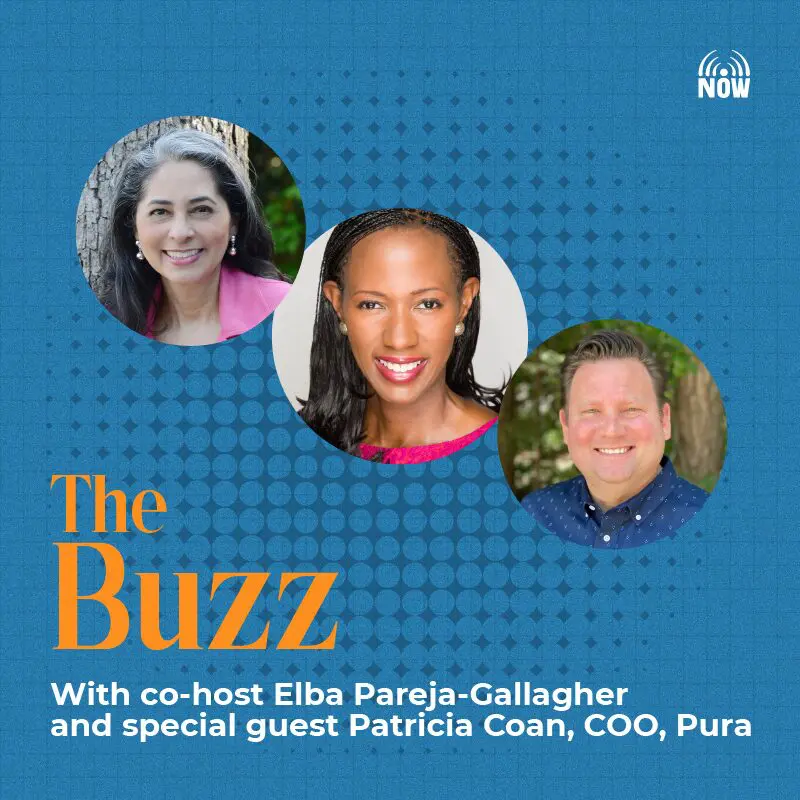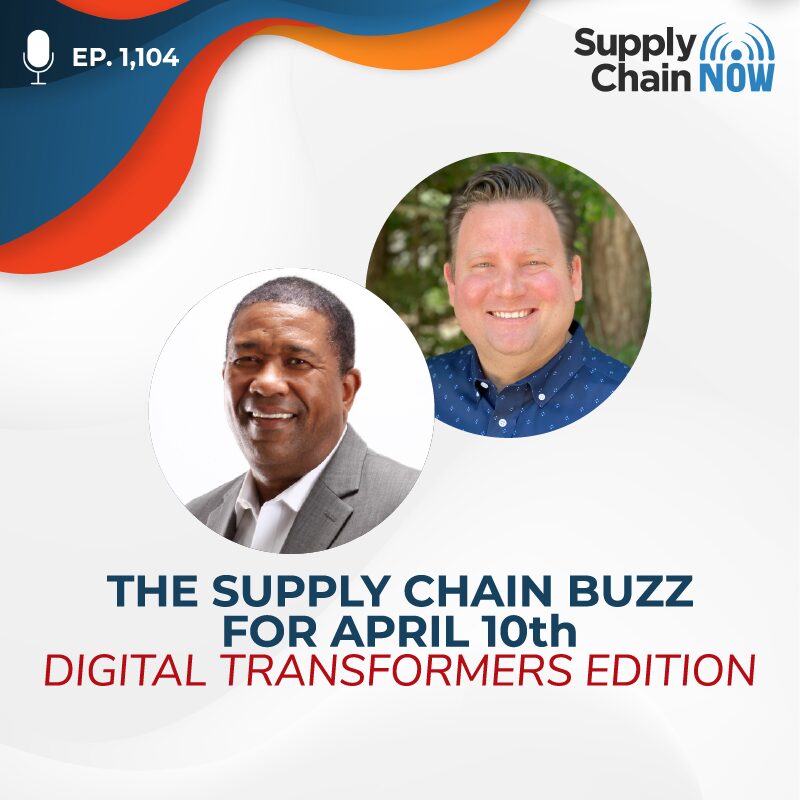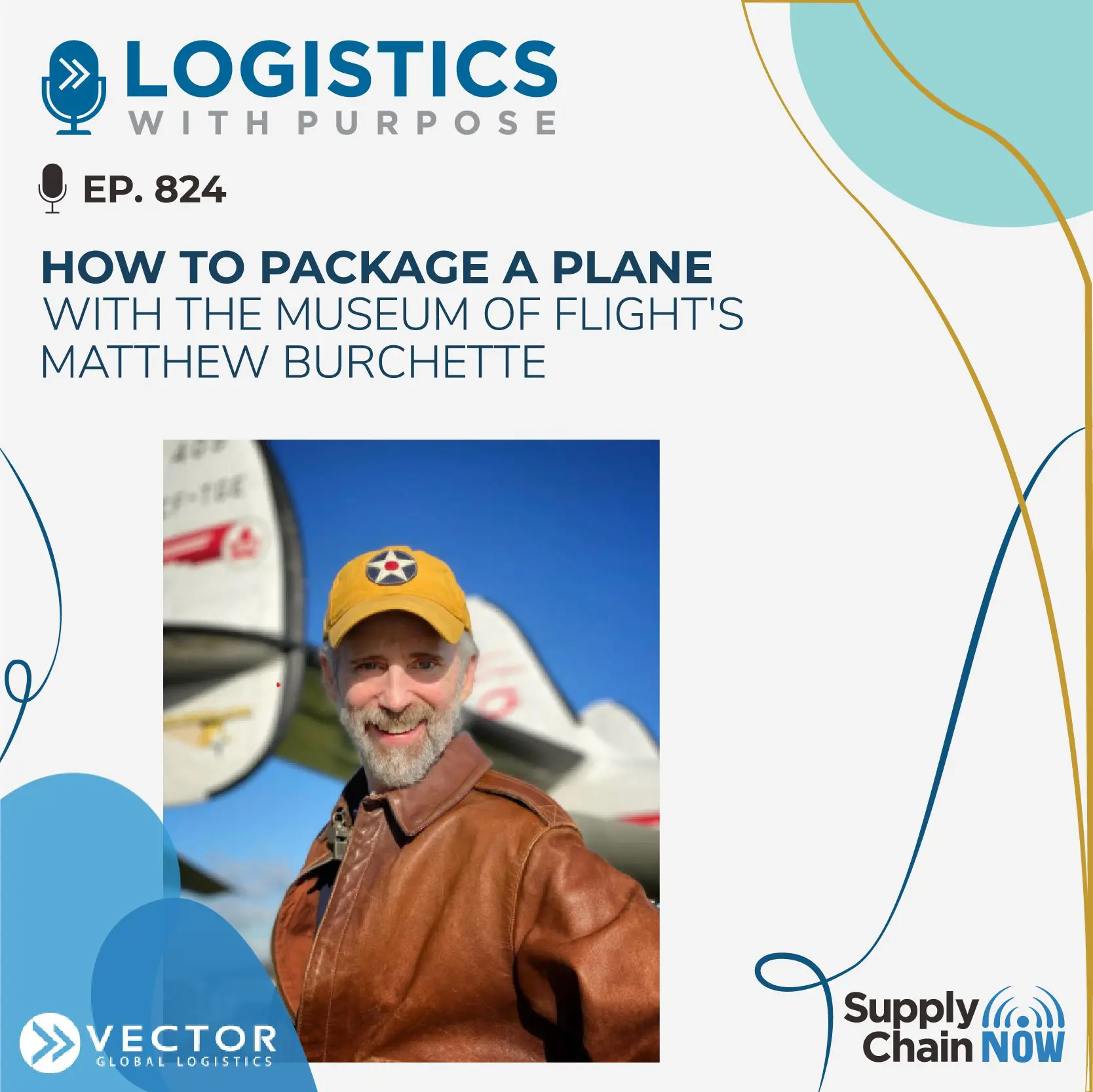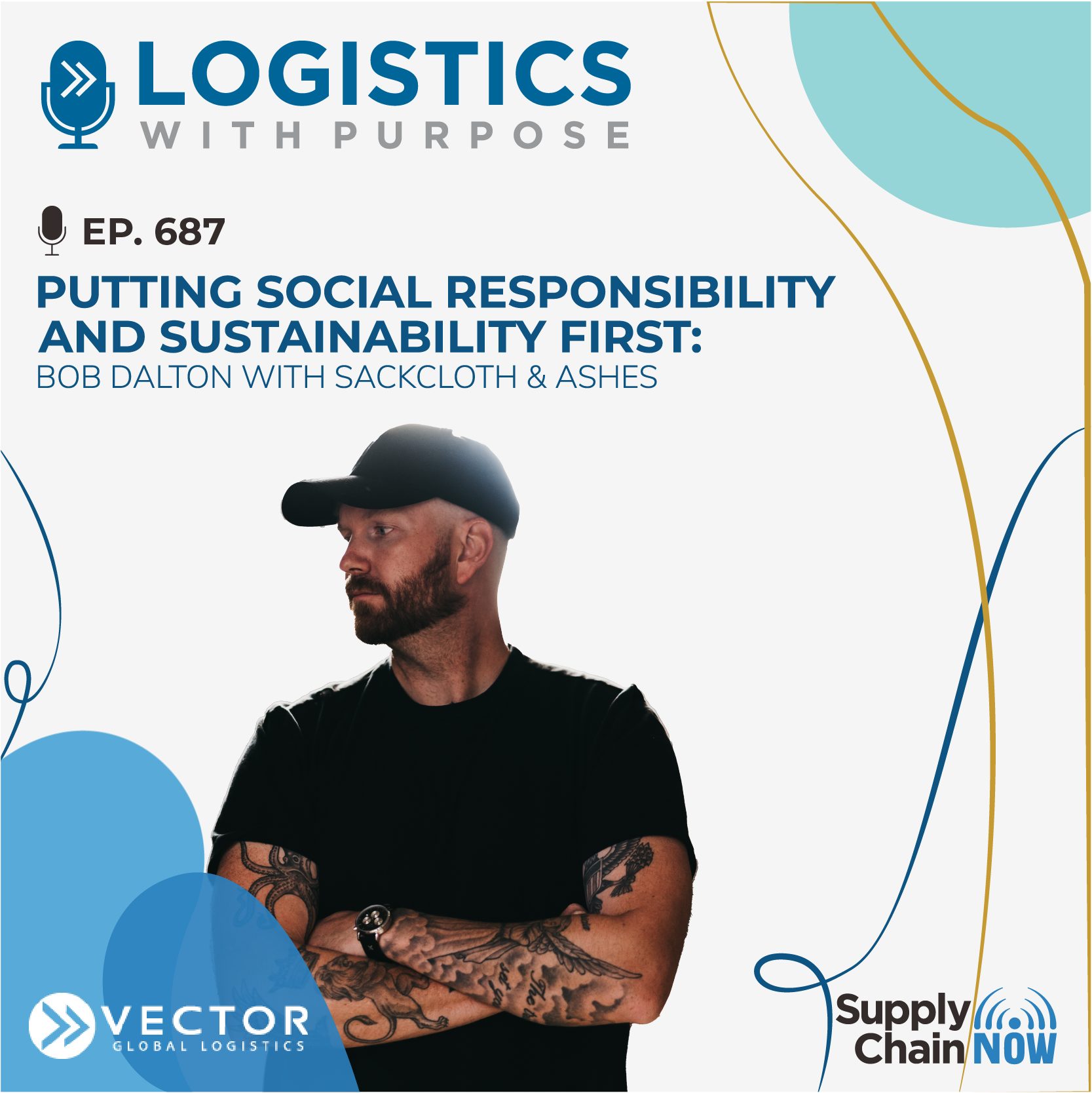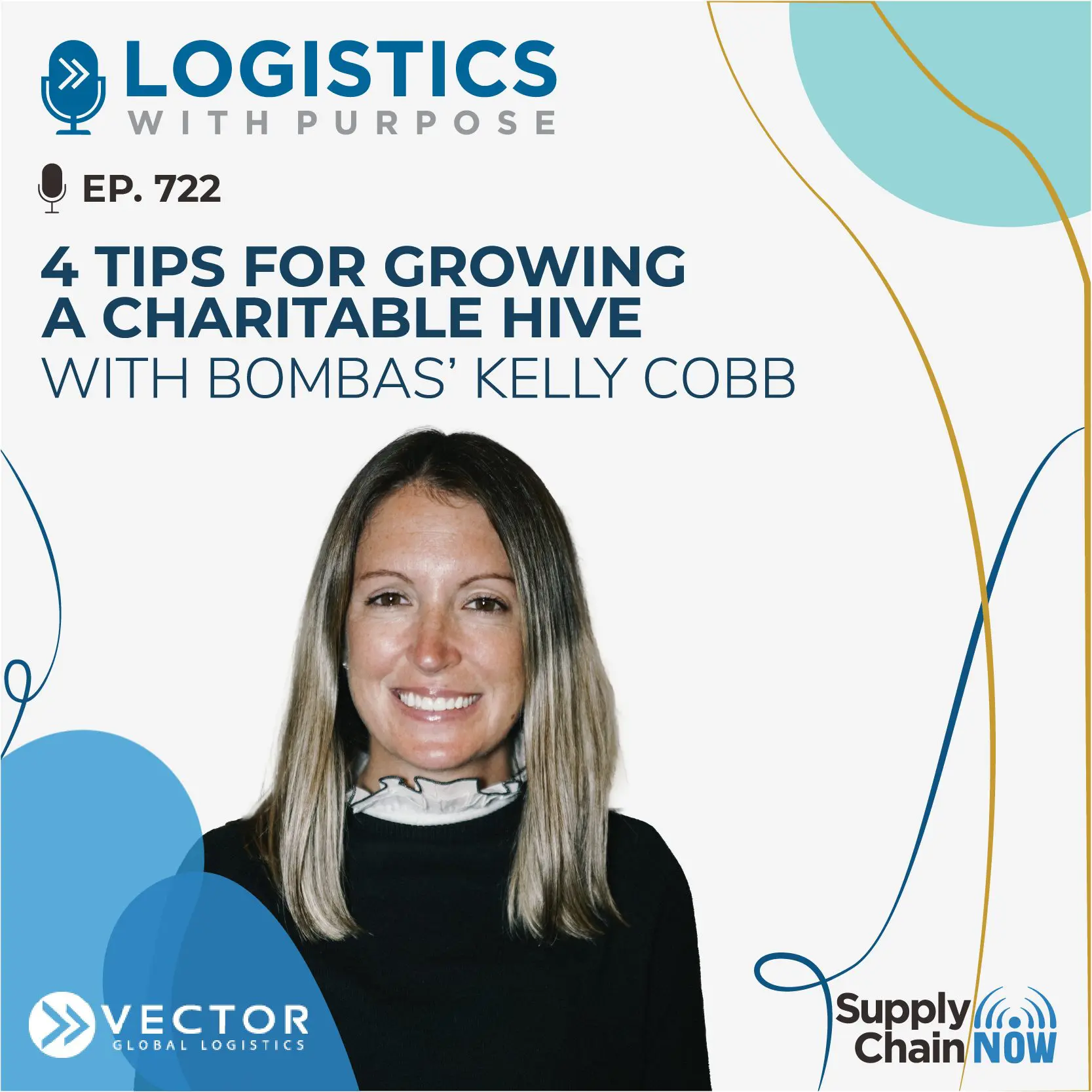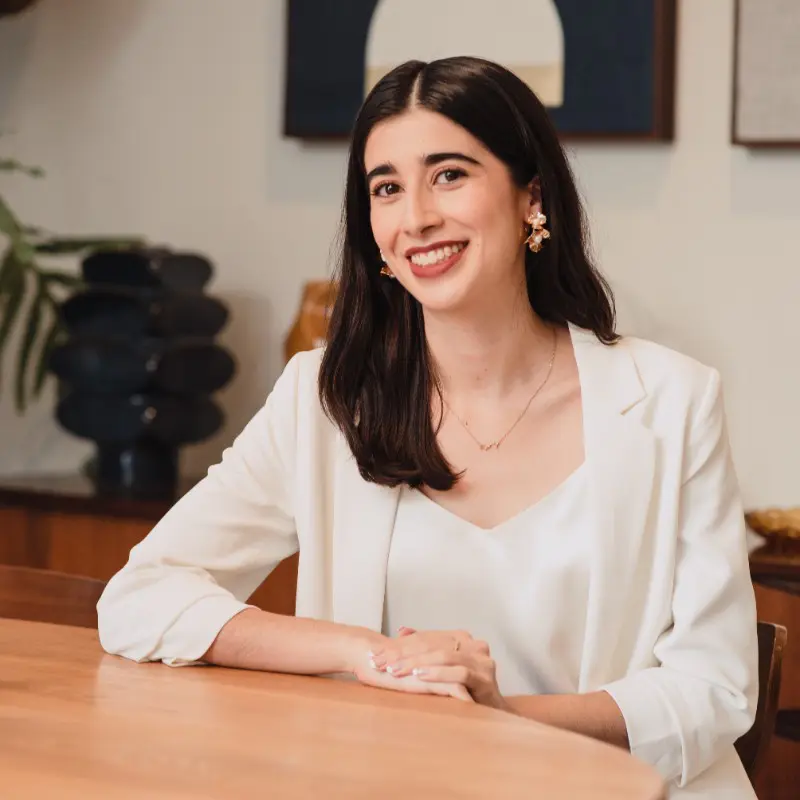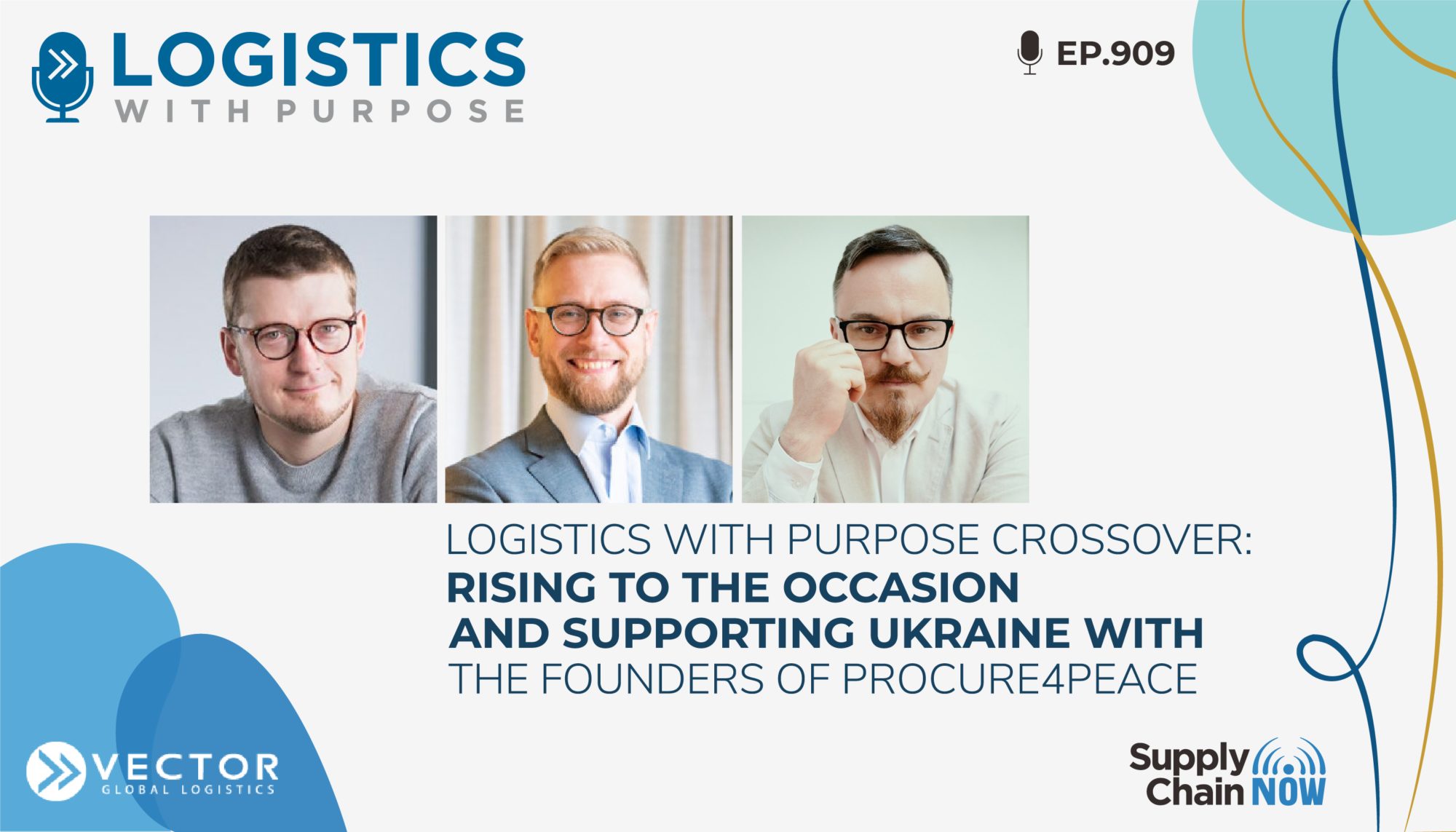
There's a kind of debate about, let's say, the democratic society not being functional anymore and hate speech and so forth. But now I very strongly felt that, hey, democracy works and here we are as a society pulling together to help Ukraine.
-Sammeli Sammalkorpi
Episode Summary
If you’re a supply chain professional interested in supporting Ukrainians as the Russia-Ukraine war continues, you don’t want to miss this Logistics with Purpose crossover episode with Procure 4 Peace founders Antti Suorsa, Sammeli Sammalkorpi and Volodymyr Vorobey. Join hosts Enrique and Maureen as they chat with these dynamic change-makers about the journey that led them to procurement and how they answered the call for support at the start of the violence in Ukraine. Tune in now to learn more about Ukraine’s most pressing needs and how you can make a difference.
Episode Transcript
Intro/Outro (00:00:02):
Welcome to logistics with purpose presented by vector global logistics in partnership with supply chain. Now we spotlight and celebrate organizations who are dedicated to creating a positive impact. Join us for this behind the scenes glimpse of the origin stories, change making progress and future plans of organizations who are actively making a difference. Our goal isn’t just to entertain you, but to inspire you to go out and change the world. And now here’s today’s episode of logistics with purpose
Enrique Alvarez (00:00:34):
Good day, and welcome back to another very exciting episode of logistics with purpose. It’s been, uh, a while since I had the privilege to host an episode with Maureen. Maureen, How are you doing today?
Maureen Woolshlager (00:00:44):
Good. How are you? Happy Monday.
Enrique Alvarez (00:00:46):
I’m doing great. Thank you so much. We have an, a very interesting organization joining us and we also have a very international panel as well.
Maureen Woolshlager (00:00:53):
That’s true. That’s true. We have SOEL and Valdimir and all from procure for peace and we will let them talk a little bit more about themselves and what procure for peace is, but I don’t wanna jump ahead too quickly on that
Enrique Alvarez (00:01:09):
<laugh> oh, well the pleasure being here with you again. Uh, thanks everyone for joining auntie SOEL Belo mirror. Thank you so much for what you guys do. Uh, as said before this, we started recording, uh, what you guys are doing inspires, but, uh, before we jump into your organization, if you could tell us a bit more about yourselves, where, where did you grow, grow up? Uh, some of the things that you like to do when you were little and what country are you by the way, cuz we’re literally all over the world. So, uh, um, auntie, do you wanna start us off?
Antti Suorsa (00:01:37):
Yeah. Thanks. Thanks. Thanks for having us. Um, yeah, this was, I’ve been, uh, I live in Finland Helsinki originally from, from Northern Finland, uh, from, from Romi town on Arctic circle. Um, and then maybe it’s from there, but on, on free time, especially in wintertime, I love to ski. So, so if I can choose where I spend my free time, it’s gonna be climbing up mountain and, and then skiing it, skiing it down.
Enrique Alvarez (00:02:04):
That’s uh, that’s funny that you mentioned the climbing up first cause uh, for us we take the lift usually, you
Antti Suorsa (00:02:10):
Know? Yeah. I to avoid
Enrique Alvarez (00:02:11):
The like too
Antti Suorsa (00:02:12):
Many people.
Maureen Woolshlager (00:02:13):
Do you use when you go up? Yeah. Yeah. Okay. What about, uh, Ison like the only place you wanna go skiing or what would be like your second, most favorite place to go ski?
Antti Suorsa (00:02:24):
Japan is my most favorite place. Really?
Maureen Woolshlager (00:02:27):
Yes. I’ve never, I’ve never been,
Antti Suorsa (00:02:29):
There’s nice places in us as well. I’ve been in, in Colorado and Utah and, and lake Tahoe.
Maureen Woolshlager (00:02:34):
Yeah. I don’t know if they compared to Finland though. I’ll be honest, but
Antti Suorsa (00:02:38):
Well, Finland is quite flat. So the winter I went to Norway, it’s very near and they have some mountain stairs, so.
Maureen Woolshlager (00:02:44):
Okay. Wow. Okay. Japan, I’m gonna put that on my list right now.
Enrique Alvarez (00:02:48):
Thank you for, yeah. Thanks for joining auntie. And um, yeah. Thanks for sharing that with us. Um, Sammeli, do you want to go next?
Sammeli Sammalkorpi (00:02:55):
Yeah. Thanks. And, and welcome to all, all listeners as well. Great. Great to have the budget to be here. Thanks Henry and modern for making that happen. So yeah, some Sam is, is, is my name and it happens. I was also born in the, in the north in Finland. So I share a lot, lot of background with, and actually for me, sort of my first name is Sam and it’s actually not your traditional finished first name, but it’s a very traditional name for people from Northern Finland who, who have certain occupation and it’s the reindeer farming. So my parents wanted me, I me to become a reindeer farmer, but I have not fulfilled my parents’ expectations, at least in, in that front. So in instead I became a software entrepreneur team leading, uh, co-founder CEO of, of Seattle hyper procure software company for the past 20 years. This is sort of my, my occupation. If, if, until last nature skiing, I must say I, I took the other route. I, I do city sensitive life and so forth. Actually have to take this call from Philadelphia. I’m based in Finland, but as, as we speak interrupt,
Maureen Woolshlager (00:03:56):
I definitely wanna hear more about reindeer farming, but I think that’s gonna be a separate podcast. Um, my husband’s been to Finland a bunch of times for work and he brought me back some re uh, a reindeer PT once as, but, um, that’s a whole nother industry that maybe we can talk about offline.
Enrique Alvarez (00:04:14):
Is it, um, is it super telling that the first thing that I thought when you said that was, uh, frozen? I, I have a younger <laugh> younger daughter. I’m like, wait, reindeer farmer. That’s that’s yeah. What was his name? Uh, I forgot anyways.
Sammeli Sammalkorpi (00:04:27):
Yeah, actually actually actually got when it comes to this reindeer farming story, the, the funny thing is that the, the Reiner farming is actually quite niche business. So as of, of next year, actually Sierra’s total revenue will exceed the total reindeer farming industry revenue in Finland. So at least from final point of view, I’ve been doing better than my Parents’. So I’m vegetarian. So I, I don’t think that that much is relevant to reindeer farming. So
Maureen Woolshlager (00:04:53):
Well, do you have any siblings that could pass the business on too?
Sammeli Sammalkorpi (00:04:57):
Yeah, also none of my siblings are in the, in the Reiner farm. So
Maureen Woolshlager (00:05:01):
Poor parents
Sammeli Sammalkorpi (00:05:02):
Luck.
Enrique Alvarez (00:05:04):
Well, no. And we’ll get a little bit more into, uh, how you guys grew up, uh, both of you and, uh, Finland, um, and, uh, Volodymyr, go ahead. Last but not least wait last, but not least is what I wanna say.
Volodymyr Vorobey (00:05:15):
Yeah. Uh, thank you and great for hosting me here. It actually was, uh, fun to get to know more about auntie, uh, and some, some about where you are from and what you’re doing. I’m, uh, VDO bay based in LA Western in Ukraine. Um, I grew up in Lehua actually, uh, and, uh, worked in, uh, what was that, uh, for European countries, uh, but I’m based in LIIF and, uh, kind of graduated from university here, Ukrainian myself. My parents are Ukrainian. It’s just that we Soviet times used to travel kind of when born in Tuia, uh, and, uh, I’m, uh, interpreter. And for 14 years I have been running, uh, economic development agency, PPP knowledge networks based here in leave, where, uh, business consultants, uh, SME program managers. So managed to, uh, kind of grew to 12 people and run, uh, various programs, developing creative industries across Ukraine, small business, uh, um, enterprises. He invest in Ukraine primarily, so quite known in the area, at least in Ukraine. So we are not as big as Sam. We have not yet, uh, uh, came over Thein India industry. Okay.
Antti Suorsa (00:06:34):
Ukrainian, Ukrainian, Ren farming industry.
Volodymyr Vorobey (00:06:36):
- That one would definitely, uh, exceeded indeed because it’s non-existent, but, uh, uh, uh, what else? I also share with anti, uh, love for, uh, skiing, but I do mountain ski. And so that’s a regular activity we have per path and mountains here, just, uh, like two, three hours drive from Levi, uh, to the south. Uh, that’s where we have quite nice ski areas. And that’s what we used to do when we’re doing, uh, when winter comes. Um, um, that’s
Enrique Alvarez (00:07:06):
Great. No, we, we have, uh, we have, again, not only a very diverse panel, but it seems that we have skiers and entrepreneurs with us. I think that’s the, uh, common denominator here. And of course, people who want to change the world and, uh, make it possibly impact on society. So, um, one, one, um, story or, or one example while you guys were growing up that really kind of, uh, shaped the way you are and kind of started pushing you in the direction that you chose. Um, if you guys could share some of that with us, maybe some hero that you had, your parents, some friends, some teacher, um, something that you re remember from, from your childhood days,
Antti Suorsa (00:07:46):
Ah, to Europe, I’m I’m up first. Yeah. Um, not, not a little bit kind of in between, between kind of adulthood and, and childhood when I was in high school, um, I was an exchange student in South Africa. So, uh, lived in, in Soweto for a year in a, in a black family. So if, if, if, and then, you know, I was kind of the only white guy in the middle of, of 5 million black people living. So thinking about if some, some something affected my, my worldview, it’s probably kind of that, that, uh, after that, that I’ve been looking, looking world in a little bit different lenses then than before,
Enrique Alvarez (00:08:24):
What was the thing that, uh, I mean, why, what shaped, what kind of changed? What, what was your realization that, that was so impactful?
Antti Suorsa (00:08:32):
Uh, I, I think the biggest impact or, or the realization is, is kind of, uh, that people should be happy, uh, and the happiness doesn’t come from the kind of material stuff that is around you, it comes from other people and, and how you see life. So, uh, I think that’s, that’s one of the key, key learnings from there.
Volodymyr Vorobey (00:08:51):
Mm. If I can jump actually, because, uh, interesting, um, uh, I can relate to Soweto story because, uh, I’ve also been in Soweto, but a bit not when I was a youngster, I was leading a delegation of, uh, student of ISAC. It’s an international student organization for the world summit on sustainable development, which was 2001. So a long time ago, 20 years ago. Uh, and, um, uh, we were leaving actually, I was a, uh, kind of a leader of international delegation there. Uh, we, there were 40 of us, I think, from 25 countries. Uh, and I was like Ukraine and leading, uh, international delegation whom I met virtually before. And then we were living in Soweto in the church. So, and I remember, um, a local kids were in the Bon car kind of BES because that’s what you can afford as a student, uh, organization.
Volodymyr Vorobey (00:09:47):
Uh, and, uh, local kids were playing with my, my, uh, whatever the second and the only jacket that I had at the time. So I forgot once it’s outside. And I found that they managed to make it into the ball <laugh> and they were playing with, this is my jacket <laugh>. And then to give a perspective that, because I was representing international headquarters, I had to go to the, um, sentence center. I still remember the, the, which is the Porsche, uh, um, um, suburb of job work. You can imagine. So I was leaving the poorest, which, uh, uh, Texas would refuse to drive me. And then I was, you know, working, attending this whole, uh, Hilton’s, uh, uh, Marriots blah, blah, blah, convention centers, events of the corporate world, where I had to wear this jacket. And then, uh, that will hit me. Then it was that, Hey, Ukraine wear such a communist country.
Volodymyr Vorobey (00:10:38):
Like we don’t have inequality because that’s when I got to know firsthand what inequality now I hear thats is kind of also up and coming, um, trendy district when I was there. It was definitely not. So, uh, and then that’s when I first saw this, uh, you know, this building, this nice mentions. And then I saw this, uh, little plague saying trans Parus will be shot. I was like, what, like, normally we used to go, you know, to pick like, as a kid, some, um, apples, you know, you know, these nasty, small things to do as a kid, uh, to steal neighbors, uh, apples. And then you see this in. So, uh, on the way that people actually get shot for trying to TPAs, like, I’m just, you mentioned anti Soweto. That’s what coming, uh, to me back and forth. That’s, that’s when I got understanding that haste in Europe is all the bizarre, um, kind of entourage and whatever we have here, uh, is actually quite a decent place to live. And we have, uh, um, literally no inequality in comparison with what is there in South Africa. Um, so maybe it was not there like my childhood or whatever the question was, but it just, uh,
Enrique Alvarez (00:11:52):
No great, great addition. And it’s, uh, again, another thing that you both have in common, um, so, uh, so yeah, this, uh, discrepancy right between people that have, uh, material things and people that don’t, and,
Maureen Woolshlager (00:12:05):
And auntie, I had a question about your experience when you went to South Africa, did you get a list of countries that you could choose or rank, or was that, did you purposely choose South Africa for any particular reason?
Antti Suorsa (00:12:18):
I actually chose South Africa. Yeah. Um, and, and, and, and the answer is long why, but, but I wanted to go in English, speaking country, but I didn’t even want to go to us. Okay. Um, and I didn’t want to go to Europe. So, so basically the options were then like New Zealand, Australia, or South Africa.
Maureen Woolshlager (00:12:36):
Did you have any idea what you were sign when you got there? Was it anything that
Antti Suorsa (00:12:41):
You, I probably had like super romantic view from, you know, bill Smith books or, or something like that.
Maureen Woolshlager (00:12:47):
Yeah. Yeah. Okay.
Enrique Alvarez (00:12:49):
So, uh, anything from your childhood that, that, no.
Sammeli Sammalkorpi (00:12:52):
No. So experience
Enrique Alvarez (00:12:54):
<laugh>, well, it could be any other experience
Maureen Woolshlager (00:12:58):
You been just ATO <laugh>
Sammeli Sammalkorpi (00:13:01):
I think sort of kind going back kind of what made, made me who I am, and perhaps also why I’m being kind of quite active in these kind of more purposeful movements. I think, I think sort of, it goes back to kind when a soccer player, that was my dream. That one day I’ll be the soccer player that sort of takes Finland to world champions, finance, or whatever never happened. I wasn’t even close. And I, I realized it was not only about you have a dream and put a lot of effort. I just didn’t have what it takes from the talent point of view. And that has made me very humble later in my life with whatever success I’ve had as an entrepreneur. I do realize that of course it’s effort and, and that sort of stuff, but it’s also very much that I’ve been lucky in many senses when it comes to my talents, not this football player, but, but as an entrepreneur and it, it also has made me realize, okay, if there’s a way that I can give back to society, then I should be doing this because 99% of, of the success is not due to my own efforts is pure luck in the background, my talent, the, the family I grew up in the society I grew up in and so forth.
Sammeli Sammalkorpi (00:14:02):
So that’s, that’s been a great motivation for me to kind of try to give back to society as
Enrique Alvarez (00:14:07):
Well. Very true. Ally, what position did you play?
Sammeli Sammalkorpi (00:14:11):
<laugh> for water and actually all of that in, in
Enrique Alvarez (00:14:14):
Good
Sammeli Sammalkorpi (00:14:14):
Striker. Yeah. Striker. Yeah. In, in Seattle, everything is negoti ship. Like we can discuss about everything, but there’s one exception when, when CFO soccer team is playing and if I’m there, I’ll be the striker, I’ll be the <laugh> opening striker, and that’s, that’s not a
Enrique Alvarez (00:14:29):
Great,
Maureen Woolshlager (00:14:29):
Was there a particular incident that happened when you were playing soccer that you, you had like an aha moment where you thought, okay, I’m not gonna be at the world cup, or was it just a series of experiences
Sammeli Sammalkorpi (00:14:41):
That you had? It took a long time for me to realize that I’m not really gonna make it. I think it’s the age of 18. I was playing on the, on the field, on, on the fourth highest level and, you know, soccer, Finland fourth highest level is not exactly close to world champion. And then you see younger people. And so who just then you’s, this is not gonna,
Enrique Alvarez (00:15:04):
Well, I’m still up. So, um,
Maureen Woolshlager (00:15:10):
The, do you notice that you did change the word for most of, like, let’s say the us listening audience to say soccer instead of football. Cause um, most of, I would think in Finland it would be just habit for you to say, to say football, right? Yeah,
Sammeli Sammalkorpi (00:15:22):
Yeah. Yeah. And I guess, yeah, we also had love to say us based people working at C. So I guess I’m leading to what soccer, because then there’s no, no room for me. Ations yeah.
Maureen Woolshlager (00:15:31):
Well, when you come to Atlanta, you and Enrique could go out and have a, a rec recreational game in the, in the courtyard of, uh,
Sammeli Sammalkorpi (00:15:38):
<laugh>,
Enrique Alvarez (00:15:39):
I’ll invite you to one of my teams, uh, Wednesday nights you’ll come play with us. We need,
Sammeli Sammalkorpi (00:15:44):
Yeah. If you need a strike I there, But I’m
Enrique Alvarez (00:15:49):
Which, which means you just don’t ever run back to defend, but I know what it means. Yeah. <laugh>
Maureen Woolshlager (00:15:54):
Well, guys, this is, um, I love this. Get to know you session and I think this is great. I think it breaks the ice a little for us to talk about some personal experiences before we delve into more of, uh, why we all got on the call, which was to talk about kind our professional experiences. And also you guys, all, I don’t think you all grew up. I mean, auntie and ly did not grow up in the same town in Finland and therefore get together in a business and Lodi mirror. You’ve had some very different experiences, so Morgan to, so we’re gonna get to the point, which brought all three of you together, but I think it would be great for our audience to know your background professionally, that would help get to that discussion about where you guys all intersected. If you guys would share a little bit of that professional background, that would help us understand that a little bit better.
Antti Suorsa (00:16:44):
Yeah. Happy to. Um, so I’m, I’m a procurement person. Um, I’ve been that since, since, uh, university, I studied, uh, supply supply management and, and, and logistics and, um, and, and been working in procurement scenes. And I’ve been doing pretty much everything in procurement from, from a buyer to a CPO and, and everything in between worked in several international companies. Uh, I was working eight years at Nokia and then lived two and a half years in us while, while working there. Um, yeah. And, and two years ago, a little bit more than two years ago, found myself in a situation that I can actually, you know, little bit better decide myself what to do. Uh, and then with an old Nokia colleague, we, we got together and decided that we’ll, we’ll start a sourcing consulting company in Finland. And, um, yeah, we’ve been working and growing that since, since then. And, and we’re kind of a small boutique consulting. Um, we’re now about 10 people, seal sourcing is the name and, uh, help companies with sourcing transformation, digitalization, change management and, and all kind of interesting topics around procurement
Enrique Alvarez (00:17:58):
Became, uh, became super, uh, relevant right. Supply chain and procurement in the last couple years before. Yeah. Probably not. Everyone cared much about logistics or shipping now, Hey, once you start, um,
Antti Suorsa (00:18:10):
When New York times is writing about it, it’s, it’s, it’s relevant. So
Enrique Alvarez (00:18:13):
Yeah, when
Maureen Woolshlager (00:18:14):
I wear the life of the party now, when, when you go before it be like you work in supply chain, everyone just is like,
Maureen Woolshlager (00:18:22):
And I’m like, oh, I work in supply chain. They’re like, oh. And then it becomes an actual topic that somebody understands or wants to engage. It’s there’s been so many experiences that make it a topic that everybody can understand, whereas before it was just one of those like, and about the weather this weekend or something. Um, and you’re right. I think, you know, the Los Angeles times has written a lot about it. The New York times has when you see the port of Los Angeles on the cover of the major newspapers with cranes, you think, okay, this is changing the dynamic and the awareness of anyone that works in the supply chain and logistics industry. I think it makes it a little bit easier to understand for sure.
Enrique Alvarez (00:19:04):
Yeah. For and having good consulting companies in this area. It’s very important. So I’m sure that, uh, you guys are going to be set up for a very successful few years. So, um, yeah. Thanks for sharing. Sammel do you wanna tell us a little bit more about how you ended up, uh,
Sammeli Sammalkorpi (00:19:18):
Yeah, yeah. Happy to, and I actually change
Enrique Alvarez (00:19:20):
Programming.
Sammeli Sammalkorpi (00:19:21):
Yeah. I, I also changed my audio assets while, until speaking and apparently successful. So happy about that. Yeah. Sort of, um, instead of reindeer filming, I got interested in, in, in computers when I was sort of kid. So, so, and not only we got playing games, but, but it’s quite young, like 10 years ago old. So I started to do my own games and programming and so forth. So in a way I kind of learn to code and do software engineering as a hobby as, as a young boy, when I went to university, I, I went to more, let’s say business topics. So I was measuring strategy, but also kind of minor minor was on computer sciences already. During the university times I had my own, so small software company doing, let’s say bespoke code for, for large enterprises. So that was sort of my first company mostly designed to let’s say, finance, my studies. Um, last end of my university studies, I ended up in procurement con or consulting ended up doing procurement related projects. And that’s sort of how, how I got to know about procurement and supply chain and, and, and spin a and procurement analytics. I was not super so
Enrique Alvarez (00:20:24):
On the software still on the programming software. Um, yeah, no Thater side of things
Sammeli Sammalkorpi (00:20:30):
That was 30 on consulting side that was kind of really business consulting side. So I had this kind of software engineering background behind me, no formal education on that more formal education on, on business strategy and stuff ended up doing kind of consulting was not happy with the consulting carrier and then sort of decided to combine those and okay. The only thing myself and the other cofounder knew anything about was kind of procurement consulting, procurement analytics. And then we had a bit of software background and combining those to you get C one procurement analytics and that’s, that’s, that’s the journey we’ve been now, um, in for 18 years. So we started as two guys startup, our initial capital was 8,000 us dollars. So, so it really kind of bootstraps up and then being grow incredible at the point where we are now, uh, 250 employees, 25 million revenue this year. Wow. Large enterprises serving companies like Doche telecom, Levis, uh, Johnson, uh, Carl Perth, and so forth on global basis.
Enrique Alvarez (00:21:27):
Congratulations. That sounds, uh, super exciting. Congratulations.
Sammeli Sammalkorpi (00:21:31):
Thank you. And as I said, 99% is luck. So I, but I do play one, one person of the, my own
Enrique Alvarez (00:21:38):
Abso absolutely. Absolutely. I mean, requires hard work and never giving up as well. But yes, you’re, you’re right about Bob too.
Maureen Woolshlager (00:21:44):
I have a, I have a question for you cuz I’m not, I’m not sure how old you are. You don’t have to tell me, but I know that when I was 10 and I’m in my forties, um, going and learning to code or develop something was not on my radar. I know that that does fit, um, some people earlier than others. Um, but definitely how accessible was that was the ability to, to actually go and learn that on your own. Like I have a 10 year old right now who’s into some things on the computer. So I signed them up for small online coding classes to see, but that’s like in 2022 where you can get some college students who want to build their own enterprise, they’re doing it for free. He’s excited cuz you can make a couple animated things, but I mean you draw in like 10, so you know it wasn’t so tell me, how did you get into that? Like how was
Sammeli Sammalkorpi (00:22:38):
That? Yeah, I need to also disclose, I I I’m in five forties, so it wasn’t equally accessible, accessible back thens fin.
Sammeli Sammalkorpi (00:22:49):
Yeah. So, so what happened actually is I guess I need to also thank my, my brother who sort of convinced my parents that we should get the commuter of 64 and, and we got, and then, then I think he sort of purchased this, this well BA no kind of basic programming kind of guide or something like that. That’s how I got my first introduction to the world of coding. But yeah, it’s, it’s, it’s quite different blog nowadays. So with the online accessibility of the classes, but at the same time, I have to argue that. Okay. If, if you imagine yourself in, in Northern two town in November when right.
Enrique Alvarez (00:23:25):
Alternative
Sammeli Sammalkorpi (00:23:27):
Activities. So I think that forced me to do something it most interesting attraction available.
Enrique Alvarez (00:23:35):
That’s funny. Yeah. But commod 64 that’s basic used to, so you started with basic I’m guessing. Right. And then yeah. Pascal and from there
Sammeli Sammalkorpi (00:23:42):
On, yeah, I had basic, I had my Pascal couple years as well and then moved to Del, which is sort of Morelo programming stuff and so forth, but I haven’t touched software code in, I dunno, 10, 15 years. And I think it’s for the benefit of the, of the company
Enrique Alvarez (00:23:56):
<laugh> <laugh>
Maureen Woolshlager (00:23:58):
Well, did you, well, I mean, you
Enrique Alvarez (00:24:00):
Know yeah, for sure. It was a definitely a, a good, good upbringing and great experience, um, below the mirror, uh, below the mirror. Tell us a little bit more about you. How did you, uh, became the successful person that you are now?
Volodymyr Vorobey (00:24:12):
Uh, well, I’m always humble in, uh, kind of describing whether I’m successful or not Bo, but at least, I mean I’m a decent person. That’s the most important? Uh, I was laughing because actually I also was, uh, computing on pascals, uh, Cubase and through a pascals, but it was in still Soviet union on Soviet computers with occasional high college short, uh, circuit, uh, um, receiving some electrical, um, kind, they call it motivation. Let’s put it that way, but my software development, if it could be called that way, uh, or actual electrical engineering career was very short lived, you know? So we moved to back to Ukraine because we always another, uh, more you asking more, uh, earlier the, um, experience that I got in as a teenager for me, it was actually a formative experience was, uh, 1991 when, because I grew up in Lithuania when Soviet troops were actually, um, a storm in Lithuania and TV station when Lithuania were breaking, uh, from Soviet union.
Volodymyr Vorobey (00:25:18):
That’s when, um, I still vividly remember that because I was a kid of a Soviet officer, even though my father is a Ukrainian and we always wanted to be in Ukraine, but because of Soviet union, you couldn’t serve in the Republic that you were from. Uh, so that’s when you acutely, uh, um, my, how you call it, my national, uh, national identification process was very acute because you suddenly realize that no, I’m not Russian I’m Ukrainian. So you start asking questions, your parents, what does it mean? Because we were at the time Russian speaker. So rectify Ukrainians. Now I’m back to the roots to my Ukrainian language, even though we’re completely bilingual kind of country as a, as a way, but that’s what, uh, kind of, uh, was the experience there, but then coming short of my biography, uh, I was, um, I graduated from, uh, um, economics.
Volodymyr Vorobey (00:26:10):
So financing credit, uh, uh, worked in Germany then, uh, um, some log logistics, Toman, actually in the logistics in the financial department. Uh, still remember we would leave the shock of my life when I came there and understood that the only person who was speaking English was my boss, but he was hardly ever there. And then here I am in English start and, uh, completely Bavarian speaking, um, Ukraine, recent grade do it. So my German, uh, picked up very rapidly. The kinda survival skills were very fast. And so, uh, remember writing this kind of making financial calls calculation for some B BMW operations in England while explaining that in German, you know, and I’m like from Ukraine. So that’s, uh, now I remember how it was very fast learning curves. So if you want to survive and then to get to understand logistics in German in like three months, uh, that was the best experience you can get first, a fast immersion, but then I moved back to kind of more student development and I was, uh, working in, um, Iceland then in roam and the Netherlands, uh, then my student activities went over and then I joined as a knowledge manager for associations in Brussels, where I worked in the area of corporate social responsibility, uh, was, uh, actually involved in the initiatives.
Volodymyr Vorobey (00:27:34):
And it was like what, uh, 15, 20 years ago on responsible supply chain management. So I was involved in the, um, uh, in the projects when this, uh, when the corporate leaders were thinking about like HP, uh, Greek company, Titan and Volkswagen then known they were, uh, kind of setting up discussing how to clean up their supply chains, how to do supplies checks, uh, how to synchronize the, um, databases. So not to do overkill with the supply checks, et cetera. So it was quite interesting to, uh, kind of be involved in this, uh, international networks and the development projects. And there was a, a number of them. So I worked for CSI Europe, corporate social responsibility, Europe, and then academy business and societies been spin out of that with the major business school. So, and for me, it was interesting experience because I was involved in the high level high international agenda, European commission, uh, multinational companies, top universities, business schools, uh, um, designing the programs, uh, how to, uh, so I was involved in Desi setting up the program for funding, uh, projects, uh, for business schools and universities on, um, business and society issues.
Volodymyr Vorobey (00:28:52):
What we call now impact investment, uh, ESG issues, environment, social government, uh, governance issues. Um, uh, but then I kind of felt that in a sense I’m, uh, slightly <inaudible> detached from reality. So it’s very high out there. Uh, you deal with policy making with a large enterprises and I wanted something down to earth and I decided, uh, why not to stop my Brussels career and go down to roots. And I moved back to Ukraine in 2008 and set up, um, an agency what later be became, so that the beginning, I would say it’s on the only on my third reincarnation PPP knowledge networks became what we are and we’re quite successful here, uh, because I wanted to contribute to the development of Ukraine, but do it in a smart, sustainable way. So, um, and we, and I set up the agency, which is actually, uh, consult also large companies in setting up, uh, uh, their CSR activities and how to run the develop.
Volodymyr Vorobey (00:29:56):
We’ve set up a number of development agencies for literally setting up institutions. So it’s institutional development across Ukraine. Uh, we run, uh, very successful, um, program of Nova P Nova PORs. That’s the largest and very successful logistics company in Ukraine. It’s, uh, one of our corporate successes, uh, and the founders, uh, invested, um, into setting up kind of SME development, fast track, uh, uh, educational program, which our agency helped to design. So program and role, uh, role across the country. And now there are more than thousand graduates, SMEs, so small traders, uh, alumni there, and we’re happy that now they’re running it’s themselves now, but it’s our design kind of roll out the whole, it’s called, um, uh, Nova port school of business, uh, kind another business school, but school of business kind of to play in the words, it’s, uh, eight module, uh, programs, which was running across eight, uh, cities, uh, in Ukraine. Uh, we are also implementing projects funded by the European commission USA here and still doing that, uh, supporting, um, either sectors for instance, uh, creative industries, kind of fostering development training, uh, providing funding, or we, for instance, introduce their vouchers for SMEs as an instrument policy instrument here in Ukraine, uh, which has kind of now been COPI pasted by different local authorities. So, um, for me, it was background down to the roots in a sense, so I have, I would say reverse career, you know, normally
Enrique Alvarez (00:31:29):
Yeah. Full circle, you came back, uh, full circle, right? Uh,
Volodymyr Vorobey (00:31:33):
You exactly. So I came through Brussels, so I was meeting the commissioners, you know, like, uh, uh, maybe it’s not for the podcast to tell the stories, you know, how like, and then you I’m Ukrainian and people wouldn’t even know where Ukraine is at that time. And they were still telling that we are somewhere as Russia. And of course it was all the rage coming, rage coming. That’s nowhere, not Russia where we’re different. And then now I’m, uh, I feel myself in my place kind of I’m, uh, where I belong. Uh, uh, I’m involved in, uh, um, development of my country involved in the policy making. So you work with MPS with, uh, uh, uh, with ministers, I know personnel prime minister, because he used to, we used to work on projects here. Um, and it feels very natural, kind of that’s where, where I contribute, that’s where I am. Um, so,
Enrique Alvarez (00:32:24):
And it, it will it, and it, it seems after listening to all your stories that, uh, that were slowly, slowly building up from your childhood to where you are now. And, uh, I think now we know what’s connecting you, procurement logistics, supply chain, of course, is love that it seems that you’ll have to helping, uh, the community and the, the, the world. So, uh, anti I mean, I think if, I think we’re in the right spot now for you guys to introduce to us on our audience, what, uh, procurement for pieces, what, what is these, where, where does it come from? Why people from so different backgrounds kind of coming together, different countries and different experiences. What’s, what’s the deal? What happened? Maybe I’ll, I’ll
Sammeli Sammalkorpi (00:33:06):
Pass the word to some ma who’s kind of guilty party of,
Enrique Alvarez (00:33:09):
Of perfect. <laugh>.
Sammeli Sammalkorpi (00:33:11):
Yeah. I tell the story from, from my view and thanks for the good pass strike, all of us, appreciate a good pass score. So I, I can tell at least that following story from my point of view, and then, then explains too, but sort of from my perspective. So, so prior to war and prior to for, I had absolutely no connections to Ukraine, so I don’t have any, let’s say special connectional didn’t have any special connection to Ukraine before the, the war started. But anyways, from point of all, Europeans, everybody globally, sort of when the, the Russia started, the attack was of a great shock sort of what, what happened. And, and then as a Z of company, of course, the first, first sort of question we had is that how do we, internally as a company react to that. And then we went on and had debate about that and decided to do an internal slack post on Thursday morning already.
Sammeli Sammalkorpi (00:34:07):
Then we started to repaid whether we should make an external statement that, okay, we, we support the, the people of Ukraine and we, we condemn this attack pipe for the administration. We have debate internal or whatever to do that or not. We did that, that public sort of statement on Friday, uh, then based on that, uh, guy called team who represents Ukrainians in Finland, sort of, uh, thanked this model support in LinkedIn, and then basically said, if you really want to help ping me and let’s see if you, if you could be of help. And then I, then I PED this team and tried to figure out what would help the Ukrainians in Finland, for example, whether they would like to use our office space for, for as headquarters that would, that was not sort of beneficial, but actually they, they had a problem that, that they had already collected different that they applied to ship to, but they missed logistics connection from health.
Sammeli Sammalkorpi (00:34:59):
And then I realized that my connection seemed, let’s say, procure logistics were perhaps I could sort of, of help there. And then I tested some of my connections over Saturday, kind of in publicly LinkedIn, but also do direct messages. And the response was overwhelming in, in less than six hours, I had more than dozen different logistics providers, active in Finland, providing their support from, from the large multinationals, all the way to kind of guy and ran sort of sales saying, we’ll take the goods from health UK. We are happy to help tell me when to pick up and, and how much and wow. And that was in aha moment for me in many ways. First of all, there’s a kind of debate about, let’s say the, the democratic society kind of not, not being functional anymore and hate speech and so forth. But now I very strongly felt that, Hey, the D works and here we are as a society kind pulling together to, to, to help Ukraine that was in aha moment.
Sammeli Sammalkorpi (00:35:53):
And there was also moment, okay. It was pretty easy with my connections to gotta make that happen, which had been innovative challenge for the Ukrainians in fin who don’t have, let’s say logistics, supply chain connections. So, so then I short that was helpful. That’s, that’s nice. Let’s say people in similar position as myself in different countries and, and regions of, of Europe. So I basically copied past it, what I, this Skype, what I did linked in with the idea that other people could sort of copy this, this playbook, if you may, and, and, and replicate the same activities in different regions and cohorts. But then what actually happened is, is, is, is one of them we don’t have <inaudible> here, but he is, he’s a chief procurement officer in the UK based company actually knows what meeting from the past. He saw my LinkedIn post and said, Hey, he’s been also trying to help the Ukraine in the, in the, in, in his own, sort of to our own connections.
Sammeli Sammalkorpi (00:36:50):
And he saw what, what I had done and by we should kind of get together and discuss how we can sort of scale things up. And, and RO had one strong advantage to myself. He had a connection in Ukraine like we are discussing here. And then basically what we realized me raw, and then Lance who pressed the church, cofounder of that sort of, there’s a lot of Europeans who want to help, but they have absolutely no clue what would be really helpful in Ukraine because it’s, when you’ve been in war situation so forth, it, it, it, it can be difficult to understand what would be helpful. And also it’s easy to start use your energy on something which is not helpful. And perhaps even is, let’s say harmful for the situation. So we really, that we need to understand from the ground, what would be helpful.
Sammeli Sammalkorpi (00:37:34):
And also the, one of the challenges was at that point, at least we didn’t know whether we should be trying to be helpful for next five days, five weeks, five months, five years. What is the time horizon of the events? Now, now, as we are recording this, this session, we of course, three months down to war, and it’s, it’s clear, it’ll be there for, for quite long time, but it was not that clear, uh, from the early days. But then basically if you pass forward today, number five, the next week, Tuesday, I believe we launched pro procure four piece, which is basically a volunteer organization with the purpose of, let’s say, connecting the Ukrainian people who have the needs, who actually have money nowadays through the donations. But though who don’t have, let’s say procurement capabilities at industry scale, connecting these Ukrainian people and organizations with European and us based procurement logistics, people who have all the connections who know how to run, sourcing or logistics in, in industrial scale and are willing to help, but basically have no idea what would be helpful in Ukraine. So procurement for peace is really kind of the platform. Maybe we try to kind of connect these to groups of people and, and, and, and organizations as well to make a positive impact for, for Ukraine. Whew, that was the story.
Volodymyr Vorobey (00:38:47):
Uh, I can jump next then also to continue what Samuel was telling indeed, uh, uh, rocket sat, uh, my teammate from roter Dame times and, uh, kind of a good friend of mine. Um, uh, who’s now living in, in Germany, uh, he introduced me and said, uh, you know, there is this bunch of guys who are setting up this procure for piece, uh, how can we help? And, and he brought me on board. I’m despite working with kind of now, as I, uh, as I was telling now, I realize that there’s more connection to procurement and supply chains that I thought before. <laugh> because we do work with logistics companies and, uh, I was involved in the responsible supply chain management, but then, um, like, uh, on a daily basis, I’m not in the procurement area. I’m not a CPO or a person dealing with supply chain, but, uh, well, I do know of it, uh, uh, very well and, uh, uh, friends of mine, they were all kind of in the day one, I think, uh, I received, I dunno, um, thousands, probably hundreds, definitely messages from people whom, uh, I met maybe 20 years a minute ago, but everyone was so appalled by the, by the Russian invasion, everyone outreached.
Volodymyr Vorobey (00:40:00):
It was that the outpour of emotion and support was, uh, overwhelming. And it were very grateful for that. But of course everyone, uh, in Ukraine, first of all, we had to deal with our personal safety, then employees and family, and, uh, uh, around you. And then you, you start kind of seeing what can I do? I mean, how can I be able help, uh, I mean, uh, obviously the economic development and the projects consulting. That’s not something that is going to continue during the war. So everything stopped to understand that. So I rearranged things at work and, um, uh, there was a number of initiatives. I got, uh, involved myself on a volunteer basis as every Ukrainian, uh, uh, does, unless you’re called, uh, to the army, like either you are being caught or then you try to find yourself, uh, where you can be more of help of use.
Volodymyr Vorobey (00:40:50):
Uh, uh, and I realize that, sure. I mean, uh, I can be involved as, uh, everyone here in fundraising and in, uh, shipping things and, uh, people shipping stuff to Ukraine, but it’s not scalable. It’s not like, um, with my knowledge, my background, maybe there’s something else that, uh, I can do. And that’s why I, uh, agreed to, to rocket’s, uh, opera, like kind of to join and, and see how I can help. So, uh, long story short, uh, I also outreached to people in Ukraine who are actually more knowledgeable, uh, um, on procurement site. Uh, I, uh, got in touch with the key of school of economics, uh, uh, center of excellence in procurement. Uh, these are the, uh, the women latest who involved in, um, uh, kind of training and developing procurement, uh, managers across Ukraine. So it’s a recognized center of excellence in that area.
Volodymyr Vorobey (00:41:46):
Uh, they are really well, uh, very well connected to the procurement network in Ukraine, including the, uh, defense ministry, um, uh, including the large companies operating here in Ukraine, both multinationals and Ukrainian, large companies, plus, uh, um, uh, they were, and still, uh, very involved in Porro, which is one of the successes of Ukraine. It’s a public procurement system, which is kind of open ended, uh, uh, where all public procurement go through and there are competing kind of platforms. So it’s a single database, uh, across the whole country, but then the operators of it, they’re multiple and they compete for, um, kind of, uh, people trading on the platform. So it’s a, a post my down post 2014 revolution success story, which eliminated PT corruption, uh, this whole transparency system that was involved and, um, keeps all,
Enrique Alvarez (00:42:44):
Well, it sounds, it sounds like you call the cavalry is, I mean, you, you basically, when they, you found out about this, you called every single person, you knew all the organizations you think could,
Volodymyr Vorobey (00:42:53):
Well, I wouldn’t
Enrique Alvarez (00:42:54):
Say I
Volodymyr Vorobey (00:42:54):
Called every single. I found those who know
Enrique Alvarez (00:42:57):
Then plug them into, plug them into procurement for peace.
Volodymyr Vorobey (00:43:02):
Uh, uh, brought our heavy weight, Zoey to children who is driving for was, uh, I think 15 or 20 years of experience in ESE here in Ukraine. She was a CPO there. Um, uh, uh, uh, now she has her own, she’s like an independent consultant on procurement and she got involved in our lead, uh, with procure for PCP.
Enrique Alvarez (00:43:23):
How, how many people did you ha so SOEL put you in touch, got, gets in touch with you, you start calling other people now. There’s not only one, there’s only two. It sounds like it’s starting to create a movement perhaps
Sammeli Sammalkorpi (00:43:38):
Kinda give us status, check where we are right now. And we’re doing up to nowadays,
Antti Suorsa (00:43:42):
I think. Yeah. So I, I joined about like maybe 3, 3, 4 weeks into the, into the show. I know some from, from the past and I, I followed from the beginning kind of the, the procure for piece story starting to shape up. And, um, yeah, now we are same. So through,
Enrique Alvarez (00:43:58):
Through LinkedIn, or how did you
Antti Suorsa (00:44:00):
Through LinkedIn? Yeah. Okay.
Enrique Alvarez (00:44:01):
Yeah. So when Sammel put it out there for people to know you saw it yeah. And you reacted to it and you’re like, okay, I got
Antti Suorsa (00:44:08):
It fast. And, and then some million Lance and Roha kind of posted a, a, a job. Uh, so they were looking for volunteer, uh, to, to take kind of the sourcing activities and, and start to lead, lead it from, from that point of view. And, um, yeah, I, I happened to have a bit quieter period. So I had had kind of possibility to push some other things aside and, and, and, and, and jump on board. And I think it’s great just to be doing something and not just worrying and, and, and following up Twitter and, and, and seeing kind of news is, is Kiev Kiev still, you know, standing. Um, so yeah, now we are, we have a core team in Ukraine. Uh, so with VDI, we have, uh, uh, soya that, that you mentioned already. We have Olga and ENA, uh, from the KF school of economics.
Antti Suorsa (00:44:56):
And, and then, um, we have the, the founding fathers, uh, on, on Europe site myself. Then we have NA um, our communications lead. And, and then we have, uh, the LinkedIn group, uh, in, in for procure for peace. And I think we have more than thousand people there currently who have kind of informed, well, joined the group. So they want to know what’s going on. Uh, and, and, and then we have, let’s say 30 to 40 people, both in Ukraine, and then outside Ukraine who have kind of volunteered so informed that they, they wanna help, uh, in, in different, different form or, or so, so, yeah, it’s, it’s been coming up quite a movement movement lately.
Volodymyr Vorobey (00:45:40):
Uh, we also, on the Ukrainian side, we are set up the Facebook group because it’s, interestingly enough, in Ukraine like Facebook, uh, plays a role of LinkedIn kind of more professional, uh, networking. It’s bizarre, but that’s how the, the, the, the geography pick up different social media and we had to be there. So, uh, uh, it’s also growing quiet, uh, at a pace. Uh, we found volunteers for different categories. We started, uh, to find volunteers and, uh, Lana, they, they ran kind of the call for volunteers. And I think 30 plus, uh, people from procurement community Ukraine also volunteers said, Hey, we want to support like users. Uh, and we set up a category manager for radios two-way radios walkie talk, because that’s what people source and heavy issues. Um, uh, what else we, we had. And we also work with Corra fabric brick, you know, because it’s a quieted demand. It was quite a adventure to actually try to find the suppliers of that, because it seems that we, uh, Ukrainians have, uh, kind of, um,
Enrique Alvarez (00:46:48):
That
Volodymyr Vorobey (00:46:51):
Across
Antti Suorsa (00:46:52):
The, for Bulletproof vest, ah, and medical kit pouches, and this kind of heavy, heavy duty fabric.
Enrique Alvarez (00:47:00):
Maureen, we go ahead, Maureen. I know you had <laugh>, we haven’t let you talk in a while
Maureen Woolshlager (00:47:04):
Was more of, it was more on like a higher, um, like a bigger picture level where, you know, when, when this all started in February and you guys came together really quickly, it seems like in a week you were able to come together and start a program and an organization, how has the scope or reach changed? Obviously there’s a lot more followers and people part of the group, but I don’t know that everyone had any idea of where we would be three months later, like you said, so that the timeline keeps shifting expectation shift. How has that affected kinda the day to day of your,
Sammeli Sammalkorpi (00:47:41):
Well, that’s a great question, because of course in the beginning it was, uh, lot of energy in a very unstructured way. So, so positive chaos, of course, for entrepreneur, it almost feels like home, but, but
Maureen Woolshlager (00:47:54):
Positive chaos, that’s a good way to say it that
Sammeli Sammalkorpi (00:47:58):
At the same it’s, it’s not scalable like that. Also, my initially there was a lot of people who sort of raised their hand and said, I want to help. And there’s kinda dis willingness to help, but then quickly we realized that trying to have to kinda some, some letters from thousand people who are very willing to help who can have one or two hours per week is not going to be a scalable way because you use more time for coordinating than you get benefits out. So, so then we sort of stated, okay, we want to have at one hand side, this sort of core volunteer organization who know, let’s say fulltime or close to full time, let’s say people who can really kind of keep, keep the ship the shape. Then also we realized that instead, or, or in addition to, let’s say lot of let’s say individuals, let’s, let’s try to kind of connect with of the large organizations who have consulting and procurement expertise be GP or better oil or scout be who can provide tools and resources to help to cause.
Sammeli Sammalkorpi (00:48:57):
So instead of going to thousand people and try to get one hour, go to large organization, try to get 10 people full time. And I think that has helped us to kind of, uh, make a positive impact at the same time. We are still figuring out how, how could we also to kind of the strengths of the community, because there’s capable people in the community, but, but really it’s, it’s, it’s, it’s less of that positive chaos right now. And, and, and bit more structure as such. And it, it is about over time. Of course, we still don’t know what is the end game going to be, because now it’s, let’s say very much focused on Ukraine and there’s personal work to be done right now. So we don’t even worry about that, but what is the end game really for this organization? Something that we’ve sort of crossed our minds, but it’s, it’s not solved yet, then no need to solve it right
Enrique Alvarez (00:49:43):
Now. So, uh, and what are the current needs? Cause, uh, as you say, the goal is unfortunately nowhere near this horrible atrocity that Putin and Putins administration is put onto Ukraine, but also the world, like, uh, there’s outrage out there. There’s positive chaos as you put it. There’s a lot of energy, a lot of people want to help. And we see it, uh, on a day to day basis, which is uplifting and inspiring really, but what’s the need? What, what does peace, uh, procure for peace need right now? Um, what’s the main thing that you guys are seeking out to do, or what’s the next kind of objective?
Antti Suorsa (00:50:18):
I think we’ve been, there’s, there’s kind of different phases and there’s some studies about kind of crisis and, and different kind of needs in, in crisis that, that, that they are. And, and we’ve been very much focusing on those kind of first level things and, and, you know, medical kits, uh, blades for Bulletproof vests. We’ve, we’ve had some needs around food. Uh, so, so things that, that, you know, country in a war need and, and, and people in war need, um, we’ve, we’ve helped some NGOs helping refugees. There’s been millions of refugees leaving, leaving Ukraines. So there’ve been some, some specific needs around food and, and hygiene products for, for refugees. Uh, and, and I think that, that those, those needs are still there, but I think we are starting to kind of evolve and, and, and whether, and when we are gonna go, we’ll go to the next phase and what the needs will be there, uh, is, is probably a bit of a question, mark.
Antti Suorsa (00:51:21):
We just talk about it with, with holiday on, on Friday. Um, but I, I think we are, we kind of, we still have needs coming up on, on those kind of, you know, first categories that we’ve been supporting with. Um, but, but we are starting to see kind of, maybe we are in a, in a little bit more quieter face and, and then new stuff most likely will start picking up, um, when the kind of rebuilding activities will start and, and, and so on, different companies will start to realize, like, like Valdi said, you know, three months now in the war, we’ve started to see kind of economic activity picking up, well, you know, many of the supply chains are not there anymore. Maybe we need to see, start supporting companies to restart their business. Maybe they need to transform to a new business and they need new kind of supply chains. So, um, yeah, I, I think we, we still don’t know like what the end game will be, and, and, and, and now we are more on the kind of, you know, we help, uh, we listen, we learn and, and, and react and, and kind of based on, based on what we learn and where we can add most value.
Volodymyr Vorobey (00:52:32):
I think I might add the actual, what, uh, concretely we’ve done, uh, and where the, kind of our contribution was because we were also discussing kind of how can we help because we, as soon as we announced that we are more about, uh, uh, we are in the area of procurements helping to find actual suppliers, uh, of course you get overwhelmed by this request that I need two bullet PR proof vest or whatever. So it’s a small scale, which obviously you, you can’t manage that. So we were talking about, um, scale, and then we found this, uh, um, I would say rather successful, uh, formula whereby we used our, um, contributors to who were grateful, uh, uh, Bero, uh, called E who would, uh, help us to identify suppliers and who would make publicly available the list of verified, uh, suppliers with talk available, let’s say of the armor plates or the, uh, first medical, uh, kit suppliers.
Volodymyr Vorobey (00:53:31):
And, um, we were tracking, there were, uh, 700 plus views on those, uh, lists. So when people would outreach in contact, we would also put the standards, uh, publicly available on our Facebook page. Uh, so, uh, essentially we were helping the, kind of put this information plumbing in a sense. So where could I find whom, uh, how, how do ask, uh, what, what I’m looking for, what are the standards, uh, especially a lot of these volunteer procurement offices, so how you call it, uh, it’s like, um, uh, do it yourself procurement, which, uh, emerg at massive, a massive scale in Ukraine. We, uh, tried to, um, also outreach to large charities in Ukraine who fundraised, uh, large amounts and who were doing procurement, uh, uh, and when understood that they eventually, they found themselves the way to, uh, we were not able there to help them because they identify their own procurement officers.
Volodymyr Vorobey (00:54:31):
Uh, uh, but nevertheless, we know the larger funds and we know the people who are kind of now procuring for Ukraine and what we’ve done. Uh, that’s what, uh, all Golan were doing and still doing. Uh, we also plugged, uh, this database of suppliers that we sourced into the por database because, uh, one of the, maybe one of the messages, which, uh, um, uh, which might come from this, uh, podcast is, uh, this, this recording is that, uh, uh, in fact there is this database of Zoro, uh, suppliers, uh, which Ukrainian, uh, both government and, uh, private sector, uh, companies are using to kind of, uh, get suppliers and international companies, uh, could and should be there too in order to actually be noticed. And, uh, so that people actually get to know about them because, uh, uh, the world is huge. And if you need something, a category, right, and you are in Ukraine, it’s kind of tricky. Either you go Googling or do you do what? So, no,
Enrique Alvarez (00:55:37):
We would love to help with that, uh, below the interview send us a list of some of the links to the companies that you think need to be mentioned and need to be, uh, get more awareness, please just send us an email and we’ll include it, uh, as part of the notes of this, uh, podcast. So that you’re absolutely right. That’s very, very powerful and something practical enough that we could do. We just put all the links to all those different, amazing companies that also need support. So, yeah. Good, good point.
Antti Suorsa (00:56:06):
I think another, another kind of call to action could be that, um, like I said, we, we have a guess what the future needs will be, but we, we don’t know what they exactly will be and when they will be. Um, but we know that if we have people who have expertise on a certain category and supply chain of a certain category, we will be a lot faster than to act on the need. So, so what we have, we have on the LinkedIn page, we have a kind of a survey form, uh, where you can fill in that, you know, I’m willing to help and, and, and, you know, I, I have expertise on these categories, so, so that’s, that’s kind of a, a future database for us then, you know, if we need concrete or, or, you know, specific steel products or, or whatever it might be, you know, if we have people who, who know that supply chain in and out and know who to contact, that, that we are gonna be a lot faster than to, to act on all the needs. So that’s, that would be a great
Enrique Alvarez (00:57:04):
Take the survey, right. And, and we have to promote that as well, and we’ll include it. We’ll, uh, we’ll share a link to the survey as well. And, and you’re right. That’s a, that’s a great way of, uh, very easily filtering out some of the resources that you’re getting, cuz uh, I said everyone wants to help, but sometimes, I mean just wanting to help might make things even more chaotic as opposed to, um, making things better. So good point.
Volodymyr Vorobey (00:57:27):
Uh, actually I can do some, uh, uh, maybe a share some observation practical observation because the procure for peace activities also kind of opened for me the other, like the back door, you know, to Ukrainian businesses as well because, uh, uh, Ukraine, uh, has a lot of small enterprises companies who transformed their business models immediately. Let’s say the steel producers would shift to the armor plate steel if they could by, uh, considering technical, uh, issues. Then a lot of suing companies or brands started to, um, uh, make things for clothing, um, or their vests, et cetera for their front lines. Uh, uh, and it was very rapid, but then they, uh, immediately they were stuck with, for instance, what we just discussed, uh, earlier about the lack of the fabric, you know, because it was kind of wiped out across hall of Eastern Europe first.
Volodymyr Vorobey (00:58:22):
I mean, Poland is nearby and, uh, uh, kind of amazing support from them, but we also amazingly, you know, like, uh, uh, bought everything they had there for these categories, which I need now in Ukraine. Uh, and then you start this issue. Okay. We can produce. And of course, as a Ukraine and I would, uh, kind of steer towards jobs here in Ukraine so that we can produce and buy here in Ukraine for Ukraine and needs. Uh, it’s also needed for employment for taxes, et cetera, but then our companies, even those who are produced the final products they are being faced with their supplier issue on kind of, uh, how you call it dis distorted, um, supply chain situations. That’s where initiatives such as procure for pizza is helping is coming to help. So this, this kind of information support, I would say plumbing, right? So, um, uh, and that’s where we need to know whom to outreach as was mentioning, know the category specialists who can actually pinpoint, uh, because it’s actually challenging. It’s not that easy to find, uh, suppliers of certain categories in time of great demand and with availability and, and possibility to actually deliver to Ukrainian, uh, border
Enrique Alvarez (00:59:44):
And, and it’s surgeon too, right. I mean, you need them from a procurement standpoint, from a shipping standpoint, it’s like, Hey, we need them now. Right. We Y yesterday. Right. So, um, so you’re absolutely right Marine.
Maureen Woolshlager (00:59:56):
Um, I was actually just curious, as you were talking about, I know it’s a little bit off topic, but for some of those things with the, the vests and the armor and things like that, have that, have those been accessible for civilian use or is it more that the military is looking for additional
Volodymyr Vorobey (01:00:12):
Resources with that? There are, I
Maureen Woolshlager (01:00:14):
Know in stage it’s harder to get that like as a group, but the military has it. So in the situation with Ukraine, there’s so many levels of people, part of the protecting, trying to protect the, the country there has it,
Volodymyr Vorobey (01:00:30):
Uh, uh, you see, that’s a, uh, multidimensional question I would say. So on one hand, there is a, a military forces procurement obviously, and there is a great help from the Western countries supporting, and these are their own separate channels, which we do not get involved. Uh, but then also we need to remember that, uh, Ukraine, uh, well, it was an invasion, so there is an army, but then there is a territorial defense forces, which are part of the army, but which was set up just in January. So it means that in terms of procurement and in terms of equipment and the personal protective equipment, uh, uh, there not much, yeah, let’s put that right there. The weapon is there, but then, uh, it’s up to volunteers to actually to equip, uh, and it’s this hundred thousand people, um, like in one month, you know, that you suddenly need all of that.
Volodymyr Vorobey (01:01:22):
Uh, plus people who go in then to the frontline, then they figure out that they also would like to have this drones. And then they would like to ask this walkie talk is, and it would be great and Ukrainians are inventive in what we need and how we can fight in this sense. It’s our kind of forte and then their demands are coming. And then you have other different various countries and regulations, whereas somewhere it’s, uh, uh, let’s say, uh, rather prohibitive and restrictive, let’s say in Germany that you would need to have kind of qua license in order to buy that. But in other countries it’s kind of, uh, available for the civilian news. So you need to kind of navigate that, uh, navigate that. Uh, so, uh, let’s say in armor plates, we will, it’s just armor plates. It’s not the, uh, final good. So what we, uh, the supply is available and you can, uh, source them from, uh, European countries to Ukraine. Uh, so that was, was also part of the check and part of the, kind of, uh, the whole research, you know, how right? Where can you source what quantities you can source, uh, was the procedures there,
Enrique Alvarez (01:02:30):
Right.
Maureen Woolshlager (01:02:31):
So, yeah, cause I wasn’t sure too, if the, the shippers or the suppliers had restrictions on who they could sell too, which then created a little bit of a challenge for, there’s obviously a need and there’s some resources or supply here, but I didn’t know what other hurdles there were. Um, and you had mentioned some, it’s hard in some countries to procure that because of the rules, but on the other side, I didn’t know if all the manufacturing facilities had the freedom to, to sell to who they wanted to, um, and to open up that commerce to those who need it in Ukraine.
Enrique Alvarez (01:03:05):
Well, thank you. Thank you. Once again, uh, I mean, we could, we could talk, uh, about this topic and about your organization for a couple hours, but, uh, but, uh, first and foremost, again, it’s, uh, it’s very interesting and it’s very inspiring to kind of learn and talk to people like yourselves, entrepreneurs, all with your own careers, your old paths coming together to face, uh, something so horrible, uh, trying to help, um, other people in need. So procure for peace, kind of, uh, the story went from a movement to a very cool organization. And I’m sure you guys, now that you did this in Ukraine will probably have to continue hopefully, uh, for, for many more years. It’s a great idea. Um, it’s great to see that you guys all came together. It’s great to see that people are supporting you. How can, uh, our audience, uh, connect with you, how what’s the best way to contact you, uh, Somali and, and the team?
Sammeli Sammalkorpi (01:03:58):
Uh, I think when it comes to procure four piece, I think the, the, the first recommendation is, is the procure four piece LinkedIn group. So procure number four piece LinkedIn group. And if you join that group, then you kind of will be informed about the different ways you can help. And definitely the, the survey that mentioned is, is, is good one step. So I think that if you, if you are willing to, to join the movement, that would be my advice on more personal level. If you want to understand something more about reindeer farming and strike on soccer, I’m, I’m available on LinkedIn as well. Connection,
Enrique Alvarez (01:04:28):
You’ll have to start a separate group for that. I’m pretty sure there’s a lot of a lot.
Maureen Woolshlager (01:04:32):
I’ll join it. I wanna know about it.
Enrique Alvarez (01:04:34):
A lot of listeners will join that group too, but no, thank you. Once again. Um, it’s been an incredible conversation with you kind with our full support. Once again, uh, if you’re listening to this episode and did podcast and you like, uh, conversations like the ones we had today, please don’t forget to subscribe to supply chain, uh, supply chain now logistics with purpose. Uh, this was another good episode and pre caliber, this Marine, any kind of parting words from your end?
Maureen Woolshlager (01:05:00):
No, I think we covered quite, quite a variety of topics today. So I think it was wonderful way to start the week. And thank you for all of you joining us, especially different time zones, continents, um, in the middle of your busy day.
Enrique Alvarez (01:05:12):
Thank you everyone. Have a good day. Thank you.
Featured Guests
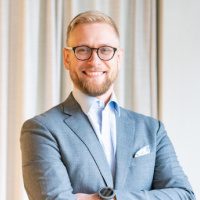
Antti Suorsa is an experienced new generation sourcing leader. He manages the external resources of the company is critical to any business and sourcing has a key role in ensuring the performance of those external resources. He is enthusiastic about data and possibilities of advanced analytics and AI/ML. He has a strong record of accomplishment in process development, team management, strategy creation and execution. Antti majored in Industrial Management and have a minor in Software Development from the top technical university in Finland. Connect with Antti on LinkedIn.
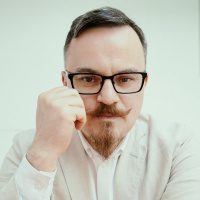
Volodymyr Vorobey has 20+ years of experience developing companies and business ecosystems as well as local, regional and national development systems. He is the Founder and Managing Director of PPV Knowledge Networks, leading economic development agency in Western Ukraine (Lviv). He is a strategy consultant and has delivered over 40 corporate strategies (mostly to clients in Ukraine), from leading corporations to micro creative enterprises, from donor-funded programs to local authorities. Connect with Volodymyr on LinkedIn.
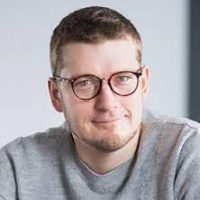
Sammeli Sammalkorpi is the Co-founder and CEO at Sievo, a leading global procurement analytics company. He is enthusiastic about data driven procurement, a big fan of transparent, non-hierarchical and high-trust organizations, and a strong believer in the fact that only by having successful and satisfied customers makes us also be successful. Sammeli is passionate about making a positive impact to the world and is extremely happy to be able to do this by their software allowing for data insights regarding the CO2 emissions in the leading procurement organizations. Connect with Sammeli on LinkedIn.
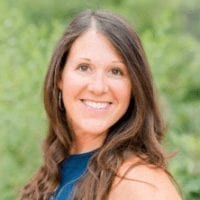
Maureen Woolshlager started her career at McMaster-Carr’s Management Development Program working in sales, marketing, distribution operations, finance and accounting. After McMaster-Carr, she spent a year managing operations in one of Target Corporation’s warehouses before finding a role within a small management consulting company in Denver, Colorado. She worked on large projects for international food and restaurant companies and advised on account management, business development, operations management, warehouse operations, continuous improvement and distribution center operations, and procurement/supplier/inventory optimization. She has spent the last 9 years living in Belgium & Germany where her husband has been stationed as a US Army officer. Maureen has her B.A. from Emory University. She earned a certificate in Management & Marketing from the Wharton School at the University of Pennsylvania & her M.B.A. from the University of Phoenix. Learn more about Vector Global Logistics here: https://vectorgl.com/
